We have listed all our current students on this page, under their Pathway Groups. Please click on a Pathway to see what they are researching for their PhDs.

Christy Hehir (University of Surrey)
Main supervisor: Professor Caroline Scarles; second supervisor: Dr Joseph Kantenbacher
Research project: Beyond Good Intentions: Tourism as a Driver of Emotion and Philanthropic Behaviour Change
Research description: Climate change for some provides a rationale to visit areas, like Polar Regions, before they disappear (Dawson et al., 2011), but the act of travelling to threatened areas raises the spectre of tourists loving an already dying destination to an early death. Partnering with leading tour operators and international wildlife charities, this research uses an innovative combination of biometrics, interviews and surveys to understand whether travelling leads to increases in conservation-oriented philanthropy. Outcomes of knowing how people’s relationships with nature form, and what behavioural implications they may have, could provide critical insight into how destinations can effectively meet conservation goals and facilitate greater collaboration between the tour operator and non-profit sectors

Eirini Bersimi (University of Kent)
Main supervisor: Dr Nikolaos Voukelatos; second supervisor: Dr Vasileios Pappas, Prof Ekaterini Panopoulou
Research project: Volatility forecasting and asset allocation in a portfolio management
Research description: My area of study is volatility and the main aim is to explore and compare various models and methods of volatility forecasting. On my first chapter I aim at comparing various univariate volatility models and forecast combinations by evaluating their forecasting accuracy using standard measures of accuracy. Then, I am exploring whether forecast combinations of volatility models can help improve the directional accuracy. Further, I am focusing in an application of multivariate volatility models. Since classical portfolio allocation has received a lot of criticism, thus this study focuses on the risk-based approach, called Risk Parity (RP). This study aims at constructing a RP portfolio consisting of hedge funds which will compete against the Hedge Funds Research (HFR) RP Indices in an attempt to outperform them. Finally, risk-transformation of risk-neutral densities are compared to real-world density forecasts.
LinkedIn: Eirini Bersimi
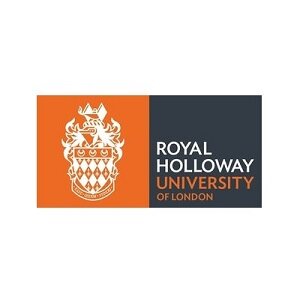
Simon Oldham (Royal Holloway, University of London)
Main supervisor: Professor Laura Spence; second supervisor: Professor Paul du Gay
Research project: A Pragmatic Stance on Small Firm Values
Research description: My research looks to examine the practice of organisational values within small firms. Specifically, through drawing on Pragmatist theory, I am looking to understand how small firms engage with their values to deal with and manage the moral issues they face.

Stefano Maiani (University of Essex)
Main supervisor: Prof Michael Lamla; second supervisor: Jason Cen
Research project: The impact of monetary policies and the risks of carry trade speculation
Research description: I conduct an analysis of the effects of non-FDI capital flows to China that spillovered from prolonged unconventional monetary policies held by advanced economies. In particular, I analyse to what extent these capital flows can be associated to global carry trade speculations, associated to positive interest rate spreads arising between advanced economies and emerging markets, and to the so-called global financial cycle. Finally, I will perform a firm-level analysis of the way in which capital flows influence firms' financing and the implications of this for their profitability and risk exposure.

Yoo Ri Kim (University of Surrey)
Main supervisor: Prof Allan Williams; second supervisor: Jason Chen
Research project: The impact of spatial clustering on the labour productivity of hotels in the UK
Research description: With the recent Brexit, awareness of the persistent issue of the labour productivity gap has intensified in the UK service sector, especially in the tourism and hospitality industry. Given its strong reliance on migrant and transient labour, and high turnover rates, both academics and the industry have long been aware of the gap, but new ways are required to address this. The productivity problem has both internal and external dimensions, and there has been relatively less focus on the external, especially on the role of spatial clustering in relation to productivity, which this research will investigate. The implications of spatial clustering are especially important in the context of tourism and hospitality due to its inter-sectoral nature, which leads hotels, restaurants and bars, tourist attractions, etc. to cluster in tourist destinations. This generates externalities, in the form of agglomeration economies, that can influence labour productivity. However, these are often taken for granted; the actual effects of spatial clustering on labour productivity remain uncertain. Thus, this research will contribute to the operationalisation of agglomeration economies in the tourism and hospitality labour market. The research aims to investigate the impact of spatial clustering on the labour productivity in the UK hotel sector. The research objectives are:
- To examine the impact of the degree of clustering of tourism and hospitality firms within a spatial unit on hotel labour productivity.
- To examine the impact of agglomeration economies – labour pooling and knowledge spillovers – of a spatial unit on hotel labour productivity.
- To examine the non-economic locational characteristics within a spatial cluster and their impact on hotel labour productivity.

Ben Davies (University of Kent)
Main supervisor: Carola Leicht; second supervisor: Dominic Abrams
Research project: Transgressive leaders: A social psychological account of why leaders can break the rules
Research description: Unethical or transgressive leadership frequently dominates the news headlines. From Boris Johnson's unlawful prorogation of Parliament, Martin Winterkorn's dieselgate scandal at Volkswagen, to Donald Trump's numerous misdemeanours, transgressive leadership occurs across a wide variety of group's and domains. The deviance credit effect outlines that such transgressive leaders are typically treated more leniently following their misconduct than others. My research uses a social psychological framework to examine why leaders receive this leniency from their followers, drawing on constructs such as prototypicality (does this leader represent the group?), identity advancement (does this leader advance group interests?), and charisma. My work further examines the boundaries to this leniency, and considers at what point people decide to reject their leaders. My initial findings indicate that leaders are able to maintain endorsement from their followers by framing their unethical conduct as for the good of the group.
Twitter: @Ben_B_Davies_
LinkedIn: https://www.linkedin.com/in/ben-davies-a70a85183/

Jill Juergensen (University of Reading)
Main supervisor: Prof Rajneesh Narula; second supervisor: Assoc Prof Dr. Irina Surdu
Research project: Stuck in the middle? Exploring how international activities relate to innovation in German SMEs
Research description: The purpose of this research project is to explore, using quantitative and qualitative methods, the impact of international activities, such as exporting and international alliances, on the introduction of new management (organisational) innovations in small- and medium-sized enterprises (SMEs) in Germany. Theoretically, this study draws on two complementary perspectives, namely, evolutionary theory (Nelson and Winter, 1982) and organisational learning to examine how firms 'develop' internally in a post- internationalisation context. Specifically, drawing on concepts such as inertia and routines, this study will test if and how international activities 'trigger' internal change inside SMEs in the form of structural and administrative changes. There has been much research in international business and management on how technological innovation drives international activities on the one hand. Additionally, some research has shown how international activities, FDI and exporting in particular, can also help firms to become more innovative due to the diverse knowledge inputs. However, while this complementary and bi-directional link between internationalisation and technological innovation is well-established in the literature, little is known about how internationalisation affects the firm's organisational innovation efforts. By using secondary data from the German contribution of the community innovation survey (CIS) and collecting primary data in the form of interviews, this study seeks to to shed light on these phenomena.
LinkedIn: https://uk.linkedin.com/in/jill-juergensen-041181100
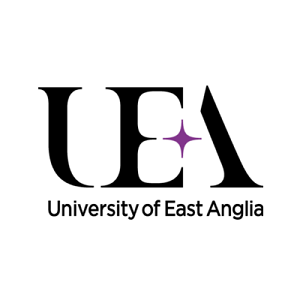
Jonathan Fearne (University of East Anglia)
Main supervisor: Dr Dan Unger; second supervisor: Professor Kevin Daniels
Research project: Digital Health Promotion in the Workplace - A study into workers experiences with mobile health technologies.
Research description: Wearable activity trackers are commercially available tools designed to promote, nudge, and reward physical activity. These devices are part of a range of mobile health technologies (mHealth) presented as enabling individuals to take accountability and responsibility for their personal health. As a result, businesses are beginning to engage with mHealth as an avenue to promote employee wellbeing. A strategy which companies hope will help combat issues of absenteeism and presenteeism. Indeed, Fitbit, the market leader in activity tracking technology, offers a wellness program to businesses which they state has enrolled seventy Fortune500 companies. Whilst the ideology underpinning wearable trackers and mobile health is presented by technology enthusiasts as a positive one, research undertaken over the last five years has painted a clouded picture. Quantitative data suggests that mHealth attracts a younger, well-educated, and affluent customer, with issues of access and literacy, indicative of the digital divide, potentially excluding and alienating non-users. Moreover, at least half of all users disengage with an activity tracker after six months. Meanwhile, qualitative research suggests that for some users the technology can be motivating and useful, for others it heightens feelings of anxiety, stress, and guilt. This is the point of departure for the research to be conducted. Increasingly businesses are beginning to offer activity tracking technologies to their employees in an effort to sustain a healthy workforce. However, from an organisational studies perspective, introducing new and innovative technologies premised around health and wellbeing raises a number of important questions. How does the technology shape the social relations within the workplace? Furthermore, to what extent does activity tracking technology (designed to operate 24/7) promoted by a place of work have an affect on wellbeing at the home? Whilst the technology is designed to promote wellbeing, does the additional pressure of physical activity to an employee’s workload increase stress and anxiety? Previous research has addressed theoretical issues around activity tracking technology, drawing on topics of digital labour and surveillance. There is now a pressing need to capture and understand the experiences of users engaging with activity technology in different environments, notably within the workplace. Given the importance of employee wellbeing it may be incorrect to assume that such technology will have a universally positive impact amongst employees, with ramifications for both social interactions and personal introspection. Furthermore, companies producing consumer health technologies have notoriously developed both the hardware and software in the silos of Silicon Valley and ignored important consumer-based research. The present research therefore has multiple pathways to impact. In seeking to identify the benefits and pitfalls of mHealth based wellbeing programs the findings of this research may be utilised to offer best practice guidelines for employment practices to companies seeking to promote and disseminate activity tracking technologies to their employees. Furthermore, the research has the potential to inform the production of future health technologies issued as part of wellbeing initiatives.

Miruna-Daniela Ivan (University of Essex)
Main supervisor: Dr Chiara Banti; second supervisor: Professor Neil Kellard
Research project: Global liquidity, Money Market Funds and the crude oil market
Research description: The present study employs the global crude oil market framework of Kilian and Murphy (2014) to explore how the negative funding shock led by the 2016 US MMFs reform influenced the global crude oil market. We identify the structural shocks using Uhlig’s (2005) pure-sign restriction rejection method. Differently from previous studies which use global aggregates of broad money as a proxy for global liquidity, we employ a novel measure capturing an important component of the short-term credit aspect of global liquidity, namely the investment holdings of Prime MMFs by global issuance and by instrument.
LinkedIn: https://www.linkedin.com/in/miruna-ivan-840a91104/
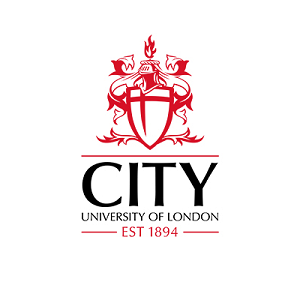
Nikolina Rosko (City, University of London)
Main supervisor: Charles Baden-Fuller; second supervisor:
Research project: "Internet of Things" Alliances: conflicting cognitive frames in new product development

Aaron Jackson (University of Kent)
Main supervisor: Dr Virginia Spiegler; second supervisor: Dr Gabor Nagy
Research project: Managing perishability through privacy-preserving supply chain collaboration
Research description: Perishable foods are characterised as foodstuff which quickly and continuously deteriorate in quality the longer they are kept - particularly if they are not stored at the correct temperature. Perishable food management can be considered as part of the cold chain as commodities are typically kept refrigerated or frozen to preserve their condition and slow bacteria growth. A cold chain is a temperature-controlled supply chain system responsible for denoting a set of activities and processes to maintain the optimal condition of goods from harvest through to human consumption. Examples of perishable foods include; fruit, vegetables and meat.
Scholars and industry consider temperature monitoring as one of the most important factors in perishable food management. This is mainly due to its ability to decrease food waste volumes whilst correspondingly reducing associated costs. To add context, poor temperature management costs a multi-national retailer an average of £350,000 per store. It accounts for 56% of total store shrinkage and is responsible for 15% of all goods which fail to reach the consumer. From an operational perspective, this highlights the value of time and temperature information flow in cold chain systems.
Although there is recent emergence of research focusing on managing perishable food waste these studies tend to emphasise on improving replenishment processes or achieving optimal pricing strategies. Rather than the Value of Information (VoI) and its ability to reduce food waste. Of the studies that consider VoI as a mechanism to minimise food waste, they centre around how data can be obtained for inventory management. These have effectively demonstrated the feasibility of applying Distributed Ledger Technologies (DLTs) to enable total transparency across a decentralised network. However, research has shown that organisations are apprehensive in using such a system because of their open nature. In DLTs every transaction is recorded on a public ledger which is shared between nodes in the network. Making sensitive and confidential data easily accessible and transparent to participants in the network. Scholars argue that it is this sole reason why this peer-to-peer approach has failed to cultivate as predicated.
To address these identified gaps this research will investigate the application of zero-knowledge proofs (ZKPs) as an enabler for secure and private data exchange on open-source distributed ledger technologies. A zero-knowledge proof is a protocol by which one party can prove to another party that they know certain information without revealing the underlying information. ZKPs are commonly associated with cryptocurrency transactions as they allow verification without revealing the sender, receiver or transaction amount. This research seeks to take inspiration from other disciplines where zero-knowledge proofs have been researched to identify how it can be adopted into the operations management domain and how it can facilitate with reducing perishable food waste in a distributed ledger technology network.

Alexander Lancaster (University of Kent)
Main supervisor: Jaideep Oberoi; second supervisor: Nikolaos Voukelatos
Research project: Default Risk Correlations: The relationship between competition intensity changing events and default risk correlations within industries.
Research description: This research looks at incorporating a competition intensity factor into a default risk model in order to measure a more accurate value of default correlations between companies. Default risk correlations have profound effects on portfolio default rates, and a better understanding of the causes of these correlations will allow for better risk management.

Jenny Suno Wu (University of Surrey)
Main supervisor: Prof Xavier Font; second supervisor: N/A
Research project: Evaluation of sustainable tourism policy in Catalonia
Research description: Evaluation of sustainable tourism policy in Catalonia / Socialisation of learning

Nicholas Berin Chan (University of Reading)
Main supervisor: Dr Vicky Weizi Li; second supervisor: Professor Keiichi Nakata
Research project: Patterns in Continuous Glucose Monitoring Systems as a Complementary Biomarker for Type 1 Diabetic Patients
Research description: The research aims to consider the application and implication of using machine learning in the health domain, especially by understanding and predicting the impact of healthcare resource usage, and patient risk, on stakeholder engagement.

Zoe Horsham (University of Kent)
Main supervisor: Dr Kathy Kotiadis; second supervisor: Dr Tim Hopthrow
Research project: Uncovering the mechanisms of effective facilitated operational research using psychology
Research description: Whilst such tendencies are commonly cited in psychological literature (Meza, 2019), organisational research examining these processes has yet to emerge. Psychological insights may greatly benefit organisations through the development of interventions to poor group decision making. The proposed research will apply cutting edge psychological theory and methods in decision making to improve our understanding of facilitative operational research. OR is the discipline of applying analytical methods such as simulation modelling to make better decisions (Kruger, Verhoef & Preiser, 2019). This research will examine and overcome the processes inhibiting poor decision making when facilitated OR is used. Facilitated OR modelling (Franco & Montibeller, 2010), is an emerging mode of OR involving (stakeholder) participation in the process of modelling which aims to increase the group’s understanding of problems and resolutions. Facilitated modelling is primarily delivered via workshops (Franco & Rouwette, 2011). These are important to the practice of OR, with groups of people discussing problems and working through them in a series of workshops. Active participation of stakeholders during workshops produces strong ownership of problems and acceptance of responsibility needed for action to be taken (Rosenhead & Mingers, 2001), hypothetically leading to better decisions. My research will investigate underlying mechanisms for improvements in group decisions arising from these practices, and apply this to the development of optimal OR workshops to maximise group interactions.

Zoe Horsham (University of Kent)
Main supervisor: Dr Kathy Kotiadis; second supervisor: Tim Hopthrow
Research project: Research examining the use of virtual interfaces for satisfaction in group decision making
Research description: My research will consist of working with multiple organisations and facilitating operative workshops, based on my background in psychological research on group decision making in lab settings. I aim to develop a theoretical understanding of how we can increase information sharing and processing in group interactions, using online environments in the face of current challenges regarding COVID-19

Ayeisha Green (University of Surrey)
Main supervisor: Prof Caroline Scarles; second supervisor: Prof Caroline Nicholson
Research project: The Creation of Immersive Travel Experiences and Their Effect on Reducing Social Isolation
Georgie Rider (University of Essex)
Main supervisor: Dr Stephen Murphy; second supervisor: Professor Melissa Tyler
Research project: A Feminist Account of High-Risk Leisure Consumption.
Research description: This research focuses on the experiences of the increasing number of women who voluntarily engage with high-risk leisure activities, here described as ‘edgework’. This research seeks to elucidate this increase in women’s participation within high-risk leisure consumption. The theory of edgework concerns the voluntary risk-taking behaviours that have the potential for life-changing injuries or death (Lyng, 1990). This includes boundary negotiation (Lyng, 2014), while seeking to push as close to the ‘edge’ of the boundaries, mentally or physically as possible (Lyng, 1990). Women’s experiences are continually neglected in the edgework literature, with many edgeworkers simply labelled as deviant. To explore edgework from a feminist perspective, the experiences of female aerial performers will be used to understand the social, cultural and structural characteristics that shape women’s increasing propensity for voluntary risk-taking. Aerial dance is well positioned to explore edgework as performers are suspended high in the air, using silk ropes, trapezes and hoops. Beyond these physical risks, aerial dance is a burgeoning leisure phenomenon and is a perfect place to explore the factors shaping women’s experiences of high-risk leisure. To study these experiences, the research will follow the Biographical Narrative Interview Method (BNIM; Wengraf, 2001), ensuring that the participants construct their own biographical narratives. Participants are also asked to pick 3 photos of their aerial dance that are of importance to them to also discuss. This research therefore aims to uncover and incorporate the experiences of women into a retheorization of edgework from a feminist perspective, using a Butlerian lens to understand these experiences. The main here is to develop a theory of edgework that is encompassing of the gendered differences in edgework, as opposed to neglecting and stigmatizing these differences. Additionally, a part of the aim here is to illuminate the aspects of risk that women are forced to manage on account of their gender. This includes the social risks associated with being a woman within a stereotypically masculine domain, and also the preconceptions that others may have in relation to women’s emotions hampering their capacity to manage high-risk situations. The research questions that are currently guiding this research focuses primarily upon notions of gender, and the impact this has on risk-taking. The questions outlined below emphasise the socio-cultural aspects of women’s experience of risk:
- What types of risks do aerial performers experience?
- How do aerial performers manage the risks involved with aerial dance?
- How do social, cultural and structural conditions shape these experiences of risk?

Elisa Mameli (University of Surrey)
Main supervisor:Prof Caroline Scarles; second supervisor: Dr Brigitte Stangl
Research project: Phygital Futures: Investigating the Potential for Physical-Digital Hybrid Visitor Engagement Solutions in Tourism Destinations in a Post-COVID Era
Research description: The COVID-19 pandemic is one of the biggest challenges in the history of the tourism industry (Gössling et al., 2020). To address the obstacles of limited global mobility, tourism destinations are adopting cutting-edge strategies and enhance the role of technologies to recover and re-imagine tourism (Radiogenic et al., 2020). One trend is the increasing use of phygital engagement solutions, a blend of physical and digital components that enable destinations to provide visitors access to on- and offline elements of experiences (Ballina et al., 2019). Thus, tourists can experience a destination without being physically present. From a demand side, tourists are increasingly familiar and willing to interact with these solutions (Geist, 2020). However, to date, there is no comprehensive examination about which phygital engagement solutions destinations have employed to handle the crisis, visitor satisfaction with these, and the benefits such solutions hold for future destination development. Working in partnership with SimpleView, a world-leading provider of integrated destination solutions, this study seeks to understand how destinations can become more resilient through the adoption of phygital engagement solutions. In detail, this study aims to: 1) investigate and critique the adoption of digital innovations and emerging practices of phygital engagement to facilitate continued visitor experiences with destinations during COVID-19; 2) investigate, through theory-based examination using Kano Modelling Technique, levels of visitor engagement and satisfaction with phygital innovations offered by destinations; 3) further theoretical understanding of cyberphysical tourism behaviour by developing a continuum of phygital engagement solutions; 4) develop a series of recommendations to support the appropriate implementation of phygital solutions and associated opportunities and challenges these offer for strategic decision-making in destinations.

Junru Ren (University of Kent)
Main supervisor:Prof Shaomin Wu; second supervisor: Dr Virginia Spiegler
Research project: Development of demand forecasting models for sustainable supply chain management
Research description: Demand management plays a core role in supply chain management, but demand forecasting is insufficiently studied through the perspective of algorithm development and data analysis in the existing research. In practice, a small error in demand forecasting will make the information in the upstream and downstream of the supply chain seriously mismatched, resulting in a huge loss in finance and resources, which is the well-known bullwhip effect in inventory management. Besides, data collected for such analyses can be big, thin or incomplete (such as censored or missing). Mining valuable information from different data types has naturally become a focal point of research that needs further exploration. Existing algorithms for demand forecasting include classical statistical methods such as time series analysis including the exponential smoothing methods and the Box-Jenkins methods, and machine learning methods such as neural networks and decision trees. These methods are computationally complicated when modelling on dynamic big data. Additionally, there is little research exploring methods to forecast demands based on thin and incomplete data. This research therefore aims to develop data-driven algorithms to address the demand forecasting issue on big data and incomplete data, respectively, so as to eliminate the bullwhip effect and then facilitate more effective inventory control. In the development of demand forecasting models, both classical statistical methods and machine learning algorithms will be employed. The classical methods include the Poisson process, recurrent marked temporal point process and dynamic harmonic regression; and machine learning methods include recurrent neural networks such as the long short-term memory network. Further, online customer reviews, product attributes and other external impacting factors will all be considered in the development of forecasting models to investigate the impacts of possible covariates. Meanwhile, incomplete samples with missing or the censored data will be analyzed, which is closely related to my research during the master study. Finally, the proposed forecasting methods will be extended to the cases of multi-echelon supply chains and a longer forecast horizon.

Marcus Richards (University of Essex)
Main supervisor:Prof Ileana Steccolini; second supervisor: Prof Pawan Adhikari
Research project: Financial Resilience of Local Authorities
Research description: Councils have, over the past 12 months, experienced unprecedented financial and economic challenges which have tested their financial resilience and sustainability. This has coincided with the increasingly important role that Councils are playing in society, tasked with ensuring community cohesion and wellbeing, caring for the vulnerable as well as establishing and developing policy, infrastructure and investment to drive growth and prosperity in their local economies. However, this period of challenge and duress builds on a period of evolution across the local government sector over the past decade; Councils have transformed the means through which they are funded, structured and account for their performance. With further socio-economic and financial challenges inevitable, a comprehensive assessment of the means through which Councils can achieve greater financial resilience is vital to ensuring that the sector can continue to deliver the essential role it plays in our communities. These challenges include the ability for Councils to accommodate, weather and respond to material shocks, such as the one caused by the Covid-19 crisis, as well as their ability to cope with the longer term shifts and trends, such as an aging population and a possible deterioration of the economic outlook. This acknowledges that the sector can’t be viewed as a whole, with variance in local authority financial resilience will differ according to factors including regional, socio-economic and structural matters. With consideration towards the ongoing evolution of Councils, this research would provide an assessment of the degree to which this evolution helps or hinders Councils’ financial resilience and their ability to anticipate and cope with the outlook they face.

Rebecca Appiah-Boateng (University of East Anglia)
Main supervisor:Prof Zografia Bika; second supervisor: Prof Nitya Rao
Research project: Homebuyers ‘plotting’ a move to the UK countryside? A study of counter-urbanisation and entrepreneurial emergence in rural areas. Do social capital and spatial contexts affect rural in-migrant entrepreneurial emergence in the context of a persistent glob
Research description: This study draws parallel lines of research in entrepreneurship, counter-urbanisation, and social capital to understand contemporary processes influencing rural and regional development in the context of a persistent global pandemic that potentially launched a 21st century ‘rural renaissance’ as UK city dwellers began buying houses in rural areas, looking to ‘flip’ their lives to the countryside and reassess what is important amid increased home working that is here to stay. This study will address the following overarching research question: Do social capital and spatial contexts affect rural in-migrant entrepreneurial emergence in the context of a persistent global pandemic and how does this impact the wider development of rural livelihoods? 60 rural in-migrant entrepreneurs will be interviewed from rural locations in Norfolk, Suffolk, or Essex to establish the importance of social and spatial contexts and their affordances; the advantages that an environment offers a perceptive individual for entrepreneurial emergence (Gibson, 1966). The researcher will spend time in the micro-study areas to augment the contextual understandings of local affordances and facilitate focus groups sessions with new or aspiring entrepreneurs to understand in real time, perceptions of rural locations and their affordances.
‘Rurality’ has no precise definition, but development scholars generally characterise rural areas by their environment and structural deficits of underdevelopment (Wiggins and Proctor, 2001: 427-428). These issues may be more acute in low-income developing countries, but rural areas of England can face similar issues of underdevelopment of infrastructure, hidden deprivation, and poor access to services (Norfolk County Council, 2013). Migrants, however, have the potential to become ‘agents of development’, contributing to rural economic growth and improving rural livelihoods; that is why orderly, safe, and regular migration of people underpins the 2030 Agenda for Sustainable Development (UN, 2018). Understanding how underlying ‘affordances’ create and sustain dynamic rural economies will provide knowledge about how personal mobility, social networks and diverse perceptions of rural places can interact with features of a local context to create new entrepreneurial opportunities to enhance local development potential and provide individual livelihood opportunities.

Robbie Warin (Royal Holloway, University of London)
Main supervisor:Dr Phillip Wu; second supervisor: Prof Phil Crang
Research project: Platform Sex Work: examining the labour process within online sex work
Research description: Whilst the gig economy has received widespread media attention, the logics and practices that underpin it – notably the centrality of digital platforms as the infrastructure through which actors meet and where power is exercised – are spreading out into areas of our economy, shaping the lives of workers in ways that has been largely left out of broader debates within digital labour studies. This research project seeks to address this literature gap, looking at digital labour platforms involved in the mediation of digital sex work, defined as forms of sex work ‘organized by online platforms acting as intermediaries between workers and their employers and clients’ (Huws , et al., 2018 p.115 in Rand, 2020). Specifically, I will look at the relationship between firms and workers and the role the platform plays as the nexus of the socio-technical practices and rules through which power and agency is exercised within the labour process.

Sean Irving (University of East Anglia)
Main supervisor:Prof Sara Connolly; second supervisor: Dr David Watson
Research project: The good economy in the Norwich City region
Research description: Increasing recognition that the economy is not working in the interests of many people in society has prompted interest in concept of the sharing economy as one possible alternative approach. However, definitions of the sharing economy are contested and overlap with related concepts (e.g. collaborative consumption, peer-to-peer economy) and encompass a range of different business models Advocates of a sharing economy highlight its ability to make use of under-utilized resources and inclusiveness, but it has also been seen as part of the evolution and continuation of a capitalist economy and platforms supporting the sharing economy are linked to precarious work. In my PhD I plan to critically explore these tensions and explore new methods to map the sharing economy.

Angelos Stenimachitis (University of Essex)
Main supervisor: Katharine Rockett; second supervisor: Suma Athreye
Research project: The drivers of demand for intellectual property (IP) instruments in the UK
Research description: The project comprises three aims, which can be addressed through three interrelated essays:
(i) To summarise the literature on the drivers of IP demand, and the tools to analyse them. It will outline the background of the theoretical and empirical bases for estimating demand for a bundle of IP instruments, contrasted to single instruments.
(ii) To analyse in depth the demand for IP instruments – potentially as a bundle -- and use this to develop policy responses to any identified barriers to IP take-up where such take-up would be beneficial to innovativeness and growth.
(iii) Explore the dynamics through which demand for IP instruments evolves over time, to trace and explain the dynamics of holding patterns of IP, and different (perceived and reported) outcomes in terms of product market share.
LinkedIn: Angelos Stenimachitis

Anthony Ede (University of Sussex)
Main supervisor: Professor Andreas Kaeck; second supervisor: Dr Panagiotis Tzouvanas
Research project: The Systemic Risk of Climate Change
Research description: Climate change is one of the biggest problems that faces our modern world and the most far-reaching. Climate finance, which refers to the investments that align the world with a transition to a state of reduced emissions of greenhouse gases and to mitigate against the risk of climate change, is a relatively new frontier for academics. We know from literature that the effect of climate change, combined with the goals to keep climate change to the limits set out by the Paris Agreement, have impacts at firm level and upon the financial markets. This poses great risk for the future if we do not start to act immediately. For this reason, there is need for deeper understanding of how these climate effects impact on the world of finance and the level of systemic risk they may cause. Systemic risk is the risk of financial collapse across financial systems, or the market, as opposed to the financial risk of an individual firm and was a major contributor to the economic collapse in the 2008 financial crisis.
In my review of the published literature, I have identified gaps that I wish to fill through my research. My research contributes to the current literature (Hong et al. (2020)) in answering the main thesis question: 'What is the effect of climate change on the systemic risk of firms?'. In order to qualify proof of my research question, I propose to undertake three different sub-research questions and investigations from the gaps I have found in the literature. These are:
- How do climate change effects, such as variation in temperature and precipitation, affect the systemic risk of firms?
- How do climate change disasters, such as droughts and wildfires, affect the systemic risk of firms?
- Do rising sea levels and flooding cause increased stock market volatility?
To answer the first two questions, I will undertake systemic risk modelling procedures that account for spillover effects, such as CoVaR, MES and SRISK. These are attractive modelling techniques as we can pinpoint which firms are affected by the climate shocks and the interconnectivity between firms of these risks. The methodology to answer the third research question follows a thorough framework presented by Murfin and Spiegel (2020).
The results of my research will add to a greater understanding of the financial risk caused by climate change. I will provide a framework to build a database indicating which climate risks affect which firms and the interconnectivity of these risks and firms. This database would help in using the financial markets as a driving force for positive action in the mitigation of the effects of climate change and for policymakers to have a greater understanding of climate risk in the financial system.
Twitter: @Anthony__Ede
LinkedIn: Anthony Ede

Jennifer Chernishenko (University of Kent)
Main supervisor: Professor Ben Lowe; second supervisor: Dr Dan Petrovici
Research project: How do you compensate? The relationship between individual differences and compensatory consumer behaviour
Research Description: People usually know who they are or want to be. However, sometimes their real self (e.g., lazy) and their ideal self (e.g., fit) are different, which leads to self-discrepancy. Under these circumstances, individuals tend to have an aversive feeling that they aim to resolve. To do so, individuals may turn to consumption-related behaviours to address the self-discrepancy, thus engaging in compensatory consumer behaviours (CCBs). These CCBs can be either helpful or harmful. As such, having a deeper understanding of what drives consumers to engage in particular types of CCB may have benefits for social marketers and consumer wellbeing.
This project aims to address this topic in two ways. First, in a food-related context, it aims to create a novel measure for examining CCB based on Mandel et al.’s (2017) five-category CCB framework. These categories – direct resolution, symbolic self-completion, dissociation, escapism, fluid compensation – describe different ways consumers may use consumption behaviours to address self-discrepancies. Second, this project aims to link individual differences with the tendency to engage in particular types of CCB. Specifically, it will explore how personality traits – Honesty-humility, Emotionality, eXtraversion, Agreeableness, Conscientiousness, Openness to experience (HEXACO; Lee & Ashton, 2004) – are linked with each type of CCB.
There are two main academic contributions from this project. First, it creates a comprehensive CCB measure for consumer researchers, and examines how this new CCB measure relates to other behaviour measures and wellbeing outcomes. Second, the project will explore how personal differences, such as personality, as well as self-related theories (e.g., self-verification theory, Swann et al., 1989; self-discrepancy theory, Higgins, 1987) and personal perception models (e.g., the Meaning Maintenance Model; Heine et al., 2006), can further aid our understanding on how CCB is linked to self-discrepancy resolutions. It will therefore not only expand on existing models and theories but also provide a deeper understanding as to how CCB and individual differences can lead to adaptive or maladaptive food-related behaviours.
Practitioners may also find the results of this project useful. For example, there may be opportunity to create tools (e.g., apps) that use self-assessment to help people healthily address a self-discrepancy. As well, social marketers may use the findings to create campaigns that resonate with those at risk (e.g., through targeted personality ads on social media). Policy makers may also find results useful to inform behavioural interventions, addressing the UN’s Sustainable Development Goal 3 (good health/wellbeing) or 12 (responsible consumption/production; UN, n.d.).
Overall, this research aims to establish a reliable measure to assess CCB behaviours and provide a deeper understanding as to how individual differences (e.g., personality traits, self-related theories) are linked with CCB. This research will focus on food-related behaviours and, therefore, contributes to our understanding of how CCB and individual differences may lead to positive or negative wellbeing outcomes when it comes to food-related behaviour. Future research may examine moderators between personality and CCB (e.g., stress, perfectionism), study specific consumption areas (e.g., diets), or further assess CCB’s impact on wellbeing (e.g., when does CCB increase/decrease wellbeing).

Md Nurul Islam Sohel (University of Kent)
Main supervisor: Dr Abdullah Iqbal; second supervisor: Dr Vasileios Pappas
Research project: Sustainability Performance, Commitment, and Dual Ownership: Impact on Bank Loan Contracting
Research description: The financial system plays a critical role in shaping any economy within the contemporary, highly interconnected, globalized world. When this system operates effectively, savings are channelled toward investments that can strengthen economies and can improve living standards; when it fails, as it has in recent years, savings can contribute to the formation of asset bubbles, crises, and environmentally harmful projects, including those that exacerbate human-induced climate change (Sachs, 2014). To address such urgent concerns, the United Nations Environment Program-Finance Initiative (UNEP-FI) issued the Principles of Positive Impact Finance in 2017 and the Principles for Responsible Banking in 2019. Banks started adopting them, realizing the far-reaching impact on their survival and society at large. When individuals perceive that banks are making funding decisions that are not in the public's best interests, their confidence in them is weakened (Adams, 2021).
Hence, a deeper understanding of the dynamics underlying environmental, social, and governance (ESG) disclosure and the action of both borrowers and banks are essential in explicating the role of financial institutions in promoting the broader sustainability principles of UNEP-FI. The proposed thesis research will speak directly to this goal, supported by rich data and econometric analyses. More specifically, the thesis will utilize detailed individual bank loan-level data based on an international sample from the LPC DealScan Database, which is the best source for such data. Analyzing this dataset alongside matched data on institutional characteristics and ESG performance, I will investigate the impact of borrower and lender sustainability characteristics (commitment and performance) on features of loan contracts (pricing, nature, and the number of covenants, etc.) and how lender incentives (bank versus non-banks, dual ownership) moderate this relationship.
Since companies are investing more resources in sustainability endeavours, it is important to understand if and to what extent such investments reflect banks' preferences in lending contracts. Some banks may consider that an increasing resource towards sustainability is costly and even riskier, which opposes the fundamental goal of value maximization, while others may believe that a well-run company should pursue societal goals beyond value maximization (Hartzmark and Sussman, 2019). The ESG financing activity has increased tremendously in recent years, rising from $6 billion in 2016 to $322 billion in 2021, making it a key component of the global credit market (Kim et al., 2021). Yet, it largely remains unclear whether sustainability investments are consistent with what banks want in lending contracts. Hence, this research will examine the impact of borrower and lender sustainability characteristics (commitment and performance) on features of loan contracts (pricing, nature, and the number of covenants, etc.) and how lender incentives (bank versus non-banks, dual ownership) moderate this relationship.
Broadly the research questions are:
- Do borrowers with better sustainability performance and commitment get more favourable loan contracts?
- How do lenders sustainability commitments moderate the relationship between borrowers sustainability characteristics and loan features?
- How do lenders incentives affect loan contracts?
LinkedIn: Md Nurul Islam Sohel

Selina Rabah (University of Kent)
Main supervisor: Dr Dan Petrovici; second supervisor: Professor Ben Lowe
Research project: The Effectiveness of Direct and Indirect Comparative Advertising: The role of message framing, gender and processing opportunity.
Research description: Comparative advertising (CA) has become a popular strategy used by firms in the US and UK to position brands and differ from competitors (Beard, 2018). As social media ads have now become a dominant form of advertising, a recent bibliometric study (del Barrio-Garcia et al., 2020), identifies deficits in CA research in the context of social media and the need for inquiry into nations other than the USA.
This study builds on CA and nutrient content claims on food labels and packaging (Petrovici et al., 2016). It will make significant contributions by enhancing consumer behaviour knowledge about how consumers are influenced by CA messages. This research will be beneficial for communication strategies used by marketers in making health claims in the food industry. It will also contribute to tailoring prevention campaigns in the UK that aim to fight obesity, which is a growing welfare issue (NHS, 2022).
The main formats of CA are: Direct Comparative Advertising (DCA) (e.g., Pepsi vs Coca-Cola) - mentioning brand names, and Indirect Comparative Advertising (ICA) (e.g., Pepsi vs other) - brand names are not mentioned (Petrovici et al., 2019). These formats are not investigated to the same extent as CA and non-comparative advertising (NCA). Hence, the aim of this study is to further examine the effectiveness of DCA/ ICA in the context of online platforms as previous studies show mixed results (some show DCA is more effective than ICA, while others show the reverse) (del Barrio-Garcia et al. 2020). The main contexts of this study are gender and opportunity to process (e.g., exposure time), the impact of processing modes (i.e., analytical, imagery), and influence of message framing (Promotion vs. Prevention Focus) as there is limited understanding of their impact on consumer response to CA (Petrovici et al., 2019).
Lastly, this study aims to elicit factors that act as Perceived Manipulative Intent (PMI) triggers. PMI is when consumers notice that an advertisement is trying to persuade them through manipulative means (Wentzel et al., 2010). Thus, by eliciting these factors we can enhance the effectiveness of CA via examining consumer responses to these ads. Investigating PMI triggers gives insight into scepticism and brand certainty (Chang, 2007).
This research proposes a multi-methodological approach. Focus groups will be used at stage one to assist refining hypotheses and developing questionnaires for the quantitative stage. For stage two, a series of between-subjects experiments will be used. Key variables will be manipulated in the conceptual framework, whilst holding DCA/ICA formats constant.
This study aims to contribute to identified deficits through examining products that allow the investigation of consumer responses to CA, by expanding the range of outcome variables. Implications for policy makers include better understanding of strategies that help consumers make more informed decisions (Lowe et al., 2015). Thus, this study will potentially contribute towards Sustainable Development Goal 12 (Ensure Sustainable Consumption and Production Patterns). Implications for academia include testing of the underpinning theories’ applicability in CA and enhanced overall understanding of the effectiveness of CA (including genders and CA).
LinkedIn: Selina Rabah

Jessica Goodenough (University of Reading)
Main supervisor: Richard Nunes; second supervisor: Giuseppe Feola
Research project: Towards critical citizen science: understanding citizen science practice in Rio de Janeiro, Brazil
Research description: Aim: to critique the supposed neutrality and universality of dominant citizen science theories and practices, by exploring alternatives from contested places in the global south. Research questions:
- What are the motivations behind citizen science practices in Rio de Janeiro and what forms do they take?
- Can theories of participation, education and community from Latin American literature better account for citizen science practices in Rio de Janeiro than those of the dominant literature on citizen science?
- How can a co created citizen science project emerge through problem framing processes that are context appropriate (i.e. methods that are relevant / existent in Brazil, and Rio de Janeiro’s favelas more precisely)?
- What “lessons learnt” from this research can be shared to improve future citizen science initiatives in the global north and south? Objectives:
- To understand and develop the theoretical framework of citizen science practices in Rio de Janeiro by exploring concepts emanating from the local context and comparing them with existing literature on citizen science;
- To conduct participatory action research documenting the process of co-creating a citizen science project with favela residents in a context appropriate way;
- To extend citizen science theories on the basis of the empirical research to encompass critical/context appropriate approaches;
- To develop guidelines/a methodological approach to be used by critical citizen scientists in other contested places elsewhere.
Twitter: @JLGoodenough
LinkedIn: https://www.linkedin.com/in/jessicagoodenough/
Facebook: https://www.facebook.com/LivingtheGoodenoughLife/
Instagram: @JLGoodenough
Other social media: www.jessicagoodenough.com

Jonathan Franklin (University of East Anglia)
Main supervisor: Dr Ben Jones; second supervisor: Prof Adrian Martin
Research project: Lived experiences of climate change in central Tanzania
Research description: My doctoral research seeks to explore lived experiences of climate change in semi-arid central Tanzania, an area being targeted by an increasing number of internationally-funded climate adaptation projects. More specifically, I use an ethnographic approach to explore how climate change interweaves with broader socio-cultural and political economic dynamics that are shaping livelihoods here. In doing so, I hope to contribute to a wider push for more detailed and coherent understandings of the way climate change patterns into people's lives than currently underpin many adaptation-oriented interventions.
Twitter: @Jon_K_Franklin

Paul Fenton Villar (University of East Anglia)
Main supervisor: Dr Edward Anderson; second supervisor: Dr Vasudha Chhotray
Research project: Essays on the societal effects of natural resource extraction and governance
Research description: For more than half a century the development studies discourse has emphasized that the extraction of non-renewable resources can severely impede social and economic progress. In the 1990's, these problems were epitomized by the well-known phenomenon coined the 'resource curse'. However, today, a rising policy-political trend known as the extractives-led development agenda offers an alternative understanding concerning these issues. Here arguments suggest that, with appropriately implemented governance and fiscal frameworks, governments can mitigate the negative externalities (such as corruption, conflict, and economic volatility) associated with the extractive sector. In practice, strategies commonly advocated and used to address the negative externalities of natural resource extraction are poorly understood. This research intends to further examine the effects of fiscal and governance frameworks supported by the extractives-led development agenda.

Rachel Claydon (University of Sussex)
Main supervisor: Nick Nisbett; second supervisor: Dinah Rajak
Research project: Consuming nutrition: lived experiences of branded foods and the marketization of health in East Brighton
Research description: My research investigates the marketization of public health nutrition agendas by food and drink brands in the UK, and its impact on food and nutrition ideologies and practices. I am undertaking a critical examination of branded, processed foods making nutrition claims (BFNCs) that target children under ten, exploring how these products shape and mobilise aspirations and broader subjectivities including gender and class, and the ways in which they enable and constrain positive nutrition choices. I draw on insights from critical social sciences of nutrition, critiques of market-based development approaches, and Foucauldian understandings of the construction of consumer subjectivities. I am currently engaged in 12 months of ethnographic research with families from a range of backgrounds in East Brighton. This is focused on participant observation with families, learning about people’s food practices and beliefs through participation in food shopping, preparation and meal times. Participant observation is supported by semi-structured interviews, focus groups, key informant interviews, and analysis of marketing materials. The research aims to provide a grounded analysis of the “win-win” claims of BFNCs as social products, and their intended and unintended impacts. It seeks to inform the debate on regulatory approaches and the relative role of food brands in delivering nutrition outcomes in the UK, as well as contributing to wider, critical debates.

Belen Martinez Caparros (University of Sussex)
Main supervisor: Geert De Neve; second supervisor: Anke Schwittay
Research project: Exploring gender equality and gender stereotypes: Experiences of women working in the male-dominated taxi sector in Spain and India
Research description: My research will explore women working in the transport sector as taxi or rickshaw drivers in Spain and India respectively. I am interested in exploring the different opportunities that working as taxi drivers offers to women, not only by getting an income, but also exploring if there are any changes in the way women self-identify. The central research questions for this study are built around how engaging in male-dominated occupations can shape the pathways of gender equality and women's empowerment. Through the research I will evaluate gender equality and the multiple facets of empowerment including elements such as women's knowledge, as well as their physical, emotional, economic and social autonomy. Data will be collected locally through observation, semi-structured interviews and photo-elicitation to participants. Research participants will be the women working as taxi or PHV drivers. To supplement their views and build a general image of the changes that have occurred within the community, short and informal conversations will be held with husbands, other family members and community leaders. I also intend to explore more about the strategy of app-based business model in regards to female drivers by speaking to human resources personnel and managers from Uber and Cabify.

Kara Sheppard (University of East Anglia)
Main supervisor: Dr Ben Jones; second supervisor: Dr Sheila Aikman
Research project: “Education is the key to life”? – The fashioning of educated subjects in rural Tanzania
Research description: “Elimu ni ufunguo wa maisha” (education is the key to life) is a common Tanzanian saying. Drawing on Stambach and Hall’s (2016: 5) understanding of education as a “way of doing or perceiving life, a way of being in the world, and of coming to know it”, this research will explore how young people in rural Tanzania are fashioning themselves as educated subjects. Drawing on the growing body of work on education and identity within the field of development studies and anthropology, this study will explore this main research question through the sub-question ‘how are educated identities produced and performed?’, allowing me to explore further questions of what these identities do in the lives of young people, how they vary across different spaces, and how they are intersected by multiple identities. Particular attention will be given to the performance of gender through educated identities, developing on previous studies to extend the focus of educated femininities in a similar way to work on educated masculinities, that moves beyond educated identity as a singular to instead consider the plural. The study takes the form of an ethnography located in Iringa, Tanzania. The research is premised on the idea that rather than there being a generalised ‘educated identity’ the production and performance of identities, while patterned, varies across time and space. The research, therefore, explores the lives of a diverse group of 30 young people as they navigate their identities across different spaces in the area over a prolonged period of time and through key events to fashion themselves as educated subjects (see previous work by Davidson, 1996; Levinson, 2001; Rushworth, 2018). This ethnographic study will move with the young people between different identity spaces to explore how they (re)fashion themselves as educated subjects in these varying sites through the production and performance of educated identities. In keeping with the view that education is a way of being in the world, the study will move both within and beyond formal educational spaces, to provide flexibility and openness to capturing the different ways learning may take place in the lives of the young people. Several significant formal and informal spaces have been identified by drawing on key ethnographic works, such as: Lindhardt’s (2010) work on religious institutions in Iringa; the barbershops of Weiss’ work in urban Arusha (2009); the family homes surrounding the village school on Mount Kilimanjaro (Stambach, 2000); and the local state structures through which citizenship is practiced and performed (Phillips, 2018). While observing the everyday life of these young people, the study will also focus on several key events in which the production and performance of educated identities may be more emphasised or re-fashioned (such as school exam periods, graduations and promotions, the upcoming 2020 election, baptism events at the church, family decisions about migration).
Twitter: @KaraSheppard
LinkedIn: https://www.linkedin.com/in/kara-sheppard-5a5117bb/
Other social media: https://www.researchgate.net/profile/Kara_Sheppard

Fiona Cumberland (Royal Holloway, University of London)
Main supervisor: Dr Yingqin Zheng; second supervisor: Dr Katie Willis
Research project: Disempowering Technologies: Innovation, Interests and Impact of Mobile Gambling
Research description: Information and communication technologies (ICTs) have brought significant development benefits to communities around the world through, for example, the use of mobile phones for money transfers. The assumption of a ‘technological fix’ has also been significantly criticised, however, much less attention has been paid to the potentially negative aspects of ICTs. This thesis aims to contribute to this gap through a study of mobile gambling in Kenya. Rather than focusing solely on gamblers’ motivations, it also considers the variety of powerful interests inscribed in the technology and how these interact with users. To do this, it will use actor-network theory to unpack and map the common and contrasting interests at play in the socio-technical system emerging in Kenya in conjunction with the proliferation of mobile phones and mobile money.

Linda Pappagallo (University of Sussex)
Main supervisor: Ian Scoones; second supervisor: Jeremy Lind
Research project: "Partir Pour Rester" - To Leave in Order to Stay : The Role of Absentee Livestock Owners and Social Institutions on Capital Accumulation in Southern Tunisia
Research description: A critical appraisal of migration and the different forms of “absenteeism” within the pastoral economy of Douiret, in the drylands of southern Tunisia, has revealed how “absence” embodied in a migration project or in the notion “partir pour rester” ( to leave in order to stay), is key in understanding contemporary processes of capital accumulation. Absence is often mediated by local social institutions, that help manage labour and land shortages collectively in different ways. These are interrelated dimensions that have allowed for the accumulation of capital “from below”, illuminating further on processes of social differentiation within and beyond the village. This thesis contributes to the literature on agrarian change in Tunisia, and the Maghreb, through a grounded perspective on processes of social differentiation in pastoral areas. The concept of “absenteeism” and how these dynamics have created possibilities for the accumulation of capital nuance dominant narratives of top-down visions of capital penetration. The analysis goes beyond a descriptive livelihoods approach and structural-material individualist class analysis. It does so by including discursive perceptions and institutional processes of change with social-demographic dynamics. Both the more structural features and the more dynamic processes of differentiation are therefore explored through livestock as a particular form of capital.
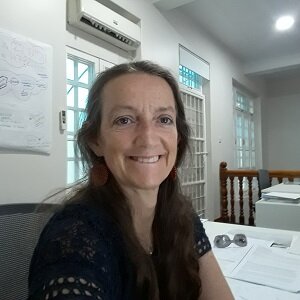
Cassie Biggs (University of Sussex)
Main supervisor: Lyndsay McLean; second supervisor: Pamela Zea
Research project: Precarious manhood and the link with School-Related Gender-Based Violence in Malawi
Research description: One in three women will experience physical or sexual violence in their lifetime, the majority of which will be perpetrated by an existing or former partner. There is a growing body of research aiming to understand the determinants of violence, and what works to prevent it. More recently this research has begun to look at the link between masculinities and violence, and how societal constructions of gender allow, tolerate and even encourage violence towards women. Additionally, men’s violence has been attributed to what Raewyn Connell (2012) refers to as a “crisis of masculinity” which can brought on, for example, by shifts in the status in the family and community or by political and economic transition. More recent research has suggested that this “crisis” can even be triggered by interventions intended to increase women and girls’ resources and power.
This research project will build on this nascent knowledge by looking at violence perpetrated against adolescent school girls in Malawi, Sub Saharan Africa, a region where violence against women and girls has been characterised as “normalized and tolerated”.
The research will unpack some of the contextual factors driving violence against school girls in Malawi with a specific focus on shifting gender identities. As gender identities are not constructed in isolation or in situ, but shift and transform over time and place , the research will look at how both male and female gender identities are constructed in Malawi, both current, and historically. It will then ask if school-related gender-based violence can be seen as a display of masculinity in a precarious context which has been triggered by girl and women’s growing empowerment and non-conforming gender behaviour.

Indira Lemouchi (Royal Holloway, University of London)
Main supervisor: Dr Sasha Englemann; second supervisor: Dr Jay Mistry
Research project: Voicing the Eco-Political Agencies of Children Through Participatory Creative Methods
Research description: Youth climate activists are receiving unprecedented media attention. In increasingly visible ways, young people like Greta Thunberg, Jamie Margolin and Isra Hirsi are reacting to and confronting ecological conditions and futures. Yet there is an urgent need to complement our attention to these youth leaders in the Global North with better understanding of the political agency of children in the midst of the climate crisis in the Global South. As development studies literatures affirm, it is vital to engage with children in Global South cities who are negotiating complex climate change issues and pressures on a daily basis. However, as recent work in children’s geographies suggests, approaches to children’s agency should include attention to the multiple, often non-verbal modes in which children express themselves. The proposed project responds to these challenges by developing participatory methods to engage with Global South based, urban-dwelling primary school children to document their negotiations of local environments and the impacts of climate change. More specifically, I will investigate children’s agencies in relation to climate change through participatory methods featuring music and sound. I will do so by staging a series of musical and vocal workshops with seven to eleven-year-old children in Bogota, Colombia, a city where children are predicted to face, among other factors, increasing food insecurity, unhealthy exposure to the urban heat island, and dramatically increased rainfall driven by climate change. Building on my existing professional practice as a facilitator of musical workshops and learning spaces for primary school children in London, as well as my experience working with communities in Latin America, I will evolve two sonic methods: first, I will employ the histories and tonalities of Cumbia music (a musical genre that originated in Colombia) as a means to involve children in mapping stories and issues of the environment and climate change; second, I will facilitate vocal exercises and improvisation sessions to encourage children to invent their own space of communication and exchange. By engaging with children in Bogota, where I have access to space and resources through educational contacts, this project will further understandings of children’s political agencies and local environmental concerns. It will also engage inherited traditions of music and sound in the Global South, while decentring western perspectives on children and climate change. Bringing together children’s geographies, studies of political agency in the Global South and participatory creative methods, this project will make an important contribution to literature on children's political subjectivities in the midst of the climate crisis.
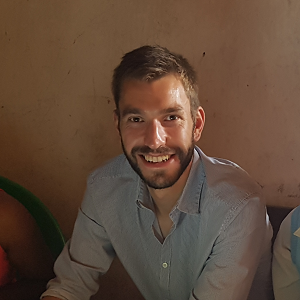
Joshua Hill (University of East Anglia)
Main supervisor: Paul Clist; second supervisor: Arjan Verschoor
Research project: An investigation into the effect of bilingualism, place and cultural exposure on revealed preferences
Research description: My research has three key areas of interest:
- To investigate the interaction between language and cooperation in a public goods game, exploring both norms, expectations or intrinsic preferences as a potential mechanism.
- Consider the relevance of geographical context (‘place’) on norms and expectations, as well as interaction effects between language and place.
- Explore whether cultural exposure affects norms and expectations in the context of rural to urban migration, particularly whether norms and expectations can be learnt and unlearnt. My research is based on field work conducted in Kampala Uganda, using lab-in-the-field experiments.
LinkedIn: https://www.linkedin.com/in/joshua-hill-52938042/

Maria del Pilar Grados Bueno (University of Sussex)
Main supervisor:Tessa Lewin; second supervisor: Dr Paul Boyce
Research project: Between social constraint and resourcefulness: access to the labour market of trans women in Lima (Peru)
Research description: Access to decent work is a crucial element for human development; however, in several countries, trans women confront the most significant challenges to develop successful labour trajectories due to prejudice against their gender identity expression (Beauregard et al., 2018; Coll-Planas & Missé, 2018; McFadden, 2015; Suen et al., 2020; Waite, 2020). As such, trans women in Peru mostly dedicate to precarious and stigmatised economic activities: sex work (64%) and hairdressing (28%), while only 3% works under formal conditions (Salazar et al. 2010). This situation is generated by direct discrimination from employers who do not hire them due to their gender identity and limited access to the education system (Defensoria del Pueblo, 2016; NTM, 2016). Nevertheless, besides discrimination, other factors explain trans women´s labour trajectories: their gender performance as well as their access to social, cultural, and economic capital (Grados, 2014). In that sense, their body’s feminisation – the adoption of signs of femininity (Ekins, 1996) - makes the transgression to the heteronormative order more evident, reducing their job opportunities. The beginning of their feminisation is associated with their access to capital, which is reproduced by their family support and higher education opportunities. Therefore, this thesis will focus on comprehending how trans women´s gender performance and access to capital influence their labour trajectories in Lima (Peru)? This is a highly unresearched topic in academia, which provides an original contribution to the existing development literature about inequalities by exploring the interlinks between gender identity performance and the labour market. Moreover, this study will contribute to a greater understanding of discriminatory situations in the workplace and strategies of action grounded in the experiences of trans women. Such insight is vital to generate evidence-based policy to promote trans women´s economic inclusion by different development actors. Finally, analysing the Peruvian case is pivotal to comprehend similar dynamics in Latin America, where lately, there has been considerable backlash against LGTBI rights recognition (Corrêa et al., 2018). Hence, this project is crucial to understand this region´s context and counter the backlash.

Patrick Whyte (University of East Anglia)
Main supervisor:Dr Ben Jones; second supervisor: Dr Casper Ebbensgaard
Research project: Ashaiman Night Market Road - Investigating Social Order in the Night-Time Economy of a Rural Urban Market
Research description: This research investigates the lives of street traders in the night-time economy of an urban market in Accra, Ghana’s capital city. Open 24 hours a day and situated in a migrant settlement of the city, the Ashaiman Night Market Road provides an ideal space to investigate lives of the urban poor who work through the night. Whilst research on urban areas of the more developed world have shown the night as a different time-space that has the capacity for more autonomy from the state (Shaw, 2018), urban nights in the developing world have not received the same level of attention. In cities of the developing world, high levels of informal employment and personal rule are creating complex and, as yet, poorly understood economic and political dynamics (Hart, 1973, Paller, 2014). Through ethnographic analysis of Ashaiman Night Market Road, I will explore the lives of informal street vendors who work through the night, their different interactions, experiences and economic activities, and how it is that social order is maintained or disrupted on the street. The research will be enhanced by the Geography and Resource Development department at the University of Ghana (UG) through the guidance of Dr Mariama Zaami in survey research of night traders. I propose to advance debates on night-time economies, urban development, governance, and informality.

Sarah Stephens (University of Sussex)
Main supervisor:Dr Becky Faith; second supervisor: Dr Helen Dancer
Research project: Justice in my pocket? The use of a mobile phone application to increase access to justice for women in Tanzania
Research description: My research is motivated by a need to address the ‘justice gap’ that is evident globally. It is estimated that 1.5 billion people worldwide (one in 5 people) have justice problems that they cannot solve . In Tanzania this problem is amplified. Tanzania is ranked 76/128 globally on measures of affordable, accessible and effective justice solutions for ordinary people (World Justice Project, 2020), with women being disproportionately affected (Dancer, 2015). Practical solutions directed at addressing this access to justice crisis are often costly and cumbersome. In Tanzania, paralegals, community justice providers and informal methods of dispute resolution play a critical role in justice service delivery and dispute resolution but there are still many citizens left without a pathway to address their justice needs.
Information and Communication Technologies (ICT) such as mobile phones, internet and computer networks, have been utilised globally to improve social and economic development, and are emerging as tools for international development (ICT4D). In Tanzania, mobile phone penetration (households with mobile phone ownership) is estimated at 86% countrywide with 93% of Tanzanians having access to a mobile phone (Lotto,2018). Recent international development programmes in Tanzania have leveraged mobile phones for micro finance (Koloseni and Mandari, 2017), education (Joyce-Gibbons et al, 2018), health (Thobias and Kiwanuka, 2018) , and nutrition (Barnett et al, 2019). The provision of legal services using ICT, particularly mobile phones, is still unexplored but presents an opportunity to transform this sector, creating opportunities for increased citizen engagement across all levels of justice service delivery, particularly for women. As the most populous city in Tanzania, and an economic hub, Dar es Salaam (Dar) has one of the highest levels of mobile phone penetration in Tanzania and will be the focus of this study (GSMA,2019).
A significant limitation of the current use of ICT4D is that many of the interventions are built by engineers thousands of miles away from the site of use, interlinked with postcolonial institutional relationships, diverting control and capital towards external actors, using tools that need ongoing maintenance and funding to achieve long-term sustainable change or benefits at scale (Kendall and Dearden, 2020).
This research is a response to these opportunities and limitations. Using a participatory action research (PAR) design process to build a digital justice service tool in collaboration with Tanzanian legal service providers, this study will critically examine the co-generation of an effective and sustainable digital justice solution for women in Dar. My research will make a novel contribution to the field by developing a low-cost, scalable digital justice tool, to bridge the justice gap and support women’s legal empowerment, while generating learning relating to participatory approaches for developing ICT for sustainable development.
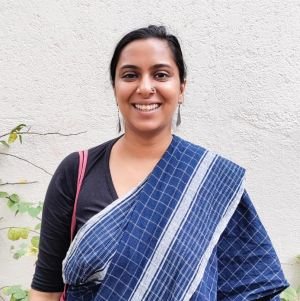
Salonie Hiriyur (University of Sussex)
Main supervisor: Deepta Chopra; second supervisor: Becky Faith
Research project: Codifying inequalities: A feminist critique of digital labour platforms in India's domestic work sector; and exploring alternatives through worker-owned cooperatives
Research description: The labour market, in India, is characterised by informal work arrangements and informal workers. These workers are often without work and income security, social security and food security. Their lives and livelihoods are precarious and they are most often the poorest of the poor. Women's workers, within this section, are even more vulnerable due to their social position and weak bargaining power.
The emergence of digital work platforms, called the ˜'platform' economy has brought with it significant changes in worker-employer relationships. These workers, like informal workers, are not covered by labour protections. Women, in particular, have seen considerable shifts in the manner in which they seek work, engage with customers/employers, negotiate wages and other protections. My thesis seeks to examine these shifts, in India's domestic work sector, which is highly informal.
In the domestic work sector, digital platforms have brought with them systems and processes that seem to exacerbate how women experience the labour market. For example, a popular, nationally-present digital platform uses marital status as a way of matching women workers with customers, under the guise of increasing efficiency in matching workers and protecting workers from customer refusal and harassment. This goes to show that a woman's social indicators - age, caste, class, marital status - play a role in the work she is able to engage with. While some studies have begun to understand how these algorithmic biases affect women, there is a gap in our knowledge on the means and extent of this affect, as well as on worker impact.
Furthermore, in the informal work sector, the cooperative model has traditionally shown some success in both organising workers and affording them decent work, decision making power and sustaining livelihoods. The Self-Employed Women's Association (SEWA) Cooperative Federation is an organisation working with women's cooperatives, with the goal of creating and sustaining grassroots owned and led cooperatives. The platform economy has pushed these cooperatives, as well as brought in ideas for new cooperatives, that include platforms in their design. In theory, a worker-owned digital platform would eliminate discriminatory practices, while optimising the use of technologies in this new economy. The viability and sustainability of such platform cooperatives, particularly those owned by women, is yet to be fully determined.
The two main research questions, which I seek to examine are: How do digital platforms (in the domestic work sector) inherently embed or codify gendered power-dynamics and hierarchies, and how do workers adapt to or negotiate with these codifications, vis-a-vis prevailing socio-cultural norms?
Are worker-owned platforms, such as cooperatives, a viable and sustainable means of enmeshing tech-enabled solutions with democratic governance?
The main research methodology will be qualitative, including various modalities of data collection - key informant interviews, case studies and a critical examination of platform policies. Through these, I seek to centre the voices of women workers. I will also study SEWA Homecare, a cooperative of domestic workers in the state of Gujarat, that has experimented with traditional platforms and also begun designing its own plan for a cooperative platform.
Digital platforms hold immense emancipatory potential in terms of promoting the economic participation of women, formalizing and improving conditions in the informal economy, and creating new opportunities in an increasingly stagnant economy that can provide fewer and fewer jobs. However, whether this will happen will be determined by the ongoing struggle to define how the design and applications of digital platforms will evolve in the years to come. The key stake that women workers around the world have in the struggle over this technology's future demands that research quickly draw out the specificities of women's experiences.
Twitter: @SalonieM
LinkedIn: Salonie Muralidhara Hiriyur

Anthoulla Phella (University of Surrey)
Main supervisor: Professor Valentina Corradi; second supervisor: Dr Vasco Gabriel
Research project: Forecasting With Factor-Augmented Quantile Autoregressions: A Model Averaging Approach
Research description: This paper considers forecasts of the growth and inflation distributions of the United King- dom with factor-augmented quantile autoregressions under a model averaging framework. We investigate model combinations across models using weights that minimise the Akaike Infor- mation Criterion (AIC), the Bayesian Information Criterion (BIC), the Quantile Regression Information Criterion (QRIC) as well as the leave-one-out cross validation criterion. The un- observed factors are estimated by principal components of a large panel with N predictors over T periods under a recursive estimation scheme. We apply the aforementioned methods to the UK GDP growth and CPI inflation rate. We find that, on average, for GDP growth, in terms of coverage and final prediction error, the equal weights or the weights obtained by the AIC and BIC perform equally well but are outperformed by the QRIC and the Jackknife approach on the majority of the quantiles of interest. In contrast, the naive QAR(1) model of inflation outperforms all model averaging methodologies.
LinkedIn: https://www.linkedin.com/in/anthoulla-phella-a4a9aba2/

Erkin Sagiev (University of Essex)
Main supervisor: Dr Jayant V Ganguli; second supervisor: Prof. Christian Ghiglino
Research project: Information design for global tax competition in a post-BEPS world
Research description: The aim of my project is to develop policy relevant analysis of information exchange in the context of recent activity of global organizations against tax avoidance practices of multinational enterprises. Existing information asymmetry among countries is of key importance since national governments have incentive and opportunity to exploit it for financial gain. A government can increase its tax revenues by attracting foreign taxpayers to become resident taxpayers. It can do so through actions such as secret tax rulings and cooperation with tax havens, while at the same time use its private information on the taxpayer’s income to increase its own tax receipts. Moreover, such scenarios provide clear incentives to national government to manipulate any information sharing with other countries. Existing information exchange agreements bear the same problem. The most efficient of them are closed with limited participant numbers. The private nature of the cooperation vehicles further proves the prevalence of information asymmetry among countries. Only a couple years ago the World Bank and OECD created the Global Forum on Transparency and Exchange of Information for Tax Purposes opened to all countries. However, the question is still the same, whether such global agreement can be really working mechanism to achieve transparency. The existing literature does not provide analysis of such scenarios as it developed almost entirely in settings with complete information and where government actions are restricted to the setting of publicly observable tax rates and basic interactions. This gap is what my proposed research aims to fill. The result of the research will be the model, which will reveal conditions and limitations of global collaboration against tax avoidance.

Marta Alvaro-Taus (University of Surrey)
Main supervisor: Esteban Jaimovich; second supervisor: Martin K. Jensen
Research project: On the Effects of Automation and International Trade to the Economy
Research description: This PhD thesis will aim to answer the following questions:
- Can I capture the impact of automation on output growth and public finances? Should we introduce a tax on robots?
- Can we disentangle the effects of automation and international trade on growing regional inequality through studying their impact on labour markets?

Vicenc Esteve Guasch (University of East Anglia)
Main supervisor: Kai-Uwe Kuhn; second supervisor: Bruce Lyons
Research project: Thirty Years After Privatising Water: What Have We Learned?
Research description: This paper analyses the relation between capital structure, regulated prices, and investment using a panel of the England and Wales private water companies for the period 1998-2010. The England and Wales water sector was privatized in 1989 by means of an initial public offering. Right before privatization, the British government had written off all existing debts of the public companies. Today, almost thirty years later, water companies have radically changed their capital structures from an equity-based to a debt-based model. The average gearing ratio of the sector in the early 1990s was slightly above 40%. By the late 2000s, it had reached a 70% average, with some companies presenting ratios above 90%. These high levels of debt, which are also present in other regulated utilities companies across the UK, has been raising some alarm. Some water companies have been accused of issuing debt with the sole purpose of distributing dividends to the shareholders at the expense of the consumers. Moreover, future infrastructure investment -which is crucial in a capital-intensive sector such as water- might face underinvestment problems in the future as companies' balance sheets become exhausted. Several theoretical models in industrial organisation have highlighted that regulated firms might have an incentive to issue debt in order to increase its probability of financial distress, because that forces the regulator to set higher prices. Furthermore, debt can work as a useful instrument to limit regulatory opportunism: because of the risk of financial distress, the regulator will not lower the regulated prices ex-post, thus reducing the under-investment problem that regulatory opportunism is usually thought to present. Therefore, two testable hypotheses can be drawn from this literature, that (1) higher debt leads to higher regulated prices, and that (2) higher debt results in higher investment rates. We test these hypotheses using the case of the England and Wales water sector both theoretically and empirically. We build a simple theoretical based on the existing ones, incorporating a non-Modigliani-Miller cost of capital effect. This allows us to incorporate the cost of capital in the regulatory optimal price -which in the England and Wales represents around 40% of the average bill- so that the price could be decreasing on the leverage ratio. We then test these hypotheses empirically. Our results suggest that (1) increasing leverage in the sector has allowed the regulator to set lower prices due to the cost of capital reduction effect and (2) that this increase in leverage has not resulted in increased investment as investment in the sector already suffers from a classic Averch-Johnson effect of over-investment.

Annalivia Polselli (University of Essex)
Main supervisor: Marcus Chambers; second supervisor: Marco Francesconi
Research project: Robust Inference in Panel Data Models
Research description: Longitudinal data are often characterised by heteroskedastic disturbances. Prudent data analysts control for heteroskedasticity with robust standard errors that use White-type formula for panel data (Arellano, 1987). Despite a vast cross-sectional literature on the downward bias of robust standard errors corrected à la White, the relative issue of over-inflated rejection rates has not been extensively discussed in a panel data framework. The joint combination of small sample size, heteroskedasticity, and influential points is expected to have a detrimental effect on the validity of inference, as suggested in the cross-sectional literature. We investigate the finite sample properties of a battery of Heteroskedasticity Consistent (HC) estimators for linear panel data models under these circumstances, and propose a new estimator with better size and power performances than White’s estimator. With Monte Carlo simulations, we show that conventional robust standard errors are always dominated by more conservative HC estimators in short panels with data contamination and independently of the degree of heteroskedasticity, but have satisfactory performances in sufficiently large samples without leveraged data, especially under homoskedasticity. Empirical examples from studies published in the American Economic review are provided.

Ashley Burdett (University of Essex)
Main supervisor: Professor Melvyn Coles; second supervisor: Professor Marco Francesconi
Research project: An Equilibrium Analysis of the Decision Whether to Date, Cohabit or Marry
Research description: In stark contrast to 60 years ago, it is now commonplace for people to cohabit with a partner to whom they are not married. Despite its pervasiveness, there has been limited research into what triggered the rise in cohabitation, the behavioural impacts of cohabitation and how it fits into the standard economic theory of the family. I will investigate these questions empirically considering the UK using advanced quantitative methods, and theoretically using a search framework. In this process, I will address whether cohabitation is a distinct state from marriage, how behaviour differs in cohabitation compared to marriage, whether cohabitation is temporary or long-term and the role of institutional change in the rise of cohabitation. With cohabitation continuing to grow in popularity this research will be useful for both social scientists and policymakers who are interested in future family formation and stability. Importantly, it will try to inform debates regarding child welfare as increasing numbers of parents are choosing to cohabit.

Sidharth Rony (Royal Holloway, University of London)
Main supervisor: Arnaud Chevalier; second supervisor: Melanie Luhrmann
Research project: Ageing, automatization and the future of skills in the labour market
Research description: Most OECD countries are experiencing an ageing of their population. This impacts on their labour force as large cohorts of retiring workers are being replaced by smaller cohorts of younger workers. To maintain economic growth, the productivity of workers needs to increase, or additional workers need to be attracted. Increased productivity relies on increased capital, partially in the form of robots, and increased human capital; i.e. workers need to acquire new skills. This project specifically focuses on how the interaction of an ageing population and increased automation alters the supply and demand of skills in the working age population.

Camila Comunello (University of Essex)
Main supervisor: Marco Francesconi; second supervisor: Michel Serafinelli
Research project: Inequality of Opportunity: Evidence from Brazil
Research description: Equal access to quality (higher) education is often seen as a key channel to promote social mobility and level the playing field in advanced societies. Yet, is clearly essential to inform economic policy also in developing countries since we know that small changes in educational policy design can greatly affect the outcomes for high-achieving, low-income students. My research focuses on university dropout choice, which is pertinent for developed and developing countries and is likely to shed new light on the education-inequality link. What circumstances drive university students to drop out? If universities provide qualifications with high returns, are these enjoyed by all individuals across the income distribution? Does state-sponsored financial aid work in the presence of possibly offsetting labour market forces? More specifically, how are university enrolment and completion rates affected if tuition fees are doubled or eliminated? How do dropout rates change if the local labour market is in a boom? These are the key questions I will explore using rich micro data from Brazil and employing discrete choice dynamic programming. The simulated-method-of-moments estimates from this model will enable me to address several questions relevant to policy making.

Dahab Aglan (Royal Holloway, University of London)
Main supervisor: Professor Michael Spagat; second supervisor: Professor Arnaud Chevalier
Research project: The Impact of Conflict on Schooling and Labour Market Outcomes in Iraq
Research description: The aim of this project is to investigate the extent to which conflict in Iraq affects schooling and labour market outcomes in Iraq. In particular, we look at different phases of conflict in Iraq to compare these outcomes. Furthermore, given that Iraq suffers from a persistent displacement crisis, we investigate how displaced individuals in Iraq are affected by conflict in terms of schooling and labour market outcomes. We also aim to extend this analysis to other countries in the region.

Joseph Carr (University of East Anglia)
Main supervisor: Prof Stephen Davies; second supervisor: Franco Mariuzzo
Research project: The Impact of SuperStar Firms on Competition & Competitiveness
Research description: My project will consist of 3 key sub-projects The first, building upon the work of Autor et al 2017, will investigate concentration and competition within the UK and Europe using the Superstar firm model with a more realistic means of accounting for import competition and its effects on domestic firms. The second will highlight the unique issues presented by superstars via a number of high profile case studies. By looking at well known superstar firms and the competition cases they have already faced we can see what issues require further investigation if the prevalence of superstars continues to grow. The third chapter will look at productivity within superstar firms and/or sectors where SSFs are expected to be. This approach will use the methods seen in Olley and Pakes 1996, Levinsohn and Petrin 2003, and the recent works of both DeLoecker and Eeckhout.

Hiram Carreno-Najera (Royal Holloway, University of London)
Main supervisor: Dr. Juan Pablo Rud; second supervisor: Dr. Ija Trapeznikova
Research project: Labour supply and the environment: evidence from Mexico
Research description: The effects of climate change, such as global warming and the increase of natural disasters, will seriously disrupt economic activities in the years to come. These impacts will be particularly harmful for the most vulnerable in the developing world, such as traditional farmers or low productivity and self-employed informal workers in urban areas. Their ability to cope with environmental disruptions and to adapt to a changing climate can have strong implications in terms of well-being for them and their families. My research focuses on how environmental factors, like temperature, precipitation and pollution affect the behaviour and outcomes of informal workers in Mexico. In 2017, around 30 million workers were in informal jobs (57% of the working population) and more than 22 million of them worked in own-account activities as domestic labour or agricultural jobs. Using detailed data on hours worked by day and high frequency data on weather and pollution, the project will look to understand how the exposure to harmful environmental conditions affect workers' labour supply, transitions into different labour force status and productivity and, ultimately, their income.

Nikita Grabher-Meyer (University of East Anglia)
Main supervisor: Dr Oana Borcan; second supervisor: Dr Amrish Patel
Research project: Global Integrity Education – A Behavioural Approach
Research description: Private sector corruption is a strong barrier to economic development across the globe, particularly in non-Western countries, struggling with entrenched cultures of rule-breaking and a lack of ethics and integrity training. In this context, we propose a topical research program in behavioural economics that will support integrity education programmes developed by the United Nations Office on Drugs and Crime (UNODC) or similar organizations, particularly those targeting young students and private sector professionals in corruption-vulnerable countries. The UNODC is an organisation with longstanding expertise in deploying education to promote values like integrity and combat corruption (see their flagship Education for Justice (E4G) initiative). The aim of the PhD research programme is to provide the scholarly foundation, measurement and impact evaluation of such interventions.
LinkedIn: www.linkedin.com/in/nikita-grabher-meyer
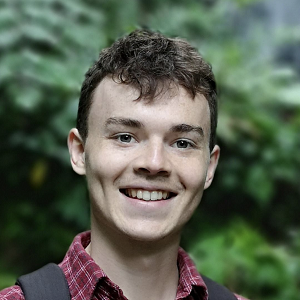
William Brown (University of East Anglia)
Main supervisor: Dr Christa Brunnschweiler; second supervisor: Dr Sheheryar Banuri
Research project: 50 Years on from the South Korean Saemaul Undong Movement
Research description: This project aims to highlight the long-term impact of the Saemaul Undong Movement (SUM) throughout Korea. The project aims to identify the long-term economic and environmental differences in those areas which received the multiple waves of treatment and those which did not, with the use of regression discontinuity methodologies. This analysis will be conducted in cohesion with the Environmental Kuznet’s Curve (EKC) in order to discover whether development lags in Korea impact its turning point on the EKC curve, helping to achieve a more sustainable development scheme. Finally, the project would progress on to the transferability of the SUM in a modern context, with movements being made from Korean investors in Sub-Saharan Africa, under the SUM umbrella. This chapter would look at the viability of the new projects and would identify any inferences which could be taken from the initial SUM scheme that could be provided as supporting knowledge.
Twitter: @William58050581
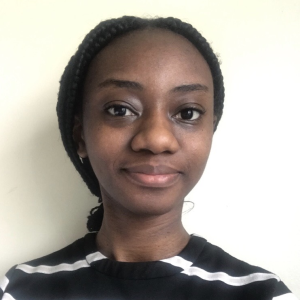
Catherine Ojo (University of Surrey)
Main supervisor:Dr Martin Foureaux Koppensteiner; second supervisor: Prof Matthias Parey
Research project: How Responsive are Remittances to Shocks? Evidence from High Frequency FinTech data on remittances
Research description: Remittances are an important source of income for many people in developing countries, where they make an important contribution to reducing poverty and improving welfare. Remittances have also been found to aid in consumption smoothing and serve as an insurance mechanism for recipient households in times of economic downtowns. In 2016 alone, an estimated amount of USD429 billion had been remitted from developed countries to developing countries. This has largely been due to a surge in technological advancements which has allowed remittance service providers (RSP) to facilitate cross border payments using internet and mobile devices. Following these technological developments, my proposal seeks to examine the response of international remittances to various shocks experienced in recipient countries, using the different remittance transfer channels available. This research project will look at how formal remittance flows respond to negative shocks, by comparing senders living in the same region in high income countries but sending to different regions in the home country and will observe their remittance transfers over time. Using a large and innovative dataset from a technology-enabled financial innovation (FinTech) Remittance Service Provider based in the UK, I will examine in-depth the heterogeneity amongst remitters and their reaction to negative shocks in the recipient countries. The nature of this high-frequency dataset will allow me to shed light on the motivations behind remittances, to establish causal linkages between remittances and its role as an insurance mechanism. My proposal will aim to answer the following four questions: (1) Do remittances react to shocks in (sender and) recipient countries both in terms of the overall amounts remitted and the pattern these remittances are being delivered, (2) do remittances react differently to different types of shocks that are more or less visible, for example in reporting (comparing negative events with fast and slow onset) (3) does the type of technology matter for these responses comparing the different remittance channels (for example linked mobile money accounts) and (4) whether demographic (location, age, gender) biases exist in remittance reaction to negative economic shocks. To answer the above questions, I intend to use the difference-in-difference strategy to capture the general response of remittances to negative shocks experienced in the recipient countries; to examine the impact of the different types of shocks (weather shocks, epidemics, and the Covid-19 pandemic) on the frequency and volume of remittances sent to recipient countries; and to analyse the differences in the reaction of the various remittance sending channels (eg. bank transfers, mobile money accounts etc) to the shocks. This project will aim to advance the literature by providing a much more disaggregated insight in the nature of the responsiveness of remittances to natural disasters using high-frequency administrative data. This dataset will allow me to look at the within country response of remittances to exogenous shocks, by comparing locations within the country that are affected differently by the shocks. In addition, while the literature mainly explores the remittance response from the receiving country end, I will also attempt to estimate the effect of shocks at the sender's end using information on the location of remittance sender.

Mariana Bernad (Royal Holloway, University of London)
Main supervisor:Dr Juan Pablo Rud; second supervisor: Dr Ralph De Haas
Research project: Financing the green transition in developing countries
Research description: The aim of the project is to advance our understanding of how finance can facilitate the adoption of low-carbon and other green technologies by firms in the developing world. The project will investigate the drivers of commercial banks’ green lending strategies and firms’ decisions to invest in green technologies or not. Special attention will be paid to how access to credit can facilitate the green transition. Additionally, the project will analyze how local environmental conditions in terms of pollution and extreme weather, as well as the regulatory environment, shape the decisions of lenders and borrowers to finance and adopt green technologies, respectively.

Pavlos Balamatsias (University of Essex)
Main supervisor: Dr Alexander Clymo; second supervisor: Professor Melvyn Coles
Research project: The Role of Public Employment in Macroeconomics: Theory and Evidence
Research description: During the second half of the 20th century extensive government spending programs have been established by many countries in the Western world. It is an underappreciated fact in business cycle research that governments now employ large fractions of the workforce in many developed economies: 16% the US, and over 25% in the EU (OECD, 2019). The behaviour of the government during a recession is therefore crucial in directly determining what happens to unemployment: Is the government also firing workers, and therefore adding to the rise in unemployment, or are they hiring workers, and potentially picking up some of the slack?
Despite this “direct” effect of government employment on the labour market, most research on the cyclical role of the government abstracts from government employment. Instead, a voluminous literature tackles the age-old question of how large the “government spending multiplier” is. Empirically, this measures the effect on the economy of a typically abstract increase in government spending. Theoretically, this asks how the economy responds if the government increases spending by purchasing more goods from the private sector, and therefore any effects on the labour market are instead “indirect”. In this dissertation, I aim to fill this gap in the literature, by investigating both empirically and theoretically 1) how changes in government employment “directly” contribute to unemployment over the business cycle, and 2) whether it is a good idea for the government to temporarily increase employment during recessions to fight unemployment, and how this policy compares to the more-explored tools of traditional fiscal stimulus, or transfer payments such as unemployment benefits. To answer these questions I propose to write a three-chapter dissertation, which will build on recent advances in several fields of macroeconomics.
My first chapter will study the role of public employment over the business cycle. Doing so requires a realistic labour market, and for this I use recent advances in the search and matching literature by Coles and Kelishomi (2018). They argue that private sector firms tend to be sluggish at creating new jobs for unemployed workers, unlike standard search and matching models with free entry, and estimate that job creation is very inelastic in the data. My key insight in this chapter is that if private sector job creation is inelastic in this way, changing public employment during recessions has powerful effects on unemployment. I will build a quantitative model to estimate the effect of public employment on the economy, including a public employment “multiplier”, and estimate the historical contribution of changes in government employment to unemployment in the UK.
In my second chapter, I will extend the model in order to study heterogeneity and how public employment affects risk and inequality. I will first extend a Two-Agent New Keynesian (TANK) model (Cantore and Freund 2020; Ravn and Sterk, 2020) to include public employment and the labour market model from chapter 1. This builds heavily on the work from my MRes thesis. I will then extend this model into a full-blown Heterogeneous-Agent New Keynesian (HANK) model (Auclert et al. 2018; 2020; Kaplan et al. 2014; 2018; Hagedorn et al. 2019). To the best of my knowledge, this will be first model studying public employment using either TANK or HANK models, so I will be able to study the interaction between government employment, inequality, and aggregate demand using the most innovative business cycle models.
In my third chapter, motivated by the COVID pandemic, I will study the effect of pandemics on employment and how public employment can mitigate a lockdown’s effects. To do so I will combine an epidemiological SIR model (Eichenbaum et al. 2020; Faria e Castro 2020; Kaplan et al. 2020) with the model in chapter 1 to examine the joint role of the public employment in supporting health and unemployment during the pandemic.

Elena Faieta (University of Essex)
Main supervisor: Dr. Michel Serafinelli; second supervisor: Professor Marco Francesconi
Research project: Rural Labour Markets: Local Multipliers and Agglomeration Spillovers
Research description: Twenty-five percent of the population in developed countries lives in rural areas. However, more focus appears to have been put on cities in social science and, while recent research documents large differences in employment growth across rural areas, the drivers of labour market dynamics in such areas are still unclear.
My research proposal aims to study local multipliers and agglomeration spillovers in rural labour markets, using data from Italy.
Local multipliers can be defined as the additional economic benefit that accrue to the local economy in the presence of a particular type of economic activity. For example, if a new job is created in some area, the local economy benefits from an increase in both the spending of the firm and that of workers, resulting in benefits of other local industries as well. We call this the “multiplier effect”.
Agglomeration spillovers are defined as the benefits that come when firms and people locate near each other in a given geographic area. In the presence of agglomeration spillovers, rural areas can share intermediate-input producers and labour pools, with a resulting decrease in cost of productions and relocation costs. Also, thanks to shared knowledge and improved skills matching, firms experience higher innovation with lower costs and higher profits.
In the first strand of my research, I will study local multiplier effects in rural labour market exploiting demand shocks for the manufacturing of food and beverage industry.
In the second strand, I will study agglomeration spillovers. My research design exploits shocks to Small and Medium-sized Enterprises (SMEs) and artisanal workshops. The standard approach, used in the literature so far, exploits data variation caused by “firm entry” in the local labour market to study agglomeration effect. I will instead use an inverse approach that exploits “firm exit” variation, which I believe is novel. This allows to explore the extent to which de-agglomeration spillovers affect the labour market and lead to: decrease in productivity and increase in costs at local level.
In the end, I plan to develop a theoretical model in which demand shocks at aggregate level drive local industry dynamics. In this model, labour market evolutions in rural areas then result from these industry-level changes due to agglomeration spillovers (and therefore changes in productivity) and local multipliers. This model-based approach can be used, for example, to analyse how the government’s infrastructure investments and subsides to firms affect industry-level changes and job growth across rural areas.
The findings will inform governments and policy makers about: (1) drivers of labour market dynamics in peripheral areas; and (2) effectiveness of public infrastructure investments and subsides to firms in reducing regional inequalities and spurring employment growth in rural areas.
Twitter: @faieta_elena
LinkedIn: Elena Faieta

Enya Turrini (Royal Holloway, University of London)
Main supervisor: Melanie Lührmann; second supervisor: Arnaud Chevalier
Research project: The impact of parental and local socio-economic shocks in childhood on young adults’ expectations and perceived social norms
Research description: Families’ socio-economic status, parental education and local economic conditions play a critical role in child development and are formative factors for their future education and life choices. This research agenda aims to offer a broader perspective on the effect of childhood circumstances and focus on their role in the formation of preferences, future beliefs (subjective expectations), personality and prosocial behaviour. All of these have been shown to significantly affect life choices.
In the first part, I investigate whether family shocks – i.e. parental unemployment – experienced during childhood unfold long-run impacts on the personality and future beliefs of young adults. In the second part, I explore the influence of changes in local public funding for youth services such as youth clubs and sports facilities – experienced as a result of the UK austerity policy or from the allocation of National lottery profits to local sports clubs, social and cultural venues – on personality, socio-emotional development and future beliefs.
These projects are based on the Millennium Cohort Study, a longitudinal panel of about 19,000 children born in the UK at the turn of the Millennium. These children, and their families, have been surveyed since birth, which offers the opportunity to precisely measure life events, including shocks that might be specific to the family (e.g. parental unemployment) or to the municipality (e.g. local government funding shocks). I will focus on respondents’ subjective expectations about attending higher education, employment and earnings at age 30 which were elicited at age 17, just before the end of compulsory schooling, in a module of MSC developed by – among others - my envisaged supervisors Profs Chevalier and Luhrmann. In addition, I will exploit measures of personality at age 17, and socio-emotional development which has been elicited throughout childhood.
The millennium cohort will allow me to investigate three potential mechanisms – the formation of future beliefs, personality and socio-emotional development - which may be affected by family circumstances and shocks in different stages of childhood.
Third, I explore whether family background is related to ethical attitudes and social behaviour, such as pro-social actions, redistributive allocation choices, cooperation and cheating. We plan to run quasi-experiments to assess how family background may affect perceived social norms. There is limited evidence that this is the case. Moreover, we will assess the willingness to deviate from the perceived norm. I thus want to assess whether perceived social norms and non-adherence to the norm are correlated with family circumstances, as this could contribute to the social gap in expectations.
For example, the education expectation gap could be driven by differences in the perceived social norm regarding attending higher education, and by socio-economic differences in deviating from perceived social norms. For this part of my PhD, I will develop a survey and use a series of games typically used in economics to assess pro-social behaviour and social norms. Profs Feri and Luhrmann who have conducted field and lab experiments will supervise this.
LinkedIn: Enya Turrini
Instagram: enya1912

Jack Keeble (University of East Anglia)
Main supervisor: Amrish Patel; second supervisor: Oana Borcan
Research project: First Steps to Independence: Evaluating a Behaviourally Informed Travel Training Programme
Research description: Today’s children are growing up in tough times. Funding for children’s services is under serious pressure, mental health problems are increasingly common, and the COVID pandemic has disrupted childhoods across the UK. One group of children particularly affected by such adverse climates are those with special educational needs and disabilities (SEND). Norfolk County Council (NCC) are committed to ensuring that all children and young people with SEND reach their potential and thrive. NCC is working together with The University of East Anglia (UEA) to continue to improve and evaluate a programme for SEND children which aims to equip them with a skill fundamental to teenage and adult life: independent travel skills. Travelling independently unlocks the door to social activities, employment, education, or volunteering opportunities, helps to combat social isolation, and ultimately supports individuals to achieve and maintain an economically active and fulfilling life.
Current home-to-school transport provision can be detrimental to the environment and contribute to budget pressures for local authorities. Where appropriate, if children and young people are able to switch to greener, healthier, and more sustainable modes of transport (e.g., public transport, cycling or walking), there could be benefits to all. This project, the first of its kind, will evaluate whether behavioural science-informed independent travel training can support these goals.
The overall aim of this project is to evaluate the impact of a behavioural science-informed independent travel training programme (for SEND children, 11+ years old) in four dimensions:
- Progress towards independent travel.
- School attendance, behaviour, and attainment.
- Non-cognitive skills, behavioural and psychological measures (e.g., confidence, self-esteem, quality of life, adult skill development, risk-aversion).
- Broader impacts (e.g., parental burden, child-parent relationship quality, Local Authority expenditure).
LinkedIn: Jack Keeble
Instagram: jack.e.keeble

Nicholas Green (University of Surrey)
Main supervisor: Valentina Corradi; second supervisor: João Santos Silva
Research project: Preferential Trade Agreements and UK Industries of the Future
Research description: Many modern industries engage in international trade, and hence their success relies on trade agreements with partnering nations. In 2017, the UK government's industrial strategy white paper emphasised the “industries of the future” (IOTF), such as artificial intelligence, big data, clean energy, and self-driving vehicles, i.e., industries having critical strategic value to the UK economy.
The heterogeneous nature of industries means that preferential trade agreements (PTAs) can affect industries very differently. To negotiate tailored PTAs to best nurture industries, I must quantify the effects of trade provisions on industry growth. I aim at devising computationally feasible estimators, extending, e.g., Larch et al. (2019) to industry disaggregated data (e.g., Chen and Novy 2011) to study and identify the effects of individual PTA provisions on bilateral trade flows in specific industries, emphasising the IOTF.
Recent research has tried to move beyond estimating the overall impact of PTAs and establish the relative importance of individual provisions in determining an agreement's overall impact (e.g., Kohl, Brakman, and Garretsen, 2016, Mulabdic, Osnago, and Ruta, 2017, Dhingra, Freeman, and Mavroeidi, 2018).
Estimating the impact of individual provisions within PTAs has many challenges. Existing research has struggled with overfitting and severe multicollinearity problems when estimating the effects of these provisions on trade flows because many provisions jointly appear in several trade deals, thus creating high collinearity among them. Mattoo et al. (2017) use the number of provisions in an agreement to measure its "depth". Instead, Dhingra et al. (2018) group provisions in relatively small groups of bundles. Both approaches to overcome collinearity come at the cost of losing important information about the contribution of specific provisions.
Firstly, I will merge the big data/machine learning approach of my supervisors, Corradi and Santos Silva, in Breinlich et al. (2021), to the sectorial disaggregated approach of Chen and Novy (2011). I will build on the techniques co-developed by my supervisors in Breinlich et al. (2021), who use the complete set of individual provisions and machine learning techniques, such as LASSO (Least Absolute Shrinkage and Selection Operator), to choose the subset that affects bilateral trade adaptively.
I will apply these methods to a rich dataset of PTA provisions recently made available by the World Bank (Mattoo, Rocha and Ruta, 2020). This dataset provides evidence on the content of trade agreements both at the extensive margin (number of policy areas covered) and the intensive margin (commitments within an area). These methods will allow me to propose novel data-driven methods for selecting the most important provisions and quantifying their impact on trade flows in the IOTF.
My research will also contribute to estimating the gravity equation with four-layer panel data, i.e., in the presence of export and import countries, industries, and time. To consider the role of time and country-dependent time effect would not be trivial. Importantly, my dissertation will have an impact outside of academia. My research will provide novel insights into how trade deals may impact the IOTF and their growth, which is crucial information for trade negotiations.
LinkedIn: Nicholas Green
Instagram: Nicktenoshi
Facebook: Nicholas Green

Omar Hussein (University of Essex)
Main supervisor: Carlos Carrillo-Tudela; second supervisor: Xiaoyu Xia
Research project: Social networks and match quality: a search approach
Research description: Individuals often rely on their informal personal contacts - social networks - to find employment or improve their labour market prospects. The general direction of the theoretical literature predicts a positive effect of networks on the quality of the match between workers and firms, and thus wages and job stability, because they reduce information and search frictions. However, the empirical literature provides mixed and heterogenous results.
My objective is to explore alternative channels of transmission from networks to match quality. I will study the role of networks in wage bargaining as a determinant of the worker’s outside option, and as a social risk sharing mechanism against the incidence of unemployment. These two aspects could allow us to explain the observed differentials of the effect of networks on wages and turnover by skill level and occupation.
To address these issues, I will follow a structural estimation approach to identify and quantify the economic mechanisms behind the relationship. For the theoretical part, I will formulate three models incorporating networks into a directed search framework, that includes wage renegotiation and learning about match quality. Then, I will empirically test the predictions of these models using individual level data from the UK and Germany.
This project is situated within the strand of theoretical literature on social networks in search models, and the empirical literature that evaluates them using large individual level datasets. From a policy point of view, this project can be used when designing programs for employment agencies to fill the information gap for those with limited access to job referrals.
Twitter: @OmarMohHussein
LinkedIn: Omar Hussein

Paulo Morais (University of Essex)
Project details to follow
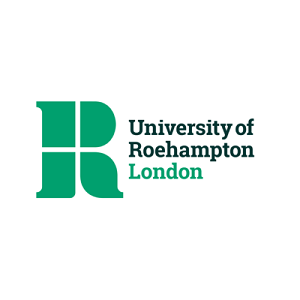
Caitlin Shaughnessy (University of Roehampton)
Main supervisor: Professor Adam Ockelford; second supervisor: Dr Arielle Bonneville-Roussy
Research project: Music, autism and learning: a transdisciplinary approach to autism interventions using theories and practices of interaction, pedagogy and perception
Research description: For those with autism, music is widely regarded as an effective means of engagement, and there are numerous examples of the unique relationship between autism and musical talent. Music provides a unique platform for interaction as it encourages reciprocity within an environment separate from the social and environmental cacophony autistic individuals often encounter in everyday life. Within such a setting, a mutual musical relationship can be developed, where imitation and turn-taking can encourage musical dialogues and interaction in a situated musical space. As these behaviours are often linked to social development in early childhood (Meltzoff and Prinz 2002), they could have positive implications for behaviour outside musical environments. Therefore my current project proposes to investigate how through the observation of existing educational and therapeutic practices of music with autistic children in conjunction with practice-based research of musically interactive games, it may be possible to identify which specific aspects of music can promote social engagement, and how these may be utilized to develop social skills more widely.

James Wagstaffe (University of Reading)
Main supervisor: Dr Suzanne Graham; second supervisor: Dr Holly Joseph
Research project: Processing cohesive devices as a second language reader: A mixed method study
Research description: My research aims to investigate the ways in which second language (L2) users of English for Academic Purposes (EAP) process cohesive devices in written academic texts. Specifically, it will firstly use eye-tracking technology to identify to what extent L2 readers engage with grammatical and lexical cohesive markers during reading, as well as areas where comprehension difficulties may occur. Secondly, it will use stimulated recall interviews to investigate potential causes for any processing difficulties identified through analysis of the eye-tracking data. This research seeks to make contributions to both practical pedagogy as well as theoretical understandings of L2 reading processes. In terms of pedagogy, it aims to investigate whether there are differences in the ways that successful and less successful readers process cohesive devices in academic texts, in the hope that such insights may be used to inform the development of materials and class room approaches used to help struggling readers achieve their academic goals. In terms of its theoretical aims, this research intends to build on the work of linguists and written discourse analysts, such as Michael Halliday, Eugene Winter and Michael Hoey, to investigate the extent to which their findings regarding grammatical clause construction, inter-clausal grammatical relationships, as well as extended discourse patterns and their grammatical or lexical signaling, appear to have psychological reality to second language readers. As a corollary, this research further intends to shed light on the ways in which L2 readers use lexical and grammatical cohesive markers to establish relationships of coherence between ideas in adjacent sentences, paragraphs and extended passages of text as they attempt to develop an extended cognitive model of the text being read.

Michael Roy (University of Sussex)
Main supervisor: Mario Novelli; second supervisor: Yusuf Sayed
Research project: Mapping the Politics of Education Policy in North Macedonia: Integration, Segregation, and Conflict
Research description: With the increasingly complex nature of violent conflict today, there is renewed interest within the international community in the ameliorative role of education. Hence, Western organisations export education and development projects to non-Western countries, which have significantly different socio-historical contexts, but share in common a struggle to balance diversity and unity in efforts to counter the danger of ethnoreligious conflict engulfing the nation. A case in point is the post-communist and post-conflict states of the former Yugoslavia, and primarily the small and troubled state of the Republic of North Macedonia, the site of this study. Following the armed insurgence in 2001 involving the country’s two largest ethnic groups, the state’s education programme was significantly altered. Driven by Western intervention a number of liberal multicultural policies were adopted to actively encourage Macedonia to employ education as a tool to manage its diverse populaces in constructing a secure form of national unity. Nevertheless, this appears to have faltered and has only reinforced existing ethnic divides and contributed to the escalation of tensions and political controversy in recent years. As a result Macedonia's education system has become increasingly segregated. Underscoring the importance of this research is the lack of empirical research concerning supranational education agenda setting, its legitimacy, and its ability to address the needs of conflict-affected societies. A greater analysis is now needed regarding policy disjuncture between the powerful multilateral institutions involved in these interventions in Macedonia with regards sustainable ‘peacebuilding’. Whilst education interventions may represent Western modernity, under closer scrutiny, they not only hold conflicting education agendas but also often overlook the contextual indicators concerning ‘difference’ in the way they handle ‘the Other’. This has a significant impact on the success of such initiatives being realised, particularly in contexts affected by armed conflict and its legacies. As Macedonia well illustrates, such disconnect and oversight can actually contribute to creating a more ethnically entrenched and segregated education system. Therefore, this research will be built around the questions of what has been the logic behind Western intervention in the reform of curricula in the compulsory education system of the Republic of Macedonia since 2008 and in what ways has this contributed to sustainable peacebuilding? But also what can this tell us of the role of Western interventions in the education systems of ethnically divided conflict-affected contexts? At the core of this project rests a prism fashioned from three education interventions, to provide ‘tangible’ access to micro to macro-level understanding of the factors constraining the design and implementation of cohesive reforms in facilitating long-term conflict resolution within a consociational context.

Rosa Marvell (University of Sussex)
Main supervisor: Dr Tamsin Hinton-Smith; second supervisor: Dr Louise Gazeley
Research project: Exploring postgraduate taught (PGT) trajectories through the narratives of first-generation students enrolled on Master's Programmes in England
Research description: This doctoral research is a narrative interrogation of the intersections between trajectories towards postgraduate taught (PGT) study and social inequalities. Whilst significant attention has been dedicated to understanding the barriers to entering undergraduate provision, the same focus has not been forthcoming when it comes to understanding how people access PGT study, how their life experiences inform this and what may help and hinder their navigations. This research therefore occupies an important vantage point to extend the knowledge base about Higher Education equity, widening participation and educational inequalities by thinking through these critical issues from a new perspective.

Hélène Binesse (University of East Anglia)
Main supervisor: Professor Anna Robinson-Pant; second supervisor: Professor Nitya Rao
Research project: Nutrition literacy, exploring communicative practices to engage in health-related knowledge in Malika, Senegal
Research description: The starting point for undertaking my PhD is to research literacy as social practice. I originally wanted to explore what it means to be ‘digitally literate’ in Senegal, an emerging digital environment where initiatives and the will to promote Information and Communication Technologies (ICTs) in adult literacy, in particular among girls and women. The idea was to explore the experiences of adult literacy learners, mainly women, with the mobile phone by bridging the digital practices inside the national literacy programme classroom and those in their everyday life. Staying over 10 months in Malika, a town in the suburbs of Dakar, I volunteered in a local NGO in literacy and development, and gradually accessed to different domains of social life in the town.
After couple of months in Malika, the participant observations and my personal engagement with the persons I met encouraged me to explore health literacy practices and in particular nutrition literacy. In Senegal, infectious and communicable diseases like respiratory tract infection, HIV/AIDS and malaria remain important but statistical evidence from WHO suggests that they have diminished. However, non-communicable diseases (NCDs), such as diabetes, are growing and affect patients more seriously as they are diagnosed too late mainly because of the lack of prevention and health education, and poverty.
To explore how Malika residents learn about NCDs, I observed the everyday environment and practices to access, produce and share health-related information. I analyse the non-formal and informal learning that is taking place in this community, the mediation around health information and resources by trusted members and how youth and adults are engaged in this information. I include a focus on digital media, in particular WhatsApp and investigate the type of disseminated information. An interest in the ways of sharing has shaped my study. I intend to highlight the potential of mediation for enhancing community health in a context where poverty and the lack or weakness of a State health-care system often limits access to health-care service and to medicines, increasing the negative impact of overall social injustice.
Implementing the qualitative research approach of ethnography was and remains a key motivation in my learning. Undertaking this doctoral research, I aim to engage more actively and solidly in adult literacy and learning. In this thesis, I intend to describe how this methodology is equipping me to work with and access people's aspirations and experiences, and to work for and with them in complex political and economic contexts.
LinkedIn: https://www.linkedin.com/in/h%C3%A9l%C3%A8ne-binesse-90776012/

Steven Dixon-Smith (Goldsmiths, University of London)
Main supervisor: Vally Lytra; second supervisor: Rosalyn George
Research project: The discursive construction of identities for 1st year BA Architecture Students
Research description: In a political climate where tensions around race, ethnicity and social class have surfaced as separate but increasingly urgent questions of social justice, universities are faced with addressing stubborn racial, ethnic and class-based inequalities in outcomes for students from Black and Minority Ethnic (BME), and lower socioeconomic backgrounds. However, the fixed and separate identity categories employed in statistically-driven efforts to address inequalities are at odds with the fluid intersectional understandings of identity provided by contemporary social and cultural theory (Fraser, 2000; Hall, 1996; Gilroy, 2001). Furthermore, at a policy-level, the Higher Education Funding Council for England (HEFCE) note that the causes of different outcomes involve a complex mix of wider socio-historical structures, the social contexts of individual Higher Education (HE) providers, and day-to-day communication between staff and students at the level of micro-interaction (HEFCE et al, 2015:ii). The need for research into the complexities of identity has been highlighted in a number of recent reviews of inequalities in Higher Education and Architectural Education. The Higher Education Funding Council for England (HEFCE) report, Causes of differences in student outcomes noted ‘appetite for more research understanding the intersectionality of different student characteristics and their link with progression and attainment outcomes’ (HEFCE et al, 2015:95). The Higher Education Academy highlight the importance of treating the BME category as a non-homogeneous group and dealing with disciplinary specific inequalities, (Finnegan & Richards 2015). Meanwhile, reliable reporting of socio-economic classification has been unavailable due to high percentages of missing data (Woodfield, 2014:22). Research within the architecture profession shows particularly stark inequalities. The Royal Institute of British Architects (RIBA, 2017) show the Black/Black British percentage of student population at entry to undergraduate study to be 6.8%, dropping to only 1.2% on full qualification. RIBA-commissioned reviews into architecture and race have suggested the need for longitudinal studies (CABE, 2005:5) and the need to ‘review and address language and communication issues’ (CEBE, 2005/6:22). Aims and objectives The research project aims to explore processes of identification beyond and across categories of race, ethnicity and social class using sociolinguistics. It will do this by working with first year architecture students to explore the different ways in which identities emerge in interaction over the first year of study. The project takes a linguistic ethnographic approach that connects day-to-day interactions with wider social structures and processes. It will use interviews, linguistic analysis of audio recordings and observations of architecture studio interactions to better understand the ways in which these identifications correspond to, resist, and rework the identity categories used in policy initiatives aiming to address inequalities in education. The analysis of these accounts will draw on and inform relevant social and cultural theory with the aim of providing research capable of contributing to policy initiatives responding to inequalities in HE.

Pearl Boateng (University of Sussex)
Main supervisor: Prof. Kwame Akyeampong; second supervisor: Dr. Jo Westbrook
Research project: Quality education for youth: A case study of secondary education provision in Ghana
Research description: Ghana’s 2017 Free SHS policy is its boldest attempt to transform secondary education (SE) to date. A long-standing constitutional and electoral promise, the policy absorbs all direct schooling costs and expands upper SE to all students who successfully pass their terminal Junior High School (JHS) examinations. Despite the policy’s laudable ambitions, SE’s highly selective, colonial traditions mean the prevailing notion of SE, its purpose and expectations are not consistent with the Free SHS policy and its explicitly stated goals of providing access to quality and equitable SE in Ghana. Literature demonstrates continuous debates on conceptualisations of quality and problematises the dominance of human capital theory and rights-based approaches in development discourse. The extent to which this impacts on quality debates in SE is under-researched and inadequately theorised in existing literature on SE in SSA. Therefore, the research explores the ways in which global and national discourses on quality inform how quality is understood and enacted within Free SHS in Ghana. The research uses postcolonial and critical social theory to problematise global framings of quality education before critically analysing colonial influences on the evolution of secondary education in Ghana. Furthermore, it will analyse school and classroom practice for insights into differences in the experience of "quality" SE in Ghanaian secondary schools and its implications for equity. The main aim of the research is to develop theoretical and empirical insights into the production of quality in SE in a sub-Saharan African context. To achieve this, it examines policy discourses, teacher practices and student experiences and postcolonial influences.
Twitter: @pboateng88
LinkedIn: https://www.linkedin.com/in/pearlboateng

Zora Laattoe (Goldsmiths, University of London)
Main supervisor: Anna Traianou; second supervisor: Anna Carlile
Research project: The mainstream’s edge: students at risk of exclusion and systems they inhabit
Research description: In England, 35 young people per day face permanent exclusion, which means that their access to a specific school is irrevocably revoked and they are removed from rolls (Department for Education, 2017). While this was formerly reserved for only the most serious offences, it is increasingly being used following escalating sanctions for issues such as general defiance and disobedience (Spink, 2011). The pathways open to a young person following this are reduced – many will struggle to find another mainstream school place and may enter alternative provision units or home education. As numbers continue to increase (Department for Education, 2017), the need to find solutions which allow mainstream education to be open to all has become critical, particularly as the Institute for Public Policy Research has highlighted the connection between permanent exclusion and poorer life outcomes (Gill, Quilter-Pinner, & Swift, 2017). However, research is starkly divided between intervention-based studies, which are generally experimental in nature and sparser in terms of theory, and interview-based studies which describe the experiences of young people, teachers and caregivers involved in the formal exclusion process, and often seek to generate theory. This division, observed across educational research, has been referred to as two distinct cultures (Biesta, 2015). Recently, there have been calls for interventions to be more solidly grounded in theory (Valdebenito et al, 2018), which requires a greater understanding of the process itself. To address this question, it is necessary to investigate the exclusions process in situ. This study will use a systems-based framework (von Bertalanffy, 1968) to consider how the perspectives of young people and their life experiences intersect with the sociopolical milieu in which they are located, paying attention not only to micro-level interactions but to how this relates to the national- and school-level policy contexts. It will begin drawing together elements of both pre- and post-exclusion literature by working with young people who have been identified by their academies as at risk of permanent exclusion. Using a variation of the ‘eclectic’ multiple case-study approach developed by Day Ashley (2012), data will be collected from a number of sources, including the young people themselves (via two-monthly semi-structured interviews over a calendar year), their teachers, their schools' behaviour and exclusion policies and Department for Education guidance. Analysis will use a ‘Framework’ approach (Ritchie and Spencer, 1994), modified with elements of Qualitative Content Analysis to interpret findings through the use of hierarchical nested categorisation and to identify the commonly occurring themes, interactions and occurrences which contribute to a young person either staying in or leaving mainstream education. The study will generate theory from data collected during the same time period that interventions (pre-exclusion) would normally occur. Furthermore, it will seek to provide teachers and teaching unions with research which can support them in demanding change for young people; in the current political environment, this has proved challenging without an abundance of evidence. It is hoped that by contributing to a growing body of literature, this study will help to effect change in the educational sector.

Aniqa Leena (University of Reading)
Main supervisor: Dr. Naomi Flynn; second supervisor: Prof. Suzanne Graham
Research project: Raising EAL learners' attainment (REAL)
Research description: Working in collaboration with the University of Reading’s Institute of Education and a network of Southampton schools, the REAL project aims to explore the effectiveness of the Enduring Principles of Learning, an evidence-informed rubric which has had success in systematically observing, measuring and improving classroom practice and academic outcomes (Teemant, 2020). At its core, the Principles encourage a collaborative relationship between teachers and instructional coaches, with the shared goal of raising pupils’ attainment through inspiring teaching practice rooted in sociocultural learning theories. Appropriate for both monolingual and English as an Additional Language (EAL) learners, the Principles foster opportunities for rich language and dialogue to occur amongst teachers and pupils, with its application already producing promising results in North American and European classroom contexts (Flynn, Viesca & Teemant, 2019).
The REAL project will concurrently explore the impact of the Principles on teachers and pupils, framed within the UK classroom context. This includes the delivery and evaluation of professional development underpinned by the Principles, in addition to the analysis of EAL pupils’ academic outcomes and their perceptions of the Principles applied to classroom practice. This study intends to contribute to the limited evidence base currently available regarding EAL pedagogy within the UK, with the findings of this research of particular interest to school leaders, teachers, researchers and other education professionals working closely with EAL pupils.
Twitter: @aniqaleena
LinkedIn: https://www.linkedin.com/in/aniqa-leena/

Fred Inglis (University of East Anglia)
Main supervisor: Dr Simon P Hammond; second supervisor: Professor Nigel Norris
Research project: Exploring the transitions of young adults with SEND from education to work
Research description: My thesis will explore how young people with Special Educational Needs and Disability (SEND) make sense of their transition experiences as they leave education, enter the workplace and attempt to sustain themselves there. Nationally, the employment rates of SEND populations are just 6%. As one strategy to address this issue, the Department for Education has recently introduced year-long education to work programmes called Supported Internships, which aim to prepare 16-24 year olds with SEND for competitive employment. The programmes are delivered by education providers and based full-time at a host employer workplace site. This research will engage with young people with diverse SEND (including autism, learning disabilities and sensory impairment) who are undertaking a Supported Internship and individuals who have progressed through this pathway. It is felt that an inductive, qualitative approach seeking first-person perspectives can facilitate rich and meaningful insight into these young people's lives. Drawing on these everyday, lived experiences can inform the development of policy and practice in this relatively new area, as well as provide valuable insight into the ongoing needs of people with SEND in employment.
LinkedIn: https://www.linkedin.com/in/fredinglis/

Gregory Campbell (University of Sussex)
Main supervisor: Dr L H Gaazeley; second supervisor: Dr J C Sutherland
Research project: Still Learning to Labour – exploring the dynamics of the construction classroom
Research description: This research explores the multi-layered dynamics of the construction classroom in three Further Education (FE) colleges in England. With increasing powers to exclude students or seek alternative provision, the flow of students perceived to be ‘challenging’ into FE is on the rise. The majority study courses preparing them for the workplace, highlighting the traditionally working-class nature of the FE context. The nature of construction subjects, such as bricklaying, carpentry and plumbing, is such that most lecturers will be male, working-class and employed for trade skills rather than pedagogic expertise. Like their students many of these teachers will have left school at 16, before progressing through the apprenticeship system to go on to become experts in their field. In the academic year 2020-21 the new T Levels are being introduced offering a mixture of classroom learning and ‘on-the-job’ experience. alongside the reintroduction of an employer lead and funded apprenticeship system. The way the new courses are structured and the new ‘higher’ standards that have been introduced have implications for the predominately male working class students. Construction classrooms are culturally and socially diverse and challenging learning environments. This research takes a case study approach and utilises a range of methods (observations, focus groups and interviews) to explore the interactions between students and teachers in the construction classroom; looking at the way relationships are formed and maintained, how teaching and learning are approached and how the behaviour of both staff and students affects the former. This is an under researched area, yet construction departments are increasingly required and expected to raise the ‘standards’ of young people who have been failed by compulsory education, whilst being both under-resourced and under-valued. Further Education is a unique educational environment and the approach to teaching and learning needs to be equally unique if we are to truly raise the standards of our learning to labour.

Hannah Olle (University of Sussex)
Main supervisor: Dr Louise Gazeley; second supervisor: Dr Jacqui Shepherd
Research project: Transition from Alternative Provision to post 16 settings: navigating the challenges.
Research description: There is increased demand to know why pupils in Alternative Provision (AP) are less likely than their peers in mainstream school to transition to post-16 education and training (Timpson, 2019). AP is education arranged for pupils who are unable to attend school because of permanent exclusion, mental and physical ill-health or behaviour problems (DfE, 2013). The numbers of pupils in AP are rising - they currently stand at 1 in 200 each year (Gill, 2017). However, over 1 in 3 of these pupils fail to progress from Year 11 to Education, Employment and Training (EET) (DfE, 2018b). This research investigates how they navigate this transition and contributes to a national priority; how to increase the proportion who progress from AP to sustained EET (DfE, 2018). The focus in the study on what supports - and mitigates against - progression to EET, and therefore where opportunities exist to reduce the number who fail to progress, makes the potential findings highly relevant to policy and practice.
AP includes a diverse range of provision including Pupil Referral Units, vocational courses delivered by charities and farm schools. Young people in these settings are some of the most disadvantaged in the education system and are more likely to be living in poverty, have Special Educational Needs, be Looked After or have mental health difficulties (Mills & Thomson, 2018). At the end of Year 11 they make a critical transition when they leave AP to continue their education elsewhere, either in a college, an apprenticeship or employment with training. If they engage and sustain participation in EET it can lead to positive outcomes such as gaining qualifications and economic independence. However, for those who do not progress and become NEET (Not in Education, Employment and Training) there are significant risks to their future mental and physical health, and employment prospects (Feng et al, 2015), potentially reproducing a cycle of disadvantage.
This study draws on a definition of transition as ‘the capability to navigate change’ (Gale and Parker, 2014, 737) and uses an Ecosystemic model (Bronfenbrenner, 1979) to understand the systems and relationships that affect pupils' capability to navigate this change. Existing literature on transition from AP to EET predominantly focuses on the mechanics of transition, such as careers advice. This study seeks a more holistic understanding of transition, by exploring pupils' lived experience of the change from AP to EET in greater depth. This leads to the overarching research question: How do pupils navigate the change from AP to EET?
The research will employ a qualitative, longitudinal design and use interviews to gather data from pupils, their parents/carers and education professionals. Data will be contextualised by collecting information (online and documentary) about AP settings and post-16 programmes.
Findings in this study will enable practitioners and policy-makers to develop strategies to increase post-16 participation that are grounded in an understanding of what supports or impedes pupils' transition. Findings are also likely to provide transferable insights to other contexts where there are similar concerns about post-16 transitions, such as in Scotland.

Lauren Bouttell (University of East Anglia)
Main supervisor:Prof Anna Robinson-Pant; second supervisor: Dr Esther Priyadharshini
Research project: Social transformation and refugee learning in two UK communities.
Research description: The aim of this project is to explore refugees’ experiences of learning in two UK nongovernmental organisations and how these relate to social transformation. Anti-migration has become a central theme of populist politics in the UK, accompanied by increasing hostility towards those who speak languages other than English. Much political rhetoric asserts that migrants should learn English if they want to stay in the UK and has a top-down focus towards integration. Despite this rhetoric, funding for English classes has been continually cut and refugees in the UK are often unable to access them. There have also been enormous impacts of the Covid-19 pandemic on vulnerable refugees living in the UK. Despite these ongoing social challenges, there are numerous organisations who offer a welcoming environment for refugees, including free access to safe community learning such as free English classes. Sometimes participatory pedagogies are used with the goal of social transformation, but there has been little study of what form this change takes. This study will consider what refugees’ experiences of learning are, how far they are active agents in the process and how this relates to social transformation. Scotland and England have different approaches to adult education and integration for refugees. For this reason, the cases chosen for study will be community organisations offering free English classes and support for refugees in Norwich and Glasgow, two contrasting communities in the UK. Scotland has a published strategy for refugee integration, and attempts to welcome them to communities, in contrast to Westminster’s ‘Hostile Environment’ approach. The data will be collected in two stages in each organisation. First an ethnographic approach will observe and explore refugee learning. Next, Participatory Action Research will be used to develop a resource for organisations with refugee participants, guided by their experiences. This will be important for both organisations and policy makers, pointing to future directions that are informed and shaped by the life-wide learning experiences of refugees themselves.

Deb Buttery (University of Reading)
Main supervisor: Professor Suzanne Graham; second supervisor: Dr Naomi Flynn
Research project: The use of picturebooks in the languages classroom: impact on linguistic and non-linguistic outcomes.
Research description: My thesis will explore the issue of how to nurture positive attitudes to language learning among primary-aged learners of French, as well as improving their language proficiency. Learning a foreign or second language (L2) in school has recognised benefits for learners’ personal, cognitive and social development (British Academy, 2019), with the potential to enhance creativity, empathy and mental flexibility (Woll & Wei, 2019). Yet with take up at GCSE level and above declining (Collen, 2021), there are long-standing challenges for Modern Foreign Languages (MFL) teaching in England, from primary school upwards. There is an increasing body of research espousing the use of picturebooks in the foreign language classroom on both a theoretical (Mourão, 2016; Wolanin, 2021) and empirical basis (Birketveit & Rimmereide, 2017; Wang & Lin, 2019) but this research is overwhelmingly from non-Anglophone countries. Few if any such studies have been conducted in MFL classrooms in England. In view of the particular motivational and environmental factors that pertain in Anglophone settings such as England this is an important gap to fill. My research therefore seeks to examine whether MFL picturebooks can be used to support linguistic and non-linguistic outcomes in the classroom and, as such, promote better linguistic progress, emotional engagement, creativity and motivation in pupils.
A quasi-experimental, mixed methods study will be undertaken to address this research gap, working with English primary schools that have three classes of Year 5 mixed-ability pupils. One class (the experimental class) will undertake a project based on a picturebook; the active control class will undertake a project relating to French culture (i.e. not literature-related but controlled to ensure the same linguistic level); the control class will follow a textbook without extra intervention. Learners’ language proficiency, attitudes, motivation, creativity and empathy will be assessed before, during and after the intervention via oral assessments, questionnaires and focus groups. This range of data will provide novel insights into the role that literature can play in early language learning in an Anglophone setting. In so doing, it will provide a much-needed evidence base for tackling issues of low motivation for language learning across all educational phases.
Facebook: deb.clegg.5

Libby Hamling (University of East Anglia)
Main supervisor: Dr Esther Priyadharshini; second supervisor: Dr Spyros Themelis
Research project: Redefining Allyship: transforming race relations in higher education through a post-qualitative inquiry
Research description: This project will explore perceptions of 'allyship' among a self-selected group of minority and non-minority students in two UK Higher Education institutions. "Allyship" is a concept used in social justice activist circles to describe actions of privileged members to support or advance the interests of more marginalised groups/members. It can apply both in society at large, and within particular institutional contexts, such as universities or workplaces. Recently, where ‘allyship’ has been studied, the focus has been on explaining the motivations and controversies around White allyship. While self-identified ‘allies’ are seen as a potential lever for transforming social relations, there is little empirical research on how allyship, its role and functions work within institutional contexts.
The research will address this gap by exploring the diverse forms and outcomes of allyship among students, and offer insights into how institutions may recognise, and support the socially transformative actions of allies. To shed light on the manner in which the discrimination faced by minority groups is structural, the study will draw on the theoretical framework of Critical Race Theory which is featured in Higher Education research when presenting how discrimination may exist in Higher Education in visible and hidden ways. Scholars have revealed how institutions’ moves for greater ‘inclusion’, ‘integration’ or ‘diversity’, can paradoxically maintain racial hierarchy and inequality. Critical Race Theory's insistence on a sustained critical perspective is thus valuable to this project as both discrimination and anti-racist solutions need to be analysed in their functioning within institutional contexts. The study will use a critical post-qualitative methodology in the form of workshops that use creative methods, such as collaging/body-mapping, in two different Higher Education institiuions to generate detailed data to understand different definitions and constructions of allyship by students. Careful use of these creative methods has been shown to open conversations around sensitive and hard-to-articulate topics.
The post-qualitative approach to fieldwork seeks to include the more-than-human elements in institutional contexts, such as events, digital spaces, policies, objects, and ‘all the things in between’. This kind of ‘deep empiricism’ is claimed to facilitate enquiry into social or systemic justice by attending to the assemblage and functioning of institutions. This can facilitate an understanding of complex issues from typically underexplored perspectives. Findings from these creative workshops, including a policy response framework for transformative change will be fed back to students and the institutions through the production and distribution of a zine output. This is to acknowledge students as producers of knowledge and intended to generate dialogue towards transformative action.
Twitter: @LibbyAHamling
LinkedIn: Libby Hamling

Marcela Gola Boutros (University of Sussex)
Main supervisor: Dr Linda Morrice; second supervisor: Dr Tamsin Hinton-Smith
Research project: Exploring the experiences of forcibly displaced people in higher education: a case study on Brazil
Research description: Only 3% of refugees worldwide have access to higher education, whilst the global access rate for the wider population is 37%. In 2019, the United Nations High Commissioner for Refugees (UNHCR) released its latest education strategy, with a target known as “15by30”, which aims to achieve at least 15% enrolment of refugees in tertiary education by 2030. In parallel, the 2030 Agenda for Sustainable Development set the goal to “ensure inclusive and equitable quality education and promote lifelong learning opportunities for all” (United Nations, 2015). Within this context, Brazil, the largest and most populated country in Latin America, has seen a drastic rise in the number of asylum requests in the last decade.
From 2018 to 2019, the number of people recognised as refugees by the National Committee for Refugees grew by more than 2,000% (MJSP & OBMigra, 2021). This increase was triggered by one of the worst humanitarian crises in modern history, which prompted over three million citizens of Venezuela to flee their country. Of these, almost 158,000 sought refuge in Brazil (UNHCR, 2021). In terms of higher education, Brazil has one of the lowest tertiary attainment rates among OECD countries and, therefore, accessing universities represents a challenge to its own nationals (OECD, 2021). Despite the economic, political and educational obstacles, some Brazilian universities have engaged in initiatives to facilitate the access of displaced persons to higher education. Given the impact of the latest migratory events in Brazil and that many displaced persons come from educated or professional backgrounds, this qualitative case study will explore the experiences of displaced students when accessing and navigating higher education in this country.
Empirical research on this topic is scarce, but much needed in comprehending the role of universities in the context of displacement, and how they can better support refugee students. This study will rely on focus group discussions, policy analysis and analysis of entry data as its main research methods. This methodology will contribute to a greater understanding of the individual and contextual circumstances that determine the ability of refugees to access higher education in Brazil, and what sorts of additional support are needed to enhance their academic experience. Such comprehension is crucial to develop new enhanced strategies to achieve both SDG4 and UNHCR 15 by 30 target. Additionally, analysing the Brazilian case is key to understanding displacement dynamics in Latin America and tackling the challenge that it represents in this region. This research will generate important and necessary empirical data that will potentially help universities, governments and international organisations to develop streamlined evidence-based policies which will allow a greater number of refugees to access universities in Brazil, and in the whole of Latin America, and to improve their academic experiences through the provision of enhanced support.
LinkedIn: Marcela Gola Boutros
Instagram: marcelaboutros
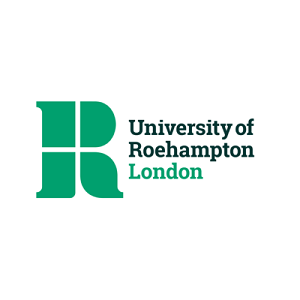
Noah Lawson (University of Roehampton)
Main supervisor: Prof Adam Ockelford; second supervisor: Prof Lorella Terzi
Research project: Points of Contact: Researching new resources and strategies for teaching and learning music notation in tactile form for blind children using the Sounds of Intent Framework of Musical Development
Research description: Blind children in the UK are currently unable to access music education in schools in the same way that their sighted peers do, due to a lack of resources, teaching and learning strategies, and expertise among teachers. In particular, there is currently no tactile equivalent for the way that music is represented in primary music curricula, using symbols and letters, and no developmentally-informed strategies for teaching the system of braille music that does exist for more advanced students. Working with The Amber Trust, the sole UK-wide charity that supports visually impaired children and young people in their pursuit of music, this project will explore this area for the first time, working with teachers, pupils and blind musicians to create new resources, test new strategies and evaluate the results. This research will inform the content and design of new materials that The Amber Trust will make freely available to blind pupils, students and their teachers, in order to improve the experience of blind children and young people studying music within and outside school.
The aim of the project is to improve the quality of music education in the UK (and beyond) for blind children and young people. It will do this by achieving the following objectives. First, researching how music and sound may most effectively be represented in tactile form at different stages in a child’s education (using the Sounds of Intent Framework of Musical Development). Second, by generating and testing resources and teaching strategies that are informed by the findings of this research. And third, following the research project, by disseminating the findings and materials to blind pupils and students and their teachers through The Amber Trust.
LinkedIn: noah-lawson-036bb819b
Instagram: @noahlawsonmusic
Facebook: NoahLawsonmusic

Emilia Melossi (University of Sussex)
Main supervisor: Prof Russell King; second supervisor: Ben Rogaly
Research project: Black Labour: African Migrant Networks and Agricultural Work in the South of Italy
Research description: My current Ph.D. research project is an analysis of the cultural and socio-economic impacts of undocumented labour migration from Africa to Europe. The aim of the research topic is to investigate and analyze the political and economic issues that the illegal entry and stay of migrants produces on European local economies and labour standards. The case study takes into consideration the labour migration flows from Sub-Saharan African countries to Europe with Italy as the first step in the migration project towards Northern European countries. The research topic focuses, more precisely, on seasonal Sub-Saharan African migrant labour in the agricultural sector in the South of Italy. The research project analyzes the “caporalato”, the migrant labour contracting system based on ethnic and kinship ties. The “caporalato” labour contracting system originated in the 1950s and spread throughout the Southern part of Italy among local Italian workers until it was fought back by trade unionist and slowly disappeared. Since the 1970s however there has been an increase in migrant flows from Sub-Saharan Africa toward Italy, changing Italy’s role in the migration patterns from solely a departure country to a destination country. The increase in Italy of low-skilled African migrant labour has coincided with the re-emergence of the phenomenon of the “caporalato”, which has taken resurfaced since the 1980s, with undocumented migrants as its main target labour force, and rendering the agricultural sector in the South of Italy completely reliant on the migrant labour contracting system. The function of the “caporalato” is to offer high numbers of temporary seasonal workers in a very short time, sometimes even just overnight. In fact, most of the migrant workers are contracted on a daily basis and will offer their labour in the early hours of the day. I will be conducting ethnographic field research in the province of Foggia in the “pista” shantytown in the outskirts of Borgo Mezzanone, in the Puglia Region, where there is a high density of migrant work force contracted in the agricultural sector. While undergoing field research I will be investigating the legal and economic system that allows for the exploitation of the migrants’ “illegal entry and stay” status in Italy and their reasons and willingness to leave Italy and its exploitative conditions and proceed “North” in order to better their lives. I will investigate the modes of action of systemic structural undocumented migrant exploitation in Italy and the reasons behind a South-North internal European migrant flow trajectory. In fact, throughout ethnographic participant observation and interviewing processes, I will address the rhetorical construction of migrant utopias and destination countries, such as England and in particular the London area. I believe that understanding the dynamics and limits of this system of structural illegality represents the first step in bringing about a change in the ways in which migrants enter Europe, are subsequently “allowed” to remain, and are forced to contend with myriads of constraints and impediments along the way. This type of research is fundamental for the management of migration throughout Europe.

Mimi McGann (University of Sussex)
Main supervisor: Fae Dussart; second supervisor: Ben Rogaly
Research project: 'A stick to beat the present'?: Sovereignty and folk custom in the post-Brexit English countryside
Research description: Ceremonial walking has a place in many cultures: within the practices of konti (literally ‘circular processioning’) by the indigenous community of Mexico, the Yoemem (Delgado Shorter, 2009: 279); within the Japanese Buddhist sect of monks, the Yambushi, who tread a circular route around their holy mountain home (Wittig Albert, 2009: 166); and, perhaps most famously, in the Aboriginal tradition of walkabout (Russell, 2010). These examples share an understanding of identity as not only being reliant on an intimate relationship with the landscape, but also of the importance of the body in maintaining and respecting certain geographical and sociopolitical boundaries. The embodied nature of the land-based customs in certain indigenous and East Asian cultures is something many geographers and anthropologists may be well aware of. However, they would perhaps be surprised to discover that a similar practice in fact exists in English tradition too: the custom of beating the bounds. Dating back to the late Anglo-Saxon period, the very purpose of beating the bounds is the declaration by its participants of geographical and sociopolitical sovereignty over the land being walked. Once a year, close to the Christian ‘Ascension Day’ in April or May, an entire parish community would ceremonially march around its own perimeter, marking notable boundary points, often beating them with sticks or even individual marchers’ bodies. An ancient medium of mapping, or as it is often termed here, marking, perambulating or processioning, the custom had several practical uses: warding off encroachment of boundaries by neighbouring communities or estates; ensuring all citizens born within the boundary paid their tithes to the correct church and so would be buried in the correct churchyard; passing down knowledge of boundary markers to the next generation in order that they might settle land-based disputes. Despite the traditional purposes being made somewhat obsolete by modern surveying and record-keeping, beating the bounds has enjoyed a resurgence of popularity during the 20th and 21st century not only in England, but also Wales, Germany and even parts of North America. It has, however, had a particularly marked resurgence in interest and participation across southern England during the last 30 years. It is this precise resurgence that this thesis is dedicated to exploring. This thesis claims that the revival of beating the bounds in southern England during this period demonstrates the emergence of a new kind of primarily space-based approach to national sovereignty amongst modern rural England’s native-born white population. Furthermore, it proposes that this intrinsically landed perception of political independence within the southern English community during this period, of which beating the bounds is perhaps the most literal possible expression, became one of the most significant driving forces behind the Leave victory at the 2016 European Union Referendum and, eventually, Britain’s exit from the EU entirely in 2021.

Saskia Papadakis (Royal Holloway, University of London)
Main supervisor: Prof Phil Crang; second supervisor: Prof Ben Rogaly
Research project: Northerners in London: Englishness, place and mobility
Research description: My PhD is an oral history project with people from the North of England who live in London. I am interested in the contemporary North-South divide, and its entanglement with histories of empire and colonialism.

Alex Fusco (University of Sussex)
Main supervisor: Tahir Zaman; second supervisor: Michael Collyer
Research project: Migrant Lives on the Edge of Europe; from the Camp to the City
Research description: How do irregular migrants living in precarious conditions in Greece negotiate their everyday lives? Though broad in scope, this project aims to draw out refugees/undocumented migrants’ daily experiences and encounters, and how they interact, reclaim or contest the spaces they inhabit. The term ‘negotiate’ is intentional, acknowledging the agency of migrants and the various compromises that characterise their everyday lives. Lines of research that fall under this broad enquiry include an exploration of survival tactics employed by undocumented migrants, the idea of community formation, the concept of ‘home’, the notion of belonging, negotiation of ‘cultural differences’ and the maintenance, erasure or adaptation of norms, habits and traditions. A range of ethnographic methods, including participant observation, interviews and informal conversation will be employed to elicit the perspectives and experiences of undocumented migrants and evoke densely descriptive and textured interpretive representations of everyday life.

Alice Reynolds (Royal Holloway, University of London)
Main supervisor: Professor Katherine Brickell; second supervisor: Alex Dymock
Research project: The financialisation of student housing: A case study of Dublin, Ireland
Research description: Housing financialisation – the increased dominance of financial markets in the housing sector which treats housing as a commodity – is rapidly entering new market segments and urban territories. Student accommodation is no exception. Accelerated by substantial private equity and institutional capital, Purpose Built Student Accommodation (PBSA) has emerged as an international asset class and has become a more visible and politically contentious feature of university locations. In collaboration with the Dublin Housing Observatory (Dublin City Council), this research uses the case study of Dublin, Ireland, which has seen the construction of for-profit PBSA, and rent increases, skyrocket. Drawing upon ethnographic research, including key informant interviews, focus groups, and documentary analysis, this research contributes to and expands understandings of rental market financialisation and explores the impacts of financialisation on the wider housing market, access to education and the lived experiences of students. The outcomes of this research will have important implications for both housing and higher education policy.
Twitter: @alice1_reynolds

Rhys Gazeres de Baradieux (Royal Holloway, University of London)
Main supervisor: Dr. Oli Mould; second supervisor: Prof. Philip Crang
Research project: From the Street to the Stadium and Back Again: An Analysis of Skateboarding's Inclusion into the Tokyo 2020 Olympic Games
Research description: This project critically examines the inclusion of skateboarding into the now delayed Tokyo 2020 Summer Olympic Games. Specifically, it look at the effects of a subversive urban practice becoming further incorporated into the realm of institutionalised mega-sports, and the tensions this creates therein.
Twitter: @GazeresRhys
Instagram: @possiblyrhys

Isabel Cotton (University of East Anglia)
Main supervisor: Dr Johanna Forster; second supervisor: Dr Trevor Tolhurst / Dr Irene Lorenzoni
Research project: Building resilience in coastal governance: ethics and justice in responsible innovation
Research description: My PhD project is a joint SeNSS-ARIES collaborative studentship project on building resilience in coastal governance, based at the University of East Anglia. Coastal zones are some of the most vulnerable areas to impacts of climate change in the UK, and this project looks at the social and environmental implications of the Bacton and Walcott sandscaping scheme, which has recently been introduced on the North Norfolk Coast to manage the coastal environment. This is in collaboration with North Norfolk District Council. This PhD project will bring together natural science data, such as modelling of geomorphological change, to underpin understandings of social change and implications for environmental justice, which this studentship focuses on.
LinkedIn: linkedin.com/in/isabel-cotton-4a57b6a1
Other social media: https://orcid.org/0000-0002-3967-3937

Jasmine Joanes (Royal Holloway, University of London)
Main supervisor: Professor Katherine Brickell; second supervisor: Dr Sally Lloyd-Evans
Research project: Seeing Red: Alter-Geopolitics of Menstrual Management and Activism in the United Kingdom
Research description: Despite being part of the lives of half the global population, menstrual management has received little academic attention as a gender and social justice issue. In the context of third and fourth-wave feminism, my PhD project “Seeing Red” will examine menstrual activism as a form of alter-geopolitics, a type of feminist geopolitics done through action and forged outside of elite geopolitical circles and the container of the state (Koopman, 2011). I position menstrual activism as geopolitical because of its call for the security of sexual and reproductive health and human rights, its emphasis on freedom from gender discrimination and violence against menstruation, and its momentum as a feminist movement globally. My research aims to explore off and online spaces of menstrual activism in the United Kingdom through ethnographic research with menstrual activists and groups, who are working to address matters of period poverty and transgender discrimination. The collection and analysis of menstrual activism materials and imagery will form part of the qualitative methodology and this will be accompanied by semi-structured interviews with key actors instrumental to the rise of menstrual activism in the UK, such as founding members of movements and bestselling authors. My PhD will bridge the gap between menstrual activism and scholarship, as well as making important contributions to feminist political and social geography.
At postgraduate level, it will also make a disciplinary contribution to efforts addressing the chronic under-representation of BIPOC students and staff in British Geography (Desai, 2017).
Twitter: @jazz_joanes

Will Barnes (Royal Holloway, University of London)
Main supervisor: Dr. Oli Mould; second supervisor: Prof. Gillian Symon
Research project: Spatialities of homeworking and wellbeing: the case of the independent creative worker
Research description: The flexibility gifted by the rise of media technologies has seen the number of people working from home almost double over the last decade. Unaffiliated with an organisation and often characterised by precarious working conditions, independent workers are a growing segment of the workforce, and epitomise this trend towards individualised and lone work often conducted in people’s own homes. Wellbeing-related concerns regarding independent home-based work have been raised, with specific attention drawn to the potential problems facing creative workers, who constitute a large proportion of the labour behind the UK’s growing creative industry. This is because it has been argued that, flexible creative work, unbound by physical space and entangled with the non-economic lives of its practitioners, threatens to disrupt the sanctity of home life, with consequences for mental health. However, there is yet to be a rigorous investigation into the impact of this style and type of work on wellbeing. Responding to these trends and addressing this gap in research, this project will investigate the implications of this spatial conflation of the two spheres of work and home for the wellbeing of home-based independent creative workers. As well as contributing to the ESRC’s priority to research the changing nature and location of employment, the project will add to various bodies of academic literature, both across Human Geography and the interdisciplinary field of work and employment research. The Association of Independent Professionals and the Self-Employed (IPSE), and StoryFutures, an enterprise supporting the creative ‘Gateway Cluster’ to the west of London, are collaborative partners on this project. These partnerships are in place to help connect the project to potential participants, interested industry and policy institutions, and relevant bodies of work, research and campaigning.
Twitter: @WillBarnesx
LinkedIn: linkedin.com/in/will-b-12121987

Adele Wylie (University of Reading)
Main supervisor:Dr Richard Nunes; second supervisor: Prof Mike Goodman
Research project: Placing women’s food work in a global pandemic: a critical comparative case study of Bristol and Stockholm
Research description: This proposed PhD studentship analyses the impacts of Covid-19 on women’s material and imagined future foodscapes in the cities of Bristol, UK and Stockholm, Sweden. Preliminary research suggests that, in the UK specifically, urban foodscapes—i.e. the places and spaces we access, make and discuss food in the urban landscape—have been and continue to be significantly impacted by the pandemic. Women, as unpaid, domestic food carers and volunteer, ‘community food carers’ at foodbanks—as well as paid food workers in the formal economy—have been disproportionally affected by the pandemic given the increasing complexities of accessing food at home, the expanding burden of food preparation during lockdown and the loss of income from the loss of food service employment that relies heavily on female labour. Yet, women of more marginal standing—e.g. women of colour, low-income, single parents, migrant status, asylum seekers—have been most detrimentally impacted by the pandemic through an exacerbation of pre-existing, intersectional social inequalities that women faced pre-Covid. Drawing on feminist geography, feminist political economy and critical food geography, this proposed research will examine how the Covid-19 pandemic impacted and reshaped the foodscapes for paid and non-paid women food workers in Bristol and Stockholm through a critical comparative analysis of the two cities.

Cynthia Anyadi (Royal Holloway, University of London)
Main supervisor:Prof Veronica Della Dora; second supervisor: Prof David Gilbert
Research project: Mapping death, migration, and material culture: A case study of Igbo Nigerians
Research description: This project focuses on the material cultures of memorialising among Igbo Nigerians, exploring the emergence of the 'fetish object' within death practices. My research will consider how, through border crossing, objects come to memorialise not only people (the deceased) but also place (the homeland). These objects act as souvenirs, often mass-produced and cheaply made, and they remain in the home for decades. This project will attempt to understand their movement across borders, as well as how they enter homes within diaspora communities as ‘material supports’ (Della Dora, 2009) to create interconnected, transnational deathscapes which extend beyond the deceased’s burial ground in Nigeria. My PhD contributes to an emerging field of cultural geography which has thus far rarely looked beyond Global North contexts, identifying how emotional and spiritual meanings are embodied, imbued in, and interpreted through objects within cultural systems that have largely been excluded. I am particularly interested in taking a more inclusive research methodology with this PhD, by centering accessibility in both the research process and its outcomes.

Grania Power (University of East Anglia)
Main supervisor: Rachel Carmenta; second supervisor: Matthew Jones
Research project: Following the light: using 'brightspots' to avoid future Amazonian fires
Research description: With the support of the SeNSS-ARIES Doctoral Training Programme, the project Following the light: using ˜brightspots to prevent future Amazonian fires takes a multidisciplinary approach across geography, development studies, environmental science, and anthropology. Combining GIS surveying and ethnographic research methods, it will map, and later zoom-in to take a closer look on the ground, at areas within the Brazilian Amazon rainforest which that have fared better than our current models could have anticipated during wildfire events. The project will seek to identify ecological and eco-social-cultural factors that can explain the relative resilience and success of these 'brightspots' during wildfire events, applying the 'brightspot' concept, which was developed by Joshua Cinner et. al in 2016 for modeling coral reef resilience, to the Amazon rainforest for the first time.
Twitter: @GraniaPower
LinkedIn: grania-power-9462b2bb

Jane Bennett (University of Reading)
Main supervisor: Dr Carolina Vasilikou; second supervisor: Dr Dragana Nikolic
Research project: How can autistic women's complex embodied experience of the built environment be codified through a perceptual model of wayfinding?
Research description: According to Autistica, the UKs leading autism focussed charity and my research collaborator for this PhD, 8 in 10 autistic people have issues experiencing the sensory world and 9 in 10 feel they experience it differently (Cusack, 2016). By 2030 Autistica aim to make public spaces more accessible to autistic people (Autistica.org, 2021). Autism can cause sensory processing of the external environment to be heightened, resulting in experiences that can have negative impacts on the individual. This has been described as making individuals feel profoundly vulnerable, with their daily life intruded upon by unpleasant sensory stimuli (Belek, 2018). By engaging with autistic women, I am acknowledging and validating the complex, nuanced, and individual (Cachia, 2012) experiences of this minority group, as well as engaging with disability theory in the context of feminist psycho-geography. Siebers (2013) argues that the embodied experiences of disabled people are more complex than the ideology of ability allows. This is illustrated by both a lack of research a autistic women and by their public, or nondomestic experiences (Franck, Paxson, 1989). Therefore, the neurodiverse embodied experience of public spaces for autistic women is vital to address and I will do this through the development of the multisensory perceptual model of wayfinding and codification of data.
My presumption is that urban landscapes may negatively impact autistic women's mental health, leaving them vulnerable to isolation and exclusion. In response, my research asks, how can autistic women's complex embodied experience of the built environment be codified through a perceptual model of wayfinding? This will directly address systemic injustices linked to feminism, 'ableism' and architecture and intricately links to theories on emergent geographies of dis/ability (Hall, Wilton, 2016). My hybrid theoretical framework focuses on action research and phenomenology, exploring and evaluating physical and psychological experience in conjunction with the research demographic.
Action research reflects the ethos of Autistica with the research participant at the centre, empowering research participants to examine their own experiences (Kwan 2002). This contrasts with being examined through an ethnographic lens. If public space has multiple identities reflecting diverse human experience (Massey, 2005), the autistic female perception has been excluded in the discussion of the spatial turn™ and by proxy excluded from the theoretical framework of women moving in public space.
My hybrid methodology is divided into three key areas:
Initial quantitative data collection, through surveys and questionnaires.
Ethnographic walks. Physical data captured via wearable technologies and analysed in conjunction with modified emotional cartographies.
Semi-structured elicitation interviews utilise data captured from the ethnographic locomotion to explore the impact of the sensory ecology on the individual.
My perceptual model will provide novel data on the impact of these journeys of necessity on autistic women, thus, elucidating the autistic sensory experience. How as architects, designers and public planners might we co-construct as Massey (2005) states, with a minority group, to develop responsive and accommodating environments, empowering autistic women's wayfinding and therefore widening participation in the design of placemaking?
Twitter: @JaneEBennett
LinkedIn: Jane Elizabeth Bennett
Instagram: JaneEBennett

Kirsten Rowland (Royal Holloway, University of London)
Main supervisor: Sasha Engelmann; second supervisor: Phil Crang
Research project: Furthering diversity agendas in grassroots cultural production: a feminist geographical inquiry
Research description: This doctoral research project focusses on exploring practices of diversity and inclusivity within the context of feminist, grassroots cultural production. It is clear that there is currently considerable confusion over the parameters and conceptualisation of diversity agendas throughout society, despite increasing discussions in most sectors. Feminism has often been at the forefront of these debates (#MeToo, the gender pay gap, gender identity, etc.). Recent literature has also highlighted the importance of grassroots activism in furthering diversity agendas. This research spotlights the grassroots, feminist, punk organization LOUD WOMEN, a community formed to promote and celebrate diversity in the underground music scene. Through its founding principle and ongoing practice of inclusivity in all aspects of the community, LOUD WOMEN has expanded the most common manifestation of a diversity agenda, ‘diversity of participation’, into ‘diversity of being’. Drawing on my experiences of working with LOUD WOMEN and participating in the wider music scene, I propose two research strands for this project. First, I intend to conduct a feminist cooperative inquiry in partnership with LOUD WOMEN, culminating in the production of a zine detailing the history and import of the LOUD WOMEN community as told by its members. This will be complimented by ethnographic and interview-based research within the organization. Second, I will contextualize LOUD WOMEN through critical policy analysis and further interviews engaging with a variety of stakeholders in the UK music sector (Music Venue Trust, the Arts Council, Women in CTRL etc.). Through so doing this project will further understandings of diversity agendas in the context of cultural production, particularly in a feminist, grassroots setting. It will also engage with feminist actors, both in the context of diversity agendas and the methodology of feminist cooperative inquiry. By marrying feminist geographies with cooperative feminist methodology, this project will make a valuable contribution to literature concerning diversity agendas and feminist cultural production.
LinkedIn: Kirsten Rowland

Daniel Oswin Fryer (University of Reading)
Main supervisor: Douglas Saddy; second supervisor: Arpita Bose
Research project: Artificial grammar learning, language processing and language impairment
Research description: Human language is a complex phenomenon which comprises several distinct aspects, including semantics (meaning), phonology (sound system), pragmatics (context) and syntax. Syntax is the part of language that relates to its structure and the (formal) rules of how words are put together. For the majority of speakers, syntax is processed unconsciously and effortlessly, but there exist language impaired-populations whose linguistic deficits relate, in the main, to syntactic processing. Examples are children with developmental language disorder (DLD) and adults with aphasia (where language difficulties arise following stroke or brain injury). Much remains to be understood about how syntax is processed in the brain as well as how it is acquired in childhood development (i.e. how children learn the grammar of their language), how impairments in grammatical processing arise and how therapies might be developed to assist people with language impairments. It is difficult to study syntax in isolation using natural language in experiments since confounds arise from semantic and pragmatic elements of the language. For this reason, this study adopts the use of artificial grammars to study learning and processing of syntax. Artificial grammars are artificially constructed sets of rules which are used to construct sequences of symbols (which may be short sounds, syllables, coloured shapes or letters). Sequences generated by such grammars do not carry any meaning, and are therefore particularly useful for studying learning of rule-based structures such as those found in natural language. A further benefit in adopting artificial grammars in the proposed work is that, as has been found in numerous studies, learning of artificial grammars is typically implicit: participants unconsciously learn the rules or patterns associated with the grammar, in the sense that they can distinguish grammar-generated sequences from other sequences (not generated by the grammar) without being able, explicitly, so say why one sequence is acceptable and another is not. This appears to reflect the unconscious knowledge of the rules (the grammar) of language that humans possess and the unconscious way in which these are learned in childhood. The initial part of the proposed PhD project will investigate implicit learning of a particular grammar (known as an L-grammar) in healthy adults. Theoretical work has suggested that this grammar is particularly suited to the investigation of cognitive processes related to language and learning. The study will incorporate a brain imaging technique (electroencephalography, EEG) to identify the relationship between brain activity and the learning that is taking place during acquisition of the artificial grammar. The study will also investigate learning of the artificial grammar in language-impaired adults. It is hoped that this, by opening a window onto the brain processes underlying language, this will deepen our understanding of the learning and processing of syntax in both healthy and impaired brains and, it is hoped, provide insights which will be able to inform developments in therapy for language-impaired populations.
Debra Page (University of Reading)
Main supervisor: Professor Ludovica Serratrice; second supervisor: Associate Professor Naomi Flynn, Astrid Dineen (Hampshire Council)
Research project: The Young Interpreters Scheme: Linguistic features of peer-topeer input and educational experience of participation
Research description: The Young Interpreter Scheme (YIS) is an award-winning scheme created by Hampshire EMTAS - the Collaborative Partner in this proposal. The specific mission of the YIS is to facilitate the transition to school for children who are new to English, i.e. novice EAL (English as an Additional Language) learners. Young Interpreters (YI) are either children who have an additional language themselves, but who have advanced English language skills, or monolingual English-speaking children. Their role is to act as mentors to novice EAL learners in everyday school activities. Young Interpreters take part in a 4-part training programme where they are taught about their role and responsibilities, the cultural and linguistic needs of the novice EAL learners that they will be helping, and different methods to aid communication with their EAL peer. The training is delivered by a designated member of school staff using resources made available online by Hampshire EMTAS on Moodle. The scheme has now been adopted throughout the UK in more than 800 primary and secondary schools, but it has not yet been the subject of any systematic research investigation. The project has two aims; Aim 1: To address the impact of the YIS on related educational and linguistic levels (language use, empathy and intercultural awareness) through a variety of standardised and non-standardised assessments, both 1:1 with the researcher and audio-recordings of children working together for tasks designed specifically for this project. Young Interpreter children (~50) will be compared to a control group of non-YI children (~50) in the same school. Aim 2: This project will also collect survey information (via onlinesurveys.com) from teachers and other school staff about their experience of the YIS with a specific focus on
- the drivers for schools’ participation in the scheme
- the ways in which participation has affected the schools’ attitude and approach to home language maintenance
- the perceived effect on children’s social well-being This aim will also include focus groups with select respondents from the questionnaire.
Twitter: @debrakpage
LinkedIn: https://www.linkedin.com/in/debra-page-985611127/
Other social media: https://www.youtube.com/watch?v=srcn69ePZYc
Emily Wright (University of Reading)
Main supervisor: Prof. Ludovica Serratrice; second supervisor: Prof. Vesna Stojanovik
Research project: The Development of Language and Cognition in Deaf Children
Research description: My PhD thesis will explore the development of language and cognition in deaf children who use cochlear implants and two spoken languages, with English as an Additional Language (EAL). By crossing the bilingualism and the deafness dimensions in a 2×2 design we will assess the contribution of each to the children’s language and cognitive skills. We currently know that bilingualism may confer an advantage in cognitive skills and that deafness has a detrimental effect. An outstanding question is whether bilingualism may have a protective effect in the case of deaf children. An investigation into the advice given by UK professionals to parents on raising a deaf child to use two spoken languages will also be conducted.

Beth Tichborne (University of Reading)
Main supervisor: Arpita Bose; second supervisor: Fang Liu
Research project: The effects of linguistic variables on language processing in aphasia
Research description: Currently looking at the impact of phonological neighbourhood density on word-production across the lifespan and in people with aphasia.

Fate O'Gara (University of Essex)
Main supervisor: Dr. Kyle Jerro; second supervisor: Dr. Laurel Lawyer
Research project: What Happens in Words: On the Effects of Negation and Distributivity in Real-Time Event Representation.
Research description: This project focuses on developing our understanding of how we process event phenomena at a psycholinguistic level, drawing on insights from research into event segmentation in psychology, formal linguistic considerations in semantic theory, and mental representations in psycholinguistic research. The aim of this project is to develop a more complete picture of how events are conceptualised, differentiated, and constructed into mental representations in real-time narrative comprehension, with a specific focus on how language users determine how many events are occurring at any given point within a narrative. Three sets of experiments will be conducted to test the effects of negation (whether an event occurred or not) and distributivity (whether an event is considered a single event or a collection of two or more events), as well as their interaction, in order to achieve this aim. Empirical insights from these studies will be used to augment theories of how our cognitive machinery translates linguistic meaning into abstract thought, and establish the groundwork for a larger research project into how the symbolic representations of events encoded within language interact with sensorimotor representations and embodied experiences being explored in cutting-edge psychological research today. Upon these results also rests the potential for better informed future research comparing typical and atypical populations, ideally leading to better diagnoses and treatments of disorders of language and cognition, such as aphasia and schizophrenia. Finally, being interdisciplinary in nature, the proposed project will bridge two often disparate sub-disciplines, semantics and psycholinguistics, promoting how insights from one can inform the other. Data will be collected via EEG, reaction time and reading time studies. (Changes have been made to the data collection process following the Covid-19 pandemic.)

Alex Sheehan (University of Reading)
Main supervisor:Prof Christos Pliatsikas; second supervisor: Prof Douglas Saddy
Research project: Examining bilingualism as a dynamic linguistic experience: insights from brain function
Research description: Whilst we know how the brain changes physically due to linguistic experience, we know little about how these changes impact brain function. Models such as the Dynamic Restructuring Model (DRM) provide predictions for regions and connections changing with experience. Some bilingual studies have used MRI to measure brain blood flow whilst at rest, showing how different regions are connected. These studies report that regions involved in language and attentional control are strengthened and more interactive in bilinguals, using a larger share of the brain than monolinguals. Other studies, measuring resting brain waves – another connectivity indicator – found stronger waves related to language and cognitive control in bilinguals. These effects vary in strength based on aspects of linguistic experience. Irregular results had been found using a simple ‘bilingual or monolingual’ grouping – language experience as a spectrum revealed more consistent effects on both brain structure and function. Variables such as language use, immersion, and proficiency modulate both physical and functional changes. A review of structural and functional evidence remarked that functional connections have been found where no direct physical connections can be observed. This disparity raises some intriguing questions: how does language experience impact physical changes in brain structure, and do these changes lead to subsequent changes in the functional connectivity of the brain? Do any functional changes measured lead to changes in brain efficiency, and if so, are the effects limited to language-based contexts? How does linguistic experience impact all of these changes? This project will examine these issues in three studies. Firstly, a structural vs. functional connection analysis using pre-existing MRI and language history data will establish whether physical changes predicted by the DRM lead to changes in functional connectivity. The second study will involve a comparative functional analysis of resting brain waves between bilinguals and monolinguals, with reference to linguistic experience. The third study will measure brain signals elicited by cognition. We expect an attentional control task to elicit specific waves, known as components. The strength of these can be used to determine the level of cognitive effort required to complete the task, and so indicate efficiency. Participants will also read sentences containing semantic errors, which will elicit different components. These tasks will allow us to ascertain whether changes in brain efficiency are language-specific, and how linguistic experience impacts this. To quantify linguistic experience, the Language and Social Background questionnaire will be used, and a ratio of language use will be provided by a technique known as language entropy. The goal of this project is to develop a model of functional brain changes related to linguistic experience. This would provide a theoretical framework which research areas such as the bilingual advantage, the cognitive reserve, and developmental neuroscience could utilise to inform predictions of cognitive outcomes for bilingual participants. The neuroimaging techniques utilising EEG equipment, such as measuring resting brain waves, used in the studies are also less reliant on context and interpretation, and so are more reproducible, as well as more accessible to those without access to costly MRI facilities.

Pavla Novakova (University of East Anglia)
Main supervisor:Dr Alberto Hijazo-Gascón; second supervisor: Prof Luna Filipović
Research project: Language contrasts and their effect on memory in the context of witness narratives: A cross-linguistic study of English, German and Czech motion events
Research description: The aim of this research is to uncover how language contrasts affect information content of witness narratives and what the cross-linguistic differences are between English, German and Czech. The focus is on three aspects of motion events – complexity, placement and intentionality. We want to determine what information speakers habitually provide and if their descriptions influence their memory when recalling certain aspects of the witnessed events. In witness narratives, information on movement of people and objects, their position as well as the intention is crucial for assignment of blame. The knowledge of these previously unexplored language contrasts will aid in the efficient elicitation of information from witnesses and allow for effective prompting for information. Raising awareness of these differences and their impact within the legal context will improve access to justice for speakers of minority languages within majority language systems (such as Czech speakers within the EU). I will conduct three experiments with three groups of 50 monolingual native speakers (English, German and Czech). These experiments will examine the lexicalisation of complex motion events, final object position (vertical or horizontal) and the expression of intentionality. The experiments will also include a test of the participants’ memory when recalling the relevant aspects of the events. The participants will be played several short videos and asked to provide a brief verbal description. They will be asked to recall details of the events by answering neutral questions and ticking statements. This will be transcribed and analysed to gain understanding of the used lexicalisation patterns, the contrast between the three languages as well as the potential effect on memory. This research could potentially lead to positive changes in professional practice of police officers and legal interpreters. Their knowledge of the contrasts and the strategies to overcome them would aid efficient elicitation and mediation of information in police and court settings. It would ensure greater fairness in the interview process and treatment of witnesses and victims in monolingual and multilingual legal communicative situations.

Jiayin Li (University of Reading)
Main supervisor: Dr Fang Liu; second supervisor: Dr Ian Cunnings
Research project: Speech-in-noise Perception in Autism Spectrum Disorder: Electrophysiological and Behavioural Evidence
Research description: In daily life, our conversation is often overlapped by multiple speakers and/or environmental sounds. These distracting noises make it effortful for listeners to recognise the target speech. This “cocktail party problem” has fascinated researchers for decades, and yet remains unsolved. Given autistic individuals’ atypical profiles in auditory, music, and language processing and their difficulties with speech-in-noise perception, this project will investigate how bottom-up acoustic-phonetic factors and top-down linguistic-cognitive factors impact speech perception in different types of noises (speech, non-speech, and music) in autism using both behavioural and EEG methods. The findings will reveal whether and to what extent bottom-up and/or top-down processes influence speech-in-noise perception in autism and in typical development, contributing to the theoretical and practical understanding of the “cocktail party problem”.
Twitter: @jiayin18127869
LinkedIn: Jiayin Li

Mirjana Jeremic (University of Reading)
Main supervisor: Dr Emma Pagnamenta; second supervisor: Prof Vesna Stojanovic
Research project: Shared Book Reading Intervention with young children with Down Syndrome: working with parents to enhance parent-child interaction and child language and communication outcomes
Research description: Down Syndrome is the most common genetic cause of learning disability (Chapman and Hesketh 2000) affecting approximately 1 in 700 live births (Martin et al. 2009). One of the biggest challenges for individuals with Down Syndrome is language (Abbeduto et al. 2007), a well-known predictor of psychosocial and academic outcomes (Snowling et al. 2011). It is therefore crucial, that children with Down Syndrome are supported from an early age to develop their language skills, to optimise communication and academic and well-being outcomes. There are few evidence-based intervention available for children with Down Syndrome that target language development at early age (Seager et al. 2021; Toole et al. 2018).
Shared book reading interventions build upon a natural sociocultural activity by using book-sharing strategies, prompts and questioning. They improve language and pre-literacy outcomes for typically developing and ‘at-risk’ children (Aram et al. 2013, Dowdall et al. 2020, Huebner & Payne 2010, Law et al. 2018, Vally et al. 2016). Shared book reading is regarded as an intervention that can be easily implemented (Quinn et al. 2019). To date, few UK studies have been conducted and little is known about the effectiveness of shared book reading for children with learning disabilities, including children with Down Syndrome (Law et al. 2018, Towson et al. 2017).
Aim: Together with parents, we aim to co-create and test a shared book reading intervention specifically tailored to the unique profile that children with Down Syndrome share that supports their development of language and communication.
Who can take part: two-to-four-year-old children with Down Syndrome and their families.
Study 1: Examining shared book reading with parents and children with Down Syndrome Children with Down Syndrome will be observed in a shared book reading activity with their parents. These interactions will be compared with children without Down Syndrome, matched for chronological age and language ability to examine the unique ways parents and children with Down Syndrome communicate and interact during shared book reading.
Study 2: Co-creating the intervention Parents will help co-create a shared book reading intervention for two-to-four-year old children with Down Syndrome and an intervention manual will be developed.
Study 3: Testing the intervention In the final study, after six weeks baseline observation period, a 12-week training of the parent-led programme will be implemented. Families who have not participated in the previous studies will test out the intervention created in Study 2.
Collaborators: This project is conducted in collaboration with Down Syndrome Education International, a large charity supporting families around the world to improve early intervention and education for children with Down syndrome. Collaborators include Dr Emma Pagnamenta and Professor Vesna Stojanovik (School of Psychology and Clinical Language Sciences, University of Reading), Dr Kelly Burgoyne (University of Manchester) and Professor Sue Buckley (Down Syndrome Education International).
Contact: Mirjana Jeremic (m.jeremic@pgr.reading.ac.uk), or Dr Emma Pagnamenta (e.pagnamenta@reading.ac.uk)

Gozde Hussain (Royal Holloway, University of London)
Main supervisor: Dr Jonathan Seglow; second supervisor: Dr Michael Bacon
Research project: Are Islamic doctrines compatible with Political Liberalism?
Research description: The rapidly growing Muslim presence in Europe makes more urgent the longstanding conflict between Islamic and Western understandings of the political world. Islamic scholarship advocates a political order grounded in faith, which is in tension with liberal democratic ideas that reject the legitimacy of political systems established on the basis of religious principles. This research seeks to address the question of the compatibility of Islam with liberal values by conducting a comparative analysis of the moral language of Islamic faith and the liberal democratic ideas articulated in John Rawls’s theoretical framework. As the pre-eminent liberal political philosopher, John Rawls, articulates a fundamental set of liberal ideas and optimistically assumes that the moral and religious doctrines of a pluralist society would not conflict with the principles underlying a liberal democratic political culture. This project assumes that a liberal democratic society requires the support of different doctrinal traditions in order to enjoy legitimacy and political stability. Furthermore, it criticises the scholars who seek a liberal/Islam reconciliation for underestimating the significance of political stability or over-estimating Islamic doctrines capacity for radical change. This project proposes to reinterpret Islamic scholastic theology (ilm al-kalam) and moral theology (usul al-fiqh) in a way of which is supportive of a fundamental set of liberal ideas, as well as re-assess key Rawlsian liberal ideas to avoid being needlessly demanding on the Islamic doctrinal tradition. The reconciliation of Islamic doctrinal tradition and fundamental political liberal ideas could assure that Muslims would not withdraw their support to liberal societies as the presence of Islamic faith becomes more prominent, thus, the political stability can be sustained. This original reconciliation of Islam and Rawlsian Liberalism will enrich both the Islamic and liberal intellectual traditions, deepen their understanding of each other and engender respect for the doctrinal pluralism that characterizes liberal democratic societies.

Laura Jung (University of Sussex)
Main supervisor: Cynthia Weber; second supervisor: Synne Dyvik
Research project: Sovereignty and Psychiatry: Analyzing German State Sovereignty through the Treatment of Trauma, 1870-1970
Research description: My doctoral research is located at the intersection of queer/feminist international and political theory, critical disability studies, history, and sociology, and investigates imbrications of psychiatry, subjectivity, and sovereignty. Tracing the history of the trauma diagnosis in modern German states from 1870 to the present, I investigate how different diagnostic and treatment approaches functioned to cohere the nation by constructing certain groups of subjects as threats and exposing them to violent forms of treatment, heightened precarity, and death. Based on queer and poststructuralist theories of sovereignty and accounts of psychiatric power informed by scholarship from critical disability studies and global politics of medicine, I develop the concept of ‘psychiatric statecraft’ to illuminate processes in which psychiatric expertise, management and intervention crafts ‘the people’.
Twitter: @LauraJung
Laura Saavedra-Lux (University of Essex)
Main supervisor: Kristian Skrede Gleditsch; second supervisor: Florian Kern
Research project: Understanding Trajectories of Violence and Peace in Post-Conflict Societies
Research description: More than 60% of all armed conflicts recorded by the Uppsala Conflict Data Program reignite after they initially terminate. Yet, there are various cases in which armed conflict halted, but other types of violence persisted or ensued. In this project I aim to explain how socio-economic inequality shapes different trajectories of violence and peace in post-conflict countries. I mainly argue that changes in inequality rather than absolute levels of inequality can help us understand what type of peace we will observe in a post-conflict country. I employ both quantitative and qualitative methods to test different hypotheses derived from the main argument. I find that overall decreasing levels of inequality in contrast to pre-conflict levels can reduce the risk of conflict recurrence. Yet, these changes are not necessarily sufficient to guarantee peace beyond the absence of armed conflict. Looking at the case of Peru, I disaggregate the rationale behind when and where we see violence and who employs it (e.g., the state, citizens, rebel group). Using data collected during field work and an original dataset on inequality and contentious politics, I explore the effect of socio-economic development on different levels of consolidation of peace across time and space and ask under which conditions - if at all - socio-economic inclusion is a sufficient condition for peace.
Twitter: @SaavedraLux

Morvan Lallouet (University of Kent)
Main supervisor: Professor Richard Sakwa; second supervisor: Dr Edward Morgan-Jones
Research project: Aleksey Navalny, A Liberal in Contemporary Russia: Ideology, Parties, Elections
Research description: This project seeks to explain the political trajectory of Alexey Navalny, who has become the most well-known and influential leader of the Russian liberal opposition. The thesis will explore three dimensions of this trajectory: ideology, electoral mobilisation, party building.

Rebecca Dobson (University of Sussex)
Main supervisor: Prof Dan Hough; second supervisor: Liz David-Barrett
Research project: An analysis of policy intractability: Can institutional corruption shed light on the climate change mitigation challenge?
Research description: As 2016 claims the title of the hottest year on record, this study asks why the challenge of counteracting climate change has proven so intractable. In particular, given scientific assessments of the devastating consequences of the planet’s changing climate, it seeks to understand how discrepancies arise between governments’ stated intentions to tackle climate change and their actual performance. With a focus on the UK – which with the 2008 Climate Change Act styled itself as “an example to the world of what ambitious climate action looks like” (Hansard 14 Dec. 2015) – this study assesses whether government policy to reduce greenhouse gas emissions (and meet carbon budgets) lives up to its aspirations, and where discrepancies can be found what their causes might be. Is climate change mitigation simply the quintessential “wicked” policy problem, difficult to resolve and so understandably slow to develop and deploy? Can discrepancies be explained by political compromise, unintended consequences, government incompetence or inefficiencies? Or is it possible to identify another more disturbing root to its insolvability: one best explained by corruption and more specifically institutional corruption (IC)?

Thomas Shipley (University of Sussex)
Main supervisor: Professor Dan Hough; second supervisor: Professor Liz David-Barrett
Research project: Evaluations of anti-corruption programmes
Research description: My research is examining the methods used by international development agencies for evaluating anti-corruption programmes and how these might incorporate theoretical advances in our understanding of corruption.

Alex Ntung (University of Kent)
Main supervisor: Dr Nadine Ansorg; second supervisor: Dr Harmony Toros
Research project: Religious beliefs, modern politics and conflict resolution in the Democratic Republic of Congo (DRC)
Research description: My project questions whether international efforts to build peace in the Democratic Republic of Congo (DRC) omit the dimensions of traditional religious beliefs and how far do such omissions undermine the efficacy of these peace-building efforts. My research project seeks to investigate the interplay between religious beliefs (the African Traditional Religions (ATRs), ‘modern Africanised forms of Christianity’ and other supernatural beliefs) and modern politics in the DRC, looking at their significance, influence and place in the modern peace processes. The project will seek to better understand the role that these religious beliefs play in modern political processes and peacebuilding.

David Abbott (University of East Anglia)
Main supervisor: Professor Alan Finlayson; second supervisor: Dr J. Turnpenny
Research project: Quality, Economic Reason and State Classification: A Rhetorical Political Analysis.
Research description: This research project is concerned with an examination of the politics of 'quality' in secondary and further education in England. Quality first came to prominence in public policy in the UK in the late 1980s In general terms the concept led to a focus on the idea that quasi-market mechanisms provided a more efficient and more equitable means of governing the public sector and saw a proliferation of business and market rhetoric in political discourse. The use of the concept has been particularly notable in the field of state education. Quality seems to have become thoroughly naturalised and institutionalised. These developments prompt the following research questions:
- What are the social, political, cultural and ideological provenances of quality.?
- How have political actors defined and used the term 'quality'?
- Why did political actors adopt the concept of quality for use in state education policies?
- To what extent does quality represent particular collective interests and how is the relationship between collective interests and state structures best explained?
LinkedIn: https://www.linkedin.com/in/david-c-abbott-3a404318a/

Luke Coughlan (Royal Holloway, University of London)
Main supervisor: Kaat Smets; second supervisor: Sofia Collignon
Research project: Political Influencers? The Effect of Elites and Opinion Leaders on Online Polarisation
Research description: Political discussions on social media are beset by partisan conflict. This often seen as a consequence of social media users selecting into echo chambers. However, this hypothesis is contradicted by majority user behaviour which is less partisan than often assumed. In contrast to audience-driven explanations of online polarisation, this study explores the effects of elite discourse on partisan opinion. It hypothesises that partisan leaders (both political elites and online influencers) who express “outrage” towards political opponents increase ideological and affective polarisation amongst partisan audiences. Following work on Social Identity Theory, it predicts “partisan outrage” - anger towards perceived moral transgressions by political opponents - motivates feelings of partisan identity, making partisans more susceptible to elite influence.

Andrew Dickson (University of Sussex)
Main supervisor: Dr Fabio Petito; second supervisor: Dr Nadya Ali
Research project: Understanding engagement with religious actors under the Channel Programme from 2005-2015.
Research description: Despite the wealth of critique of Prevent, there exists scant analysis of its flagship de-radicalisation programme – Channel – its most potent source of political and philosophical tension. Channel sees the state organise one-on-one interventions to alter British citizens’ behaviour and politico-religious beliefs. Pilot Channel projects, based on crime prevention initiatives, diverted individuals away from violent criminal behaviour. Yet since the 2011 Prevent Strategy, Channel has moved towards encouraging ideological change; not only targeting support for terrorism, but views considered part of ‘extremist’ ideology. This shift created two major issues. First, Channel focused mostly on Islamist extremism and thus religious attitudes, namely conservative or Islamist beliefs. Secondly, Channel has moved from engaging religious actors based on counter-radicalisation experience to restricting partnership to those who embrace liberal democratic values, despite concerns about their credibility in countering extremism. In each case, the state makes contentious religious judgements: namely, what religious interpretations and beliefs are acceptable. This is problematic for a secular, liberal conception of the British state, which despite the presence of an established church is purportedly neutral regarding religion. Yet through Channel the state increasingly endorses select religious denominations and alters the composition of religious communities, with troubling corollaries for the UK’s legal frameworks on religion and belief. This creates a dilemma for religious actors: do they support Channel for security’s sake, or preserve their religious independence? To address these issues, this research will address the following research question: How was engagement with religious actors understood and justified under the Channel Programme, from 2005-2015: what philosophical and legal principles was this policy practice based on, and how did religious actors rationalise their involvement theologically? This research will consist of two strands. The first is a historical account of the evolution in Channel’s engagement with religious actors; identifying drivers of change, how religious actors justified their role, and how state actors understood this engagement and the principles it rested upon. The second strand analyses the theoretical issues raised by this account: reconciling the state’s role with the UK’s state-religion arrangement and other secular and postsecular frameworks; and discussing implications of religious actors’ role in Channel for public reason and identities, contrasting Islamic perspectives on political authority, and critique from political theology. Both strands will use qualitative methods: the historical account will be based on interviews with key Channel stakeholders in civil society, policymaking, and police, supplemented by document analysis of primary and secondary sources; the theoretical strand will draw on this data and relevant theoretical literature in evaluating Channels’ religious engagement within legal, theological, and political-philosophical frameworks.

Blair Welsh (University of Essex)
Main supervisor: Prof Kristian Gleditsch; second supervisor: Dr Brian J Phillips
Research project: Investigating the Effect of Territorial Control on the Micro-Dynamics of Domestic Terrorism
Research description: What is the role of territorial control in the dynamics and patterns of domestic terrorist violence? The literature on political violence attempts to explain the location, intensity, and drivers of violence at the sub-national level (e.g. Autesserre 2010; Cederman et al. 2015; Hammond 2018). The control of subnational space, and contestation over control, is one of the key explanatory variables identified in the literature (e.g. Kalyvas 2006; Toft 2003). The examination of such control, however, has focused almost exclusively on the behaviours of organised rebel and ethno-national movements, as opposed to terrorist organisations (e.g. Fjelde and Nilsson 2012). The significance of this failure is marked by the intensification of domestic terrorism in recent years (Dowd and Raleigh 2013). High-profile attacks on civilians, including mass killings, by terrorist organisations speak to a recent and dramatic shift in group tactics. Organisations such as Boko Haram and Daesh have evolved into progressively ambitious regional networks—controlling large swaths of land across the Middle East and Africa—and stand as the most potent opposition force to many in the international community (Zimmerman 2015). An examination of the effects of territorial control on the micro-dynamics of domestic terrorism, thus, can be used as an instrument to improve the theoretical, practical, and methodological understanding of recent shifts in organisational behaviours of terrorist groups. In this project, I address the question of how terrorist organisations’ control of domestic territory affects the dynamics and patterns of terrorist violence. I take as a case study the example of terrorist organisations across the African continent and seek to understand how their degree of territorial control affects the levels, purpose, and patterns of violence within the domestic conflict environment. Overall, I seek to extend current research and inform policy-makers on recent shifts in the behaviours of terrorist organisations to inspire counterterrorism reform across the international community.

Tom Barton (Royal Holloway, University of London)
Main supervisor: Professor Oliver Heath; second supervisor: Professor Chris Hanretty
Research project: The Impact of Voter ID Laws on Turnout and Perceptions of Democratic Integrity
Research description: This research seeks to develop our understanding of how voter identification laws affect voter turnout and people’s attitudes towards electoral integrity both at the aggregate and individual level. Much of what we currently know about this topic comes from literature on the USA. Furthermore, the literature lacks a consensus on the effect that laws have. This research will expand the narrow literature and address the debate within it. I will build on this work by analysing a wide number of democratic countries, with repeated observations over time at both the country and individual level. This research will contain three core themes:
- The relationship between current laws and turnout
- The effect that a change in law has on turnout and attitudes
- How people’s attitudes are shaped by laws over-time These will help to guide and focus a series of inter-related research questions, which will use a mixed methods approach since large-N and case studies will be combined thus creating a nested design. The research will address three main questions:
- What impact do voter identification laws have on turnout and political engagement? Is it always negative? How does this effect vary across different groups of voters, for example ethnic minorities and young people? How does this effect vary depending on the type of law implemented?
- How does the impact of new voter identification laws on turnout vary over time? Do new laws have a short-term or a long-term impact on turnout? How does this depend on how strict laws are?
- What are the motivations for the introduction of these laws? Is it merely fraud prevention or is it used by actors to consolidate their power by shaping the electorate?
Twitter: @_TomBarton

Adela Ryle (University of Sussex)
Main supervisor: Prof Jane K Cowan; second supervisor: Dr Nadya Ali
Research project: From private to public violence. Exploring the link between ‘intimate’ terrorism and mass public violence
Research description: Feminist scholars have long posited that the existence of a public/private divide functions to depoliticise male violence against women and place it beyond the realm of state intervention. The fact that public and private violence are conceptualised so differently also functions to obscure the relationship that may exist between them. However, persuasive anecdotal evidence suggests that the perpetration of domestic abuse and public terror attacks may in fact be linked: Out of seven 2017 attackers, for instance, four were known to have experienced or perpetrated domestic abuse; A brief survey of other attacks – including Nice, the Boston Marathon, Pulse Nightclub, Lindt Café and Charlie Hebdo – indicates a pattern. Despite this evidence, no systematic research exists to investigate a potential link between such acts of mass public violence and domestic abuse. Instead, much analysis rests on the heavily racialised ‘terrorism’ paradigm, which obscures similarities between ‘terroristic’ behaviours and myriad other forms of violence that are commonplace within patriarchal structures. In obscuring these similarities, such analysis cannot account for how ‘public’ and ‘private’ violence intersect. Drawing on the approach of narrative criminologists such as Lois Presser, Shadd Maruna and Sveinung Sandberg, this research will address that gap in analysis. Using in-depth case studies and subject-led interviews, it will investigate what the relationship between ‘private’ and ‘public’ violence might be from the perspective of those who perpetrate both by exploring the violent histories of so-called ‘Islamist’ offenders, far-right offenders and those who have committed gang violence. In doing so, it will seek to understand the worldviews behind these perpetrators’ criminogenic decisions and their own understanding of the escalation of their violence into the public sphere. By better understanding perpetrators’ perspectives, we can potentially learn crucial lessons in how to prevent further violence, with significant implications for questions of national security and for the urgency of concerted action to address domestic abuse.
Twitter: @Adela_Ryle
LinkedIn: Adela Ryle
Facebook: Adela Ryle
Instagram: @adelacarla

Charles Lawrie (University of Sussex)
Main supervisor:Prof Peter Newell; second supervisor: Dr Lucy Baker
Research project: Following the fuel: energy assemblages in Lebanon
Research description: My doctoral research examines the role of fuel in the Lebanese economy using a combination of historical, political economy and ethnographic approaches.

Joelle Tasker (University of Essex)
Main supervisor:Prof Royce Carroll; second supervisor:
Research project: Investigating Individual-Level Conflict Between Ideology and Issue Positions in the UK
Research description: When individuals describe their own ideology, how well does this accurately reflect policy preferences? Are individuals that see inconsistencies in their own ideology inclined to shift their ideological identity or policy preferences to reconcile these contradictions? Evidence from studies of the US suggests that much of the population holds ideological identities that do not align with their policy preferences (Ellis and Stimson, 2012; Claasen, Tucker and Smith, 2015). Additionally, the choice of ideology measurement has been shown to affect the conclusions which are drawn (Carroll and Kubo, 2018), and if seemingly similar and widely used measures of ideology are representing different concepts, the differences have implications for a range of questions from political psychology to policy representation. In this project, I aim to assess the causes and consequences of conflict between self-assessed ideology and issue positions. I will first assess the individual characteristics and issue areas driving the observed conflicts between ideological identities and policy preferences. I then expand on existing research on the causes of ideological inconsistency by examining the role of elite influences. Finally, I will investigate how individuals reconcile conflicting ideological identities and policy preferences. These questions will be answered through quantitative analyses of the British Election Study as well as a survey experiment using original data. The study will focus on data from the UK, where contradictions between party, policy, and ideological identities are growing in importance, yet has implications for a broad set of political contexts. It engages with the longstanding US-based literature on ideological coherence (Campbell, Converse, Miller and Stokes, 1960; Converse, 1964; Page and Shapiro, 1992) and expands upon the comparative literature on ideological self-placement (Inglehart and Klingemann, 1976; Knutsen, 1991; de Vries, Hakhverdian and Lancee, 2013; Caughey, O’Grady and Warshaw, 2019).

Sabrina Ahmed (University of East Anglia)
Main supervisor:Prof Lee Jarvis; second supervisor: Prof Laura Camfield
Research project: Title: Understanding counter-terrorism policies in global south: a case study of Rohingya refugees in Bangladesh
Research description: Although primarily developed in the West, grounded upon Western principles and adjusted to Western contexts, counter-terrorism (CT) and anti-radicalisation policies are increasingly translated and applied in the Global South, with little consideration of the social, economic, legal, and political implications upon their targeted communities. This project explores this transfer and its implications for the lives of vulnerable individuals and communities through a descriptively rich case study of counter-terrorism measures in the Rohnigya refugee camps in Bangladesh: Kutupalong camp (world’s largest refugee camp) and the camps in Teknaf. Rohingya camps in Bangladesh are frequently termed a “breeding ground for terrorism” or a “threat to national security” by policymakers, security officials, and Bangladesh mainstream media (Rashid, 2019). Yet, such narratives are often deployed without justification and in the absence of scientific research on terrorism, radicalisation or violent extremism (VE) in the camps. My research will centre the lives and experiences of Rohingya people within the Bangladesh camps, many of whom lack refugee status and associated protections, to understand the social and political implications of their securitisation through counter-terrorism and counter violent extremism (CVE) measures. It asks two questions: (i) How are CT and CVE measures implemented in the Rohingya refugee camps? (ii) How do individuals and communities living in the camps perceive and experience these measures and their implementation? My research will employ a ‘vernacular’ approach, deploying discourse analysis, ethnographic observation and interviews to explore the everyday understandings and experiences of refugees, staff and others living in the camp. Access to these is made possible via three years of professional experience: one year working in the camps within the Protection monitoring staff, and two years as a preventing violent extremism (PVE) researcher at the UK diplomatic mission in Bangladesh. The research will contribute to contemporary work within critical security and critical terrorism studies (CTS) (i) empirically – through primary research into an underexplored case study; (ii) analytically –through centering the experiences of non-Western subjects of counter-terrorism policy; and (iii) theoretically – through retheorising counter-terrorism policy and its implications following completion of my empirical research.

Samira Diebire (University of Essex)
Main supervisor:Professor Han Dorussen; second supervisor: Dr Florian Kern
Research project: Understanding violence in the aftermath of a popular revolution: Evidence from Burkina Faso
Research description: Popular uprisings and revolutions are explosive, violent events in the wake of which governments fall and societies restructure. While uprisings are often portrayed as the main violent event (Huntington, 1968), afterwards, politics are restructured, and we often observe new types of violence and opposing factions. Burkina Faso witnessed a popular revolution in 2014, which led to its former president’s ousting and renewed hope for a more democratic state (Frere and Englebert, 2015). However, the revolution has led to greater instability and an increase in violent actors and events. Social scientists have yet to understand the motivations and explanations for why new violence emerges and changes even if popular movements succeed. My project aims to address this gap, leveraging evidence from the recent revolution in Burkina Faso to understand how and why violence develops after popular uprisings. My aim is to provide actionable evidence that helps policymakers and stakeholders predict where violence emerges when uprisings occur. By using both advanced quantitative methods (population survey data), qualitative interviews and extensive fieldwork in Burkina Faso, I ask: How does violence develop and restructure after a popular revolution? My findings promise to inform policy debates about how the forces of a popular revolution structure post-revolutionary politics and violence, and how domestic and international organisations can manage such increases in violence.

Fadhilah Primandari (University of Essex)
Main supervisor: Professor Moya Lloyd; second supervisor: Dr Sarah Shair-Rosenfield
Research project: Consolidating Democracy or Men's Rule: A Feminist Discursive Institutionalist Approach to Democratic Consolidation
Research description: This project seeks to construct a gendered theory of democratic consolidation to investigate the exclusion of women from politics in consolidated democracies. Using a feminist discursive institutionalist approach, it argues that democratic consolidation is more than the unlikelihood of democracy to break down; it is a process through which gendered democratic ideas, rules and practices are preserved. More specifically, this study theorises that masculine and exclusionary understandings of democratic politics during a democracy’s early periods create exclusionary political paths and restrict feminist changes in the long-term, while more egalitarian conceptions and democratic habituation better enable such progress. This theory will be demonstrated through an interpretive process tracing (IPT) of the gendered democratic trajectories in Ireland and Sweden. This project has the potential to not only offer a new understanding of democratic consolidation but also contribute to the ongoing efforts to strengthen women’s political representation by specifying how exclusionary political habits hinder future political opportunities for women and how we may undo them.
Twitter: @dhilaprimandari
LinkedIn: fadhilah-fitri-primandari

Michael Harvey (University of Sussex)
Main supervisor: Sam Knafo; second supervisor: Julian Germann
Research project: The Bank of England and Inflation Politics in 'The Great Moderation', 1992-2007
Research description: Inflation has re-entered popular discourse as an urgent problem in the wake of covid-19. Fear of inflation was last a pressing popular and academic concern when the effects of the 1970s oil-crisis and 'stagflation' disrupted the political order in the Global North, ending the post-war Keynesian settlement. But with the institution of a raft of new globally influential techniques for tackling inflation in the 1990s it was thought to have been adroitly 'tamed', initiating a halcyon period known as the 'Great Moderation' (1992-2007). Uncontroversial for almost thirty years, recent events and academic work have exposed cracks in this narrative. Though this work suggests that central banking policies are less politically neutral (Cooper, 2017), and more improvisational than its technocratic rhetoric would admit (Tooze, 2018), there remains much that we do not know about the 'stability' of the Great Moderation, how it was made, and what was intended by it. My project closes the gap by systematically re-interrogating the making of the notional policy successes of price stability. Drawing on elite interviews and new archival research, it asks: how was the low inflation regime conceived, developed, and implemented by the Bank of England between 1992 and 2007? And how, if at all, were eventual social and economic consequences and path-dependencies integrated into this process?

Nico Edwards (University of Sussex)
Main supervisor: Prof Anna Stavrianakis ; second supervisor: Dr Andrea Brock
Research project: War by Biodegradable Means? An Assessment of the British Military Sector’s Green Turn
Research description: Although the links between military action and anthropogenic climate change are gaining increasing attention, military industries globally are growing at a steady rate. 2021 saw the highest level of total world military expenditure in global history, and even as the global economy shrank during 2020, global arms sales increased. In the UK, the 2021 launch of a sustainability agenda for the British Armed Forces coincided with the government’s announcement of “the biggest programme of investment in defence since the end of the Cold War.” While researching lead-free bullets, lithium-ion battery tanks and solar-powered drones, the UK is simultaneously increasing its military spending over the next four years by £24 billion – looking to lift the defence budget to 2,5% of GDP by 2030 – emphasising the modernisation and expansion of military equipment to accompany plans for British global leadership in navy, air and other capabilities. Notably, the programme adds to a military-industrial sector with an existing annual carbon footprint of 11 million tonnes: the equivalent of more than 60 individual countries the size of Zambia. Campaigners critique this expansion as military greenwashing – a rallying-point voiced especially loudly during public protests around COP26 in Glasgow 2021 – raising questions around the drivers behind and justifications for the British military sector’s leading role “at the forefront of a new and growing green military agenda.” Responding to the new agenda, this research project asks: how, why and with what consequences is the UK military sector positioning itself at the forefront of the green transition?
Despite their significance for the study of war, security and related politics, the convergences between militarisation and climate change have received only limited attention within International Relations, related disciplines or the (social) sciences more generally. This includes a lack of direct engagements with the military sustainability agendas – which I call green militarism – currently emerging across the global north, from Germany and Sweden to the US, the EU and NATO. Drawing on and extending extant theoretical literatures on liberal militarism, climate (in)justice, (geo)political ecology and climate security, and combining policy analysis with in-depth interviews, the project aims to develop a novel conceptualisation of the relationship between militarism (understood as the influence of military actors, logics and interests on political, economic, social and cultural life) and climate justice. Focusing on the UK as a global leader in military sustainability, it will offer the first empirical account of the drivers and implications of 'greening' Britain’s military sector (the Ministry of Defence, armed forces, defence industry, and associated policies, strategies, and research and development) – exploring how the introduction of environmental sustainability into military strategy, capacity and social ethos might altogether transform the meaning of sustainability and military action. The project includes Scientists for Global Responsibility as non-academic collaborative partner, enhancing both feasibility and potential for public impact. As such, it seeks to strengthen the bonds between UK-based climate and peace researchers and movements, offering scholarly research to serve as a springboard for impact on key policy problems around the climate crisis and its military dimensions.
Twitter: @nicosananes
LinkedIn: Nico Edwards
Facebook: Nico Edwards
Instagram: nicosananes

Sonali Campion (University of East Anglia)
Main supervisor: Professor Toby James; second supervisor: Dr Sarah Jenkins
Research project: Delivering Democracy? An Analysis of Election Management Body Capacity in Four Countries
Research description: It is widely recognised that regular, competitive elections are an essential component of democracy, yet many elections fail to meet international standards or the expectations of citizens. While failures in electoral administration are often overlooked as a factor, capacity limitations on the part of election management bodies (EMBs), for example a lack of resources or technical weaknesses, frequently impact the credibility of elections. This can affect the perceived legitimacy of elected politicians, undermine trust in democratic institutions and even lead to violence.
This highlights the need for a much deeper understanding of EMB capacity and the how it impacts electoral integrity. Through a study of four countries (Ghana, Malawi, Pakistan and Papua New Guinea), this PhD will extend existing conceptualisation of EMB capacity, examine the consequences of insufficient capacity and consider how this aspect of election management can be better supported.
The research framework will be developed based on a multi-disciplinary literature review that draws on insights from political science, public administration and international development. Each case study will involve a detailed desk review, a survey of electoral stakeholders and fieldwork involving interviews with EMB officials, civil society organisations, citizen observers, political parties, donors and electoral assistance organisations.
This PhD will advance academic understanding of this crucial yet understudied aspect of election administration and provide insights for electoral commissions, policymakers and donors into how EMB capacity can be enhanced. In doing so, it will make an important contribution to the promotion of electoral integrity at a time when democracy around the world is facing challenges on multiple fronts.

Grace Pocock (Royal Holloway, University of London)
Main supervisor: Dr Jeanne Shinskey; second supervisor: Dr Jessie Ricketts
Research project: Are Education Apps Truly Educational? An Investigation into the Features of Apps that may Support or Hinder Early Literacy Development.
Research description: Apps are becoming increasingly popular and are being used as educational tools by parents and educators alike. Many apps are branded ‘educational’ and aimed at children as young as 3 months. Despite this, little research into what children under 5 years old learn from apps has been conducted, and so their educational value is widely unknown. Professionals are calling for systematic independent research to test the educational claims made by apps, enabling parents to make informed choices about their child’s app usage. The Science of Learning provides a guide for educational principles from empirical research, with several ‘pillars of learning’ at its core. Apps may support learning through the following pillars: ‘active learning’, dynamic involvement in the task; ‘engagement’, focusing attention on the educational content; and ‘social interaction’, connecting with others around the new material. The current research aims to address these issues at preschool age, investigating whether apps have added educational use compared to traditional materials (eg. picture books), and which unique app features promote the learning of school readiness skills, an essential focus of this age group and skills that are predictive of later achievement. Literacy is a key subject, with the Early Years Foundation Stage Curriculum outlining letter recognition, letter-sound mapping, and reading and writing one’s own name as school readiness skills that should be learnt in nursery. These literacy skills will form the focus of three studies. Preschoolers aged 36-48 months will be recruited from private and school nurseries. This research is imperative due to the prevalence of apps, their educational claims, and the lack of research on them in this age group. It aims to ascertain which app features aid learning and how best to use them, as well as providing an experimental paradigm for further app research, and informing parents and app developers about the educational use of apps.
Twitter: @grace_1102
LinkedIn: https://www.linkedin.com/in/grace-pocock-273434189

Jessica Dawson (University of Essex)
Main supervisor: Dr Tom Foulsham; second supervisor: Dr Geoff Cole
Research project: Signalling cues in conversation: an exploration using real world stimuli.
Research description: Eye gaze during a social interaction is not only a mechanism for taking in information, but also a signal which can direct attention and influence others. This “dual function” of human eye movements has only recently been studied (Gobel, Kim & Richardson, 2015) and is often overlooked in controlled experiments on attention that use pictures of people rather than real people (Foulsham, 2014). For this reason, recent work has stressed the need for more realistic experiments, particularly those involving interaction between individuals (Ho, Foulsham and Kingstone, 2015). The proposed series of experiments will test the conditions under which people signal to each other using eye movements. State-of-the-art eye-tracking will be used in a well-designed, incremental series of experiments with results analysed using advanced time-based analysis. The equipment I will use will include mobile eye tracking devices as well as static cameras. This will allow individuals to be mobile throughout the interactions, enabling a more realistic approach compared to previous stationary social interaction experiments. The proposed series of analyses include situations ranging from controlled laboratory experiments to real interactions. Specifically, I will investigate how participants watch videos of conversations (and how they are affected by the content of the dialogue); how participants change their looking behaviour (e.g., their head and eye movements) and how changing gaze affects a real face-to-face conversation. This will ensure results which inform theories of naturalistic attention. The proposed research fits into recent work on social attention which has begun to explore the differences between real, face-to-face interactions and the static stimuli usually used in psychology experiments. I will take into account a review by Risko et al. (2012) who propose social attention research needs to address concerns about the nature of social stimuli in comparison to a real social interaction. Psychologists are only just beginning to answer this call, and so my research is extremely topical. The research will also lead to advances in our theoretical knowledge about how people interact, which will have a wide range of applications in different social and digital settings. The potential significance of the proposed research for theory stems from an enhanced understanding of the use of eye movements to both receive and signal information. More broadly, this has considerable potential impact at a time when the analysis and interpretation of behaviour from video is a challenge in a range of industries. By encompassing the considerations highlighted in this review, the proposed research will have significant impact within the field of social cognition and beyond.
Twitter: @psych_jess

Katie Carpenter (University of Kent)
Main supervisor: David Williams; second supervisor: Kirsten Abbot-Smith
Research project: Are mindreading and metacognition underpinned by a common cognitive process?
Research description: The capacity for metarepresentation (i.e. for representing and reasoning about the mental states of oneself and others) is vital for many aspects of everyday life. Katie's PhD research project examines the relations between the two aspects of this capacity: metacognition and mindreading. On the one hand, it has been proposed that mindreading and metacognition rely on the same neurocognitive mechanism (Carruthers, 2011). However, others have argued that mindreading and metacognition rely on distinct processes (Nichols & Stich, 2003). The project will address this debate from multiple angles. Some studies will investigate the development of metacognition and mindreading among neurotypical children and adults, whereas others investigate these abilities in children and adults with autism spectrum disorder.
Twitter: @KatieLCarpenter

Katie Goodbun (University of Kent)
Main supervisor: Prof. D Abrams; second supervisor: Dr. Lindsey Cameron
Research project: Towards a measure of an Implicit Group Theory in children and adults: how having a fixed mindset may impact prejudice to multiple social groups.
Research description: The model of implicit theories refers specifically to the perceived malleability of personal attributes, both of the self and of others. Two assumptions can be made about the malleability of personal attributes; the first is that attributes such as these are fixed and cannot be changed (entity theory) whilst the other assumption or theory is that the attributes in question are malleable and can be changed and developed (incremental theory). Whilst holding an entity theory has been linked to quicker formation, and stronger endorsement and maintenance of stereotypes much of the previous work in this area relates to individuals and relatively little research has been conducted into how implicit theories affect the perceptions of groups, prejudice or intergroup relations. There is growing evidence that implicit theories influence the way in which people understand the malleability of groups, however, malleability is not the only implicit theory that can influence prejudice and intergroup relations; other factors such as essentialism, permeability and homogeneity of groups are also relevant. The current project aims to develop a reliable tool to measure an Implicit Group Theory in both adults and children, and to explore its developmental trajectory. Furthermore, it aims to explore the relationship between how holding an entity or incremental theory of groups impacts upon beliefs about intergroup relations and patterns of generalised prejudice.
Twitter: @KatieGoodbun

Thomas Hein (Goldsmiths, University of London)
Main supervisor: Maria Herrojo Ruiz; second supervisor: Jan de Fockert
Research project: Biased beliefs, computations of uncertainty, and reward learning in anxiety and motivation
Research description: This project investigates the impact of everyday experiences (like with emotion and motivation) and prior expectations upon learning. By combining computational modelling with brain imaging methods, I aim to achieve a mechanistic understanding of the neural computations subserving how we interact with and learn from uncertain states. Computational models, in combination with neuroimaging techniques, are increasingly being applied to the study of psychiatric disorders. However, their application to healthy individuals that may represent a population at risk to develop these disorders remains unexplored. Here I examine the neuro-computational mechanisms undergirding biases to beliefs in healthy individuals that can give rise to more serious and debilitating patterns of symptoms found in anxiety and depressive disorders. Recent theoretical accounts of learning propose that the brain learns about its environment by comparing prior beliefs with sensory evidence to generate an increasingly accurate model of the statistics of its sensory observations—in order to make useful predictions about future states. This process can be best understood using computational models of Bayesian inference, which account for how the brain infers the causal composition of its statistical environment. Specifically, these models propose that by weighting both sensory data and prior beliefs according to their reliability (or precision), the brain can either explain away predicted sensory input or use the discrepancy between prediction and input to inform updates to our model. The greater the precision, the more influence the information has on updates. Correspondingly, this project examines how everyday experiences with emotions like anxiety and intrinsic motivation in healthy participants modulates precision (uncertainty) estimates, biasing beliefs concerning the environmental states. To achieve this, we analyse neurophysiological and behavioural data in combination with Bayesian modelling to provide a mechanistic understanding of this previously unexplored Bayesian inference process.
Twitter: @teepleywords
LinkedIn: https://www.linkedin.com/in/thomas-hein-361043151/

Alison Roberts (University of Sussex)
Main supervisor: Clara Strauss, Helen Startup; second supervisor: Claire Rosten, Richard de Visser
Research project: Mindfulness Based Interventions for people diagnosed with 'Borderline Personality'
Research description: People diagnosed with 'Borderline' or 'Emotionally Unstable Personality Disorder" can experience enduring intense emotions and high levels of distress. It can be hard to get access to the right kind of psychological treatment and health practitioners working with this group of people often find it hard to know what to offer. The diagnostic label itself can sometimes be stigmatising and a barrier to treatment. We know that Mindfulness Based Interventions can be acceptable and effective for some people. It may be that this is by helping them to be less troubled by emotional states. My research project will be exploring what kind of adaptations might need to be made to standard Mindfulness Based Interventions to increase their acceptability, suitability, safety and effectiveness for people with this diagnosis. I will start by reviewing the existing research literature. I will explore whether a measure of emotion regulation is reliable and valid for people with these experiences. I will then use qualitative methods to consult with relevant staff and people with lived experience. I hope to go on to adapt a standard protocol for Mindfulness Based Interventions and run a feasibility and acceptability trial and subsequent qualitative interviews. The hope is that this will increase the options available for people diagnosed with 'Borderline' or 'Emotionally Unstable Personality Disorder' so that they can more easily access psychological help and improve the quality of their lives.

Chloe Chessell (University of Reading)
Main supervisor: Kate Harvey; second supervisor: Cathy Creswell, Brynjar Halldorsson
Research project: Improving Access to Psychological Treatments for Children with Obsessive Compulsive Disorder (OCD)
Research description: This project aims to increase access to psychological treatment for children with obsessive compulsive disorder (OCD). To achieve this, a systematic review has been conducted to understand the psychological and familial mechanisms which maintain childhood OCD. Qualitative interviews with parents of children with OCD have also been conducted to examine parents' experiences of parenting a child with OCD, and parents' views towards how and whether parents should be involved in treatment for their child. The results from these two studies will be used to inform the development of a treatment for children with OCD, that can be delivered via parents. This PhD project is a collaborative project with Berkshire Healthcare NHS Foundation Trust.
Twitter: @ChessellChloe

Clare Mutzenich (Royal Holloway, University of London)
Main supervisor: Polly Dalton; second supervisor: Szonya Durant
Research project: Situation Awareness in Remote Operators
Research description: If a problem arises in an automated vehicle that prevents it from navigating independently to its destination, a remote human operator may be required to intervene. Using information second hand” from the scene will unavoidably result in reduced situational awareness (SA). This PhD research project considers what level of awareness is sufficient to remotely control a vehicle safely, how long is required to build up this level of awareness and whether SA would be improved by the provision of additional information (e.g. VR, auditory relay). My first study investigated how participants build up mental representations of naturalistic remote driving scenes and whether the information provided from the rear-view footage is fundamental to that process. Study 2 looked at whether there was an effect of providing audio from the scene, as well as rear-view footage. Study 3 will be a real-world project using virtual reality and eye tracking to explore the optimal method of delivering SA information to RVOs while they are controlling an AV remotely. The research has real-world engineering applications in the design of remote control operations crucial to the introduction of autonomous vehicles.
Twitter: @claremutzenich
LinkedIn: @clare-mutzenich8778

Maddie Atkinson (University of Reading)
Main supervisor: Dr Katie Gray; second supervisor: Professor Bhismadev Chakrabarti
Research project: How the Encoding and Learning of Unfamiliar Faces Is Affected by Their Similarity to Already-Known Faces
Research description: Unfamiliar faces are extremely difficult to process: when we encounter a number of new people at the same time, we can find it difficult to remember their names and tell them apart. Conversely, familiar faces are trivially easy to recognise over a huge range of different conditions, including different emotional expressions, lighting conditions, and hairstyles. What happens as an unfamiliar face becomes a familiar one is an important question, but this process is poorly understood. Current theoretical models of face learning suggest that unfamiliar faces are not faces, but they become faces when observers have accumulated sufficient visual experience with an identity. Consequently, most research in this area has examined how individual faces are learned, with little regard for how unfamiliar face encoding might interact with previously learned faces. Interestingly, in everyday life, we are often struck by how similar a newly-encountered person is to someone whom we already know. Using a variety of explicit and implicit methodologies, I will explore processing differences between familiar, similar-to-familiar, and unfamiliar faces. I make the novel prediction that the encoding of unfamiliar faces is performed in relation to pre-existing face representations.
Twitter: @atkinson_maddie

Melissa Barker (Royal Holloway, University of London)
Main supervisor: Dr Rebecca Brewer; second supervisor: Professor Manos Tsakiris
Research project: The contribution of interoceptive impairment to disordered eating
Research description: Interoception refers to the sense of change in internal states within the body and can include a wide range of sensations, from being aware of one’s own heartbeat, to experiencing feelings of hunger or thirst. Individual differences in interoception have been proposed to underlie a variety of psychiatric disorders, including depression and anxiety, as well as psychological processes such as decision making, empathy and memory. Recently, it has been proposed that interoception may play a role in the development of eating disorders. Specifically, atypical processing of interoceptive signals could lead to disruption in the ability to detect cues of hunger and satiety. Furthermore, given evidence that atypical interoception may contribute to difficulties in emotional regulation and awareness, factors which have also been implicated in eating disorders, it is possible that altered interoceptive processing may lead to development of emotional disturbances for which individuals use disordered eating behaviour as a coping mechanism. The current project aims to explore the link between interoception and eating disorders further by assessing interoceptive abilities in adults diagnosed with an eating disorder. Not only will we investigate how interoception is related to core eating disorder pathology, but also with secondary symptoms such as difficulties in decision making. Furthermore, this project will explore the relationship between puberty, interoception, sex differences and the development of mental health conditions. Because puberty is such a critical period for both physical and psychological development, the changes that occur during this time may contribute to atypical interoception. Given sex differences in the prevalence of mental health conditions that emerge during this period, and given the relationship between interoception and psychiatric disorders, it is possibly that puberty may play a crucial role in long term psychological health. The project also aims to use a variety of methods to measure interoceptive awareness to further explore whether interoception is unitary and can be measured using a single test, or whether it is a fractionated construct that is dependent on the modality being tested. The results of this research will not only contribute to the current methodological debate regarding the validity of unitary measurement in interoceptive research, but will also provide valuable insight into the contribution of interoception to eating disorders, as well as other mental health difficulties.

Monica Da Costa Oliveira Reis (University of Kent)
Main supervisor: Dr. Caoilte Ó Ciardha; second supervisor: Professor Theresa Gannon
Research project: Self-regulation in the pathway from adverse childhood experiences to problematic sexual behaviour
Research description: My research focuses on the developmental trajectory of risky and problematic sexual behaviour in the context of childhood adversity. Specifically, I am interested in the mediating role of various psychosocial deficits; including emotion dysregulation, relational difficulties, and sexualised coping following traumagenic experiences in childhood. I am also interested in understanding the neurological functioning which underlies a propensity towards sexual risk-taking behaviours.
Twitter: @MonicaReis214

Rebecca Matthews (University of Reading)
Main supervisor: Daisy Powell; second supervisor: Carmel Houston-Price
Research project: The Effects of Dialogic Reading on Spoken Language at School Entry
Research description: As poor spoken language in early childhood is a precursor of poor literacy in later life (Law, Charlton & Asmussen, 2017; Law, Reilly & Snow, 2013), early language interventions may offer a protective measure against long-term literacy difficulties and academic failure (Roulstone et al, 2011; Catts et al, 2002). Shared reading between parents and young children has been shown to offer a range of benefits to young children, including advances in language and cognitive development. The nature of the shared reading experience appears to determine its effectiveness. Dialogic Reading (DR), in which the adult uses questions, conversation, positive feedback and motivational strategies when sharing a book with a child, has been shown to promote language development, with particularly strong effects for children younger than three years (Mol et al, 2008; Senechal & LeFevre, 2001; Whitehurst et al, 1994a). Although it is clear that parents of young children need support in fostering language development during this critical period, few studies have explored the benefits of DR in children under three (Huebner & Meltzoff, 2005; Valdez-Menchaca & Whitehurst, 1992). The present study hypothesises that DR experiences between a parent and child provide a unique context within which a child’s vocabulary knowledge can be expanded and receptive language skills supported. Using the vehicle of a picture book, it is thought that exploratory conversations about the pictures and elaborative reminiscing (Reece et al, 2010) will enable the child to map new vocabulary to existing semantic concepts (Wilkinson & Houston-Price, 2013), supporting their lexical growth and language comprehension. To explore this hypothesis, a longitudinal DR intervention will be delivered by parents of 24-36 month old children over a 6-month period. In a randomised controlled trial, participants will be randomly assigned to one of two treatment groups (TG-DR/ TG-SR), or to a control group. Both treatment groups will be encouraged to engage in daily shared reading with their child, but parents in the TG-DR group will additionally receive initial and refresher training sessions in standardised DR procedures (Whitehurst et al, 1994a). Children will be assessed on a range of vocabulary and receptive language measures at baseline, post-intervention, and after a delay (prior to school entry). The study will aim to explore the impact of shared reading, particularly DR, upon children’s receptive and expressive language outcomes at school entry. It will focus on how DR supports the mapping of new vocabulary to semantic concepts, as well as the influence of demographic characteristics on the effectiveness of the intervention. This research has clear implications for evidence-based policy and practice. As DR is relatively cheap and easy-to-implement, findings from this study may directly inform new family-focused interventions used by early childhood education initiatives, as well as community-based projects, including library programmes and book-initiatives. The findings will also have implications for ante- and postnatal guidance provided to parents on how to support and promote language development.

Ricky Green (University of Kent)
Main supervisor: Professor Karen Douglas; second supervisor: Dr. Aleksandra Cichocka
Research project: Attachment, Coping, and Belief in Conspiracy Theories
Research description: Research suggests that conspiracy theories have important social consequences. Specifically, conspiracy theories have been associated with the erosion of trust in politics, media, and science, and these outcomes can be harmful. That is, although conspiracy theories often promote healthy scepticism, they can also damage democratic values and fuel populism, as well as decrease vaccination intentions, for example. The current project aims to provide more psychological understanding to this phenomenon. My PhD project is concerned with the psychological antecedents of belief in conspiracy theories, including attachment in interpersonal relationships, and the coping strategies people use in stressful situations. I am interested in knowing why people come to believe in conspiracy theories and whether they are endorsed as a coping strategy to meet unfulfilled psychological needs. Using principles drawn from attachment theory, I am especially interested in knowing whether people with an insecure attachment style endorse conspiracy theories as a way of fulfilling the need to feel secure.

Samuel Hales (University of Kent)
Main supervisor: Professor Theresa A. Gannon; second supervisor: Dr Caoilte Ó Ciardha
Research project: Reducing Sexual Aggression in Male University Students: A Study of Self-Help Interventions
Research description: Sam’s main research interests centre around sexual assault and harassment in institutional settings, clinical/forensic treatment options for persons who have sexually offended, and sexual violence policy in higher education. Within his PhD research, Sam is investigating sexual offending across the UK’s higher education (HE) system and the means by which psychological knowledge can help policymakers to develop more robust interventions to tackle the issue. Within the first stream of his research, Sam is performing a treatment needs analysis to explore the psychological factors that predispose heterosexual male university students—the most common perpetrators of university-based sexual aggression—to commit illegal sexual acts during their studies. Sam is also interested in the risk assessment and management procedures for students who display a propensity toward sexual aggression. This is reflected in the second stream of his PhD research, where he will develop, implement, and evaluate the effectiveness of an evidence-based clinical self-help intervention for male university students who are at risk of committing sexual harm. Sam's PhD research will extend current academic understanding of university-based sexual aggression and the treatment options available for students who display a proclivity toward sexual offending. Sam intends to increase the impact of his work during his PhD through academic publications and dissemination of his research findings at relevant domestic and international conferences.
Twitter: https://twitter.com/hales_samuel
LinkedIn: https://www.linkedin.com/in/samuelhales/
Other social media: https://www.kent.ac.uk/psychology/people/1268

Victoria Hall (University of Kent)
Main supervisor: Dr Lindsay Cameron; second supervisor: Dr Dominic Abrams
Research project: Evaluating and developing a ‘Simulated Contact’ educational intervention to create young global citizens
Research description: One of the most promising means of reducing prejudice among children and adults is intergroup contact (Turner & Cameron, 2016). In collaboration with Globe Smart Kids, this project will test a new form of contact, namely ‘simulated inter-group contact’, with primary school-age children at the University and in school settings. The intervention will be delivered using the ‘One Globe Kids’ iOS app and website, designed by ‘Globe Smart Kids’, our partner in this studentship. The research will establish the impact of this intervention and research findings will be used to refine the educational tool, as well as provide recommendations for NGOs and educational programs more generally.

Abigail Burgess (Goldsmiths, University of London)
Main supervisor: Dr Bonamy Oliver; second supervisor: Prof Kate Cavanagh
Research project: Headspace for Parents
Research description: We're interested to see if giving parents of young children access to the Headspace app to practice daily mindfulness will result in an accessible way to help reduce their stress, improve their relationship with their children, and therefore improve their children's mental health and wellbeing.
Twitter: @BurgessAbi
Andriana Theodoropoulou (University of Essex)
Main supervisor: Dr Miroslav Sirota; second supervisor: Dr Jonathan Rolison
Research project: Why do people expect antibiotics when they should not?
Research description: Antibiotic resistance is one of the greatest global health risks of modern times. Clinically inappropriate prescribing of antibiotics in primary care is one of the key drivers of antibiotic resistance. Past research has found that patients' expectations are among the strongest predictors of clinicians' decisions to prescribe antibiotics. The link between patients' expectations and over-prescribing is well supported, however, the mechanisms underlying these expectations still remain unclear. My proposed research, therefore, aims to answer the question of why people expect antibiotics when it is not clinically appropriate. I will test a psychological theory that aims to explain this. Specifically, I will use the utility-based signal detection theory to measure when it is optimal for people to expect antibiotics. I will manipulate the three environmental parameters as defined by the model that are known to influence people’s decision-making in order to find the optimal criterion location in terms of their expectations for antibiotic prescription. I aim to identify which parameters and to what extent they affect the optimal criterion location, and when inappropriate antibiotic expectations will be minimised. Drawing on the framework of the model, I will further test how the risks linked with antibiotic overuse (i.e., antibiotic resistance) can best be communicated in an understandable and persuasive manner to reduce people’s inappropriate expectations. I will manipulate different factors of risk representation, while using vignettes, with the main goal to find the optimal framing format of antibiotic resistance that will reduce inappropriate antibiotic expectations. The proposed research has implications for the theory and considerable potential for societal impact. It will provide exact and testable mechanisms behind people’s antibiotic expectations, which will extend our understanding of the psychological reasons of why people expect antibiotics when they are not clinically appropriate. It will provide an evidence-based strategy to formulate messages about antibiotic resistance to which people will be receptive. The proposal can help inform national efforts to reduce antibiotic expectations and, consequently, antibiotic over-prescription in the UK. By decreasing people’s expectations, doctors will feel less pressured to prescribe antibiotics which will, in turn, reduce antibiotic prescribing. This will contribute to current global efforts aimed at reducing the future spread of antibiotic resistance.
Twitter: andriana_theod
LinkedIn: Andriana Theodoropoulou

Chloe Brunskill (University of Kent)
Main supervisor: Dr Zara Bergstrom; second supervisor: Professor Heather Ferguson
Research project: Counterfactual Imagination as a source of memory distortion
Research description: Imagining a false event often increases the likelihood that people will believe the event actually happened. An everyday example of this phenomenon could include the feeling of uncertainty when we cannot remember whether we locked the front door or if we are simply imagining ourselves locking the door. This effect is referred to as ‘imagination inflation’ and is suggested to be caused by imagined events feeling familiar and/or mistakes when assigning a source to the memory. Prior research has focused mostly on situations where participants imagined completely novel events, and so less is currently known for the effect of imagining counterfactual versions of true events that really happened. My PhD project aims to investigate the ways in which imagining a counterfactual version of a real memory influences memory accuracy. In order to maintain experimental control, all memories used in this project will involve simple motor-actions acted out in the lab, using every-day objects. This lab-based paradigm will be used in conjunction with Electroencephalogram (EEG) recordings of brain activity, in order to distinguish the different neurocognitive processes involved in both retrieving memories and imagining counterfactual versions of a real memory. Furthermore, research suggests that older adults are more prone to forming false memories than younger adults. Therefore, I will recruit both young and old participants to investigate whether older adults are more susceptible to imagination-related memory distortions and, if so, how the associated mechanisms change as a result of aging.

Elizabeth (Ellie) Robson (University of Sussex)
Main supervisor: Prof Kathryn Greenwood; second supervisor: Andy Field
Research project: EYE-2 Early youth engagement in psychosis
Research description: This is a collaborative PhD studentship in Clinical Psychology alongside a national NIHR trial in multiple NHS sites across England that deliver care for young people experiencing a first episode of psychosis (FEP). Research shows that the first 2 years after a FEP is a crucial period and that engaging with mental health treatment services is imperative to maximise recovery and long-term outcomes. The EYE-2 is an enhanced model of care for NHS Early Intervention Service for Psychosis (EiP) that focuses on psycho-education, motivational interviewing techniques and a website featuring online resources and an interactive forum. This PhD investigates the role of psychological processes as mechanisms of change that could facilitate engagement for service-users who have received the EYE-2 intervention. It also evaluates the model from a clinical perspective to investigate barriers and facilitators of implementation into EiP teams. Finally it will review the feasibility of integrating a digital intervention into the treatment model to enable social interaction.
Twitter: @EllieRobsonPsyc

George Evangelou (Goldsmiths, University of London)
Main supervisor: Dr James Moore; second supervisor: Dr Devin Terhune
Research project: Haptics and the virtual self
Research description: The emergence of new technology has provided fresh possibilities for human action and interaction. With virtual reality (VR) in particular, our actions and their effects are no longer tethered exclusively to the physical environment. Whilst this promises to extend our horizons, the impact of this technology on our sense of self is still unclear. How can our sense of self be constructed and survive in virtual environments? For psychologists, the interest lies in what happens to the self in these environments, and what can be learned about the mechanisms underpinning self-construction. For user-experience designers, these issues matter because any factor that impoverishes the user’s sense of self is likely to negatively impact their experience. Computer scientists have recognised these issues and are looking at ways of enriching the sensory environment. One novel solution has been developed by Ultrahaptics, the collaborative partner on this research project. Ultrahaptics has developed ultrasound technology that provides users with mid-air haptic feedback when acting in virtual environments. These technological advances promise to overcome some of the barriers to self-construction in virtual worlds. Our research project aims to systematically investigate the effect of haptic feedback on the sense of agency, ownership and volition in virtual environments. This project will provide important insights for designers of the technology, and also offer psychology a unique opportunity to explore the role of haptic feedback. Until now, we have not had the technology available to precisely control the presence, timing and quality of haptic information. In this way, it promises to build research capacity for those working in this area. Moreover, the important changes that may occur to the sense of self in virtual environments. This is an area of growing interest given the emergence of new virtual technologies that may fundamentally challenge and alter our sense of self. Ultrahaptics has a strong interest in the proposed research, seeing it as a way of addressing key challenges arising from new automotive and virtual/augmented reality technologies. The aim is for the findings from our research to be fed back into the design and refinement of these technologies. For example, through our research, we will be able to define the precise haptic feedback parameters that optimise the user’s sense of agency, ownership and volition. This will help refine the technology, which in turn will improve user experience. Virtual reality technology is increasingly used in applied medical settings, such as motor rehabilitation for post-stroke patients. This technology offers the opportunity to practice everyday activities that are not possible in a hospital setting. It has also been argued that this form of rehabilitation can be more engaging and motivating. Despite these advantages, it is also recognised that virtual reality has certain drawbacks, one of which is the relative lack of sensory feedback. Our proposed research can help fine-tune Ultrahaptic technology and utilise this to optimise the patient’s sense of agency, ownership and volition, therefore improving the efficacy of this virtual rehabilitation approach.

Leia Brasnell (University of Kent)
Main supervisor: Dr Markus Bindemann; second supervisor: Dr Caoilte Ó Ciardha
Research project: Pupillary response and the measurement of sexual interest and interpersonal affect
Research description: Sexual interest often exists in parallel to other feelings, such as affection for a long-term partner and the sense of familiarity. In the study of cognition, these factors have only been considered separately, placing obvious limits on theoretical understanding of cognitive processes underlying sexual interest. I propose to disentangle these three elements by measuring how the size of pupils changes whilst viewing others. That pupillary response reflects sexual interest was discovered in the 1960s, but study of this phenomenon only gathered pace in recent years, facilitated by modern eye-tracking equipment. It has now been demonstrated across a range of conditions and may be impervious to conscious control, making it valuable for assessment in the study of sexual cognition. However, the reliability of this response has also been debated, as it is consistently observed in male but not female observers. There is some evidence, however, that pupillary response can be elicited in women with photographs of their romantic partners, indicating links between sexual interest, interpersonal affect and familiarity. Disentangling these factors may help explain the differences between pupillary response in men and women. As these differences resist wider explanation (i.e. they are also present with other measures), this project will inform general theorising on sexual cognition. This research also has clear relevance for forensic practice, for the assessment and rehabilitation of people who have sexually offended against children. Such offences are most frequently committed by family members, highlighting a clear need for research that seeks to understand the contributions of sexual interest, familiarity, and interpersonal affect. My project will include four key studies: In Study 1, pupillary responses of heterosexual men and women will be measured for unfamiliar male and female targets, which are also rated and ranked according to their sexual appeal. This allows investigation of whether pupil dilation occurs generally when viewing persons corresponding to observers’ sexual interest. Cross-referencing individual observer’s pupillary responses with targets according to sexual interest ratings and ranks will reveal whether these effects are also capable of revealing individual-specific interest in a specific other, and whether differences exist between men and women in the expressions of these effects. Study 2 examines these possibilities further with images of familiar people, who should elicit affect but not sexual interest (siblings) or both (partners/spouses), and will contrast this with responses to siblings and partners of others. Study 3 examines the role of sexual interest and affect further by controlling familiarity. This will be achieved by systematically manipulating affect for unfamiliar high- and low-attractiveness targets via vignettes and evaluative conditioning before recording pupillary responses to these targets. Variants of this design will also manipulate familiarity whilst controlling for sexual interest and affect. Study 4 will examine generalizability of affect and familiarity influences on pupillary response, by investigating whether this can be observed with non-human stimuli, such as an observer’s pet compared to others’ pets.

Sofia Loizou (University of Sussex)
Main supervisor: Prof David Fowler; second supervisor: Prof Andy Field
Research project: Cognitive Behavioural Therapy for Auditory Verbal Hallucinations – what should it be doing and how will we know when that’s happened?
Research description: Cognitive Behavioural Therapy (CBT) is recommended as an adjunct psychological treatment for psychotic symptoms including Auditory Verbal Hallucinations (AVH) (NICE, 2014). Despite evidence supporting its effectiveness, CBT has been highly criticised in reference to its diverse delivery, which has led to a debate in the field (Thomas, 2015). More precisely, broad CBT treatments address a range of presentations including positive (e.g. hallucinations), negative (e.g. anhedonia) and general psychopathology symptoms (e.g. depression). Therefore, to capture this heterogeneity the majority of research trials have used broad outcome measures (e.g. Positive and Negative Syndrome Scale; Kay, Opler and Lindenmayer, 1987) which ultimately measure factors not targeted by CBT such as symptom severity. These criticisms have led to the field taking a symptom specific approach (i.e. targeting specifically AVH) as an effort to improve outcomes and reduce heterogeneity (Birchwood & Trower, 2006; Lincoln & Peters, 2019; Thomas et al., 2014). However, research studies of CBT for AVH have used a range of outcomes (e.g. compliance; Trower et al., 2004, psychological distress; Dannahy, Hayward, Strauss, Turton, Harding & Chadwick, 2011, voice impact; Hazell, Hayward, Cavanagh, Jones & Strauss, 2017), demonstrating that there are conflicting views as to what the outcomes of CBT for AVH should be. Furthermore, these outcomes have been assessed using an array of measures. For example, anxiety has been assessed using the Depression, Anxiety and Stress Scale (DASS; Henry & Crawford, 2005), the Hospital and Anxiety Depression Scale (HADS; Zigmond & Snaith, 1983) and the Generalized Anxiety Disorder-7 (GAD7; Spitzer, Kroenke, Williams & Lowe, 2006). This range of outcomes and measures has complicated efforts to compare outcomes across studies and investigate AVH related processes and therapeutic components linked to the outcomes. Therefore, the aim of this PhD is to clarify outcomes and improve their measurement to enable evaluations of future trials and the use of CBT within routine clinical practice to be clear and consistent. This will be achieved by
- Undertaking a systematic review with the aim of identifying the variables that have been used to measure the longitudinal course and impact of voice hearing and how these change over time with and without psychological interventions.
- Undertaking qualitative in-depth interviews with service users to explore what outcomes of CBT for AVH are important to them.
- Undertaking cross-sectional and longitudinal modelling of secondary data to explore any factors across items/measures.
Twitter: @SofiaLoizou

Alice Bowmer (Goldsmiths, University of London)
Main supervisor: Professor Lauren Stewart; second supervisor: Dr Casper Addyman and Dr Fabia Franco
Research project: Is song a superstimulus for language learning? An RCT intervention study
Research description: The importance of providing infants with a rich language environment within the family home is well known. Studies on shared book reading, and those using LENA technology reveal a clear relationship between the amount and quality of language that the infant hears, and their subsequent competencies in understanding and forming speech sounds. However, increasing the amount of spontaneous verbal interaction that occurs within parent-infant dyads is challenging. A promising route to increasing an infants exposure to language is through infant-directed singing. Language embedded within song is attentionally engaging and, we propose that if parents are supported to increase the amount of song singing they do with their infants at home, we will see significant improvement in language outcomes, measured longitudinally. Partnering with the award-winning Baby College Ltd, we will work towards a single blind randomized control trial to determine whether a programme of regular weekly classes for parent/infant dyads, tailored towards building awareness of the importance of singing for language development, as well as increasing parents’ confidence and building their repertoire of songs to use in everyday life will result in significantly imporved language comprehension relative to a group of dyads who will be randomly allocated to engage in a similar programme of classes focussing on physical play.
Twitter: @alicerosebowmer

Amrita Bains (Royal Holloway, University of London)
Main supervisor: Dr Saloni Krishnan; second supervisor: Dr Jessie Ricketts
Research project: Investigating and enhancing motivation for reading
Research description: My PhD will focus on using decision-making paradigms to understand neural bases of reward and motivation when reading which could potentially develop intervention strategies aimed at increasing motivation for reading. During my PhD, I will be working in collaboration with the Reading Agency, a charity based in the UK promoting the benefits of reading with both children and adults.
Twitter: Amrita.brains

Brooke Oliver (University of Reading)
Main supervisor: Professor Helen Dodd; second supervisor: Dr Rachel McCloy
Research project: Adventurous play: A Randomised Control Trial examining the effects of a parental risk re-framing intervention on children’s adventurous play.
Research description: Children spend around 20% of their time playing physically, running, jumping, climbing etc. (McGrew, 1972; Smith & Connolly, 1980). Despite this, physical play is largely neglected in psychological research of child development (Pellegrini, Dupuis & Smith, 2007). When playing in a space that allows for it, and when they are not restricted by adult intervention children engage in adventurous, risky play which exposes them to moderate levels of fear (Sandseter, 2009a). This type of play is analogous to what has been observed in primates and other animals. The term adventurous play describes this type of positive, thrilling and exhilarating play, where the child experiences a level of fear and takes age-appropriate risks. In recent years children’s opportunities to engage in adventurous play have decreased in part due to children spending less time playing outdoors and also due to increased health and safety concerns making playgrounds less adventurous. This significant decline in adventurous play may be problematic for child development. It has been theorised that adventurous play provides children with opportunities to acquire skills in risk judgement, decision-making and coping in the face of uncertain and fearful situations. Therefore, ample opportunity for adventurous play might help children to cope with anxiety and fear. The benefits of adventurous play may also extend to children’s emotional well-being more broadly having a positive impact on hyperactivity, inattention and behaviour problems. Parents are one of the main determinants of how much children are allowed to engage in adventurous play. Their beliefs about risk can result in either encouragement or restriction of adventurous play opportunities through rules and supervision (Little et al., 2011). The proposed research therefore aims to examine whether parent beliefs about risk can be changed and how this affects opportunities for adventurous play. To achieve this, the project will evaluate an online risk-reframing programme, developed in Canada, which aims to change parent beliefs about risk taking during play. A sample of 200 parents of children aged between 6-11 years will be recruited. Using a randomised control trial design, half of parents will be assigned to complete the intervention and half to a waitlist control group. All parents will complete three online surveys at pre-intervention (T1), post-intervention (T2) and at 12-month follow-up (T3). Measures will be taken of the parents’ tolerance of risk during children’s play, beliefs about child engagement in risks, how much time children spend playing in different places and how adventurously they play in each (T1 and T3 only). A subsample (n = 60) of parents will also take part in a recorded play session with their child at a local park whilst wearing observable cameras. Sessions will be coded for parent physical and verbal behaviours and child behaviours as coded in Little (2010). The project will significantly contribute to research into children’s adventurous play and will provide insights into how to change parent behaviour and increase children’s opportunities for adventurous play. Findings will indicate whether children’s play can be changed via parent beliefs, facilitation and encouragement of adventurous play. If findings indicate changing play is possible, the risk-reframing programme has the potential to be disseminated more broadly and promoted as a way of changing beliefs and positively influencing adventurous play in children.
LinkedIn: https://www.linkedin.com/in/brooke-watson-3a874aa2/?originalSubdomain=uk

Daniel Cullen (University of Sussex)
Main supervisor: Professor Kate Cavanagh; second supervisor: Dr Clara Strauss
Research project: Optimising Mindfulness in Healthcare
Research description: Mindfulness is a meditation practice with proven benefits including amelioration of depression, anxiety and stress. The NHS is the largest and most stressed workforce in the UK with 1.5 million employees and a growing sickness absence rate. Bringing mindfulness and the NHS together makes intuitive sense and, indeed, recent evidence corroborates the hypothesis that mindfulness training and practice does improve the mental health and wellbeing of healthcare staff. However, little is currently known about optimum conditions for mindfulness to flourish in this population and vice versa.
Research aims: 1) To understand the dose-response relationship for mindfulness-based interventions/practices for NHS staff. 2) To understand what current staff do in relation to mindfulness, and what more can be done by staff/employers/others. 3) To understand the most effective aspects of mindfulness-based interventions/practices, with a view to titrating and maximising their effects.
Hannah Marcham (University of Reading)
Main supervisor: Dr Teresa Tavassoli; second supervisor: Dr Zhiwen Luo
Research project: Understanding the learning experiences of autistic children in special needs schools through better understanding the indoor environment.
Research description: Children with autism are known to be at increased risk for under-achieving academically, relative to their level of ability. Additionally the DSM criteria now lists sensory reactivity symptoms as a core diagnostic criteria for autism spectrum disorder (ASD). Given that we know the environment can deeply affect children with autism and that they can struggle academically, there has been little research into the role that the indoor environment of classrooms can play in their learning. The goal of this research project is to improve the learning experience of autistic children in special needs schools. The aims are to evaluate the perceived and physical indoor environmental quality in special-needs schools for autistic children, and to investigate if indoor environmental quality is related to cognitive performance, sensory reactivity, and classroom behaviour of autistic school children. This project is being carried out in collaboration with Autistica.
Twitter: @HannahMarcham

Jemima Scrase (University of Sussex)
Main supervisor: Karen McComb; second supervisor: Lucy Bates
Research project: ¬The Significance of Matriarchal Experience for Effective Leadership in African Elephant Societies (Loxodonta africana)
Research description: African elephants maintain highly complex social structures in which dominant females lead sub-groups of related females and their dependent offspring. Matriarchs are assumed to play a key leadership role and to be integral for the survival and fitness of their family group. In particular, older matriarchs with correspondingly more experience are posited to be superior leaders. Recent research supports this: there is evidence for groups led by older matriarchs responding more effectively to the threat of lion predation, having enhanced social knowledge of the wider elephant network and making superior decisions during extreme climatic events sufficient to result in survival and reproductive benefits for them and their families. However, the mechanisms by which the matriarch co-ordinates group behaviour and the extent to which group members survival strategies depend on learnt strategies from the matriarch, are unknown. If the matriarch has superior knowledge in the realms of navigational ability, risk proneness, threat perception and social networks, then the loss of a matriarch, or the establishment of a young and inexperienced matriarch may have far-reaching consequences. This is highly relevant as (i) matriarchs suffer selective-removal at the behest of the ivory trade due to their larger size and (ii) rapidly changing environments manifest in novel challenges which may demand effective leadership for elephant survival and reproduction. Using a combination of experimental and observational methods, and analysing existing long-term datasets, I plan to investigate the role of experience in matriarchs’ effectiveness as leaders. My proposal examines the means by which matriarchs make decisions, communicate to family groups, and derive cultural knowledge from experienced matriarchal predecessors. First family members’ awareness and response to their matriarch will be tested using playbacks of matriarch calls at locations incongruous with the matriarch’s current position. This naturalistic experimentation will elucidate the salience of audio or visual signals in order to throw light on the principal mode of communication and the methods used by the matriarch to coordinate group behaviour. Second, tracking data will be collected for matriarchs navigating water sources of variable threat level. Matriarchs experience will be graded on (i) their age and (ii) their overlap with and tenure of, the predecessor matriarch. It is predicted that more experienced matriarchs will exhibit safer decision-making when visiting water-sources. Finally, matriarchal takeovers will be described from pre-existing long-term data. Entire ancestries, births, deaths and family splits have been chronicled in the Samburu-Laikipia elephant population of Kenya for 3 decades. Akin to many areas of elephant behaviour, it appears that researchers are aware of patterns of matriarchal inheritance but this area is yet to be formally investigated. Understanding takeover patterns is the cornerstone to studying social learning in matriarchal systems.

Lauren McGuinness (University of Kent)
Main supervisor: Dr Kirsten Abbot-Smith; second supervisor: Professor Heather Ferguson
Research project: How does we-intentionality influence conversational response timing in autism?
Research description: A defining characteristic of verbal communication is the interactional nature of conversational turn-taking. There are striking similarities across cultures in the timing with which one speaker takes the ‘conversational floor’ from another. Yet some individuals – particularly those with Autism Spectrum Conditions – exhibit real difficulties in this domain. For example, verbally fluent autistic children and adolescents tend to respond less, and interrupt more, than their neurotypical counterparts. My research will investigate if, and how, conversational response timing differs between verbally fluent autistic children and their well-matched neurotypical peers. This requires me to first determine the nature of turn-taking in neurotypical conversation. Previous studies on conversational turn-taking have primarily focussed on how people use cues to predict when their conversational partner will finish his/her turn. However, whilst prediction clearly plays an important role in maintaining the fluency of a conversation, I wish to determine the contribution of ‘we-intentionality’. This is the implicit understanding between two people that they are engaging in something together. That is, for a large proportion of conversational switches, the degree to which it is appropriate for a person to ‘take over’ the conversational floor may crucially depend on whether his/her new contribution ‘builds on’ the content of the previous turn and develops the co-constructed topic. Both prediction and we-intentionality have been proposed as core problems for autistic individuals. Consequently, both could potentially account for autistic difficulties with the timing of conversational turns. To investigate this, I will remove the demands of speech planning and production by initially focusing on how participants judge conversational floor-switching in others. Here I will manipulate both the degree to which the conversational response is on-topic and the timing of the response i.e. whether it occurs 200 milliseconds after the first speaker’s utterance (Typical) vs. 900 milliseconds later (Lag) vs. while the first speaker is still talking (Overlap). One possible outcome is that autistic children may consistently prefer the ‘Typical’ response timing, without taking the topic of the response into account. This would indicate that they largely ignore the role of we-intentionality. If this is the case, my follow-on studies will manipulate the types of responses provided (e.g. in terms of experience sharing). Another possible outcome is that autistic children are slower overall to use structural cues to predict response timing, and thus always find the ‘Lag’ responses acceptable. This would be consistent with a generic prediction-deficit account and/or prosodic difficulties. If so, I will then use eye-tracking measures to determine which structural cues are particularly problematic for their prediction. A final possibility is that the autistic group perform similarly to their neurotypical peers. In this case, I will adapt elicited production paradigms to investigate the factors influencing response timing in autistic speech production, such as difficulties accessing domain-relevant knowledge. Overall, my research will further our understanding of the nature of human conversational turn-taking. It will also allow clinicians to determine whether conversation interventions for autistic children should primarily focus on their conceptual understanding of turn-taking, or on their ability to generate responses.
LinkedIn: https://www.linkedin.com/in/lauren-m-169964a9
Facebook: Lauren McGuinness
Instagram: @laurenmcguinness_x

Louisa Gwynne (University of Kent)
Main supervisor: Dr Brianna Beck; second supervisor: Professor David Wilkinson
Research project: Memory for pain: neural processing and cognitive intervention strategies
Research description: Pain is a sensory and emotional experience that is important for learning, but, few studies have explored our ability to remember painful experiences as an objective in its own right. Understanding the mechanisms underlying memory for pain could help us understand and intervene in pain-related disorders. Some of these disorders, indeed, have been recently characterised as stemming from maladaptive pain. Guided by two primary aims, my studies are committed to this line of investigation. The first, to investigate the neural processes involved in working memory for pain (i.e. short-term storage of pain memory). This will provide an understanding of the early stages of pain memory consolidation—the process by which short-term memory is stabilised into long-term memory. My research uses psychophysical, electrophysiological and brain stimulation methods to investigate the neural mechanisms involved in holding pain in working memory, and the extent to which they overlap with working memory for nonpainful touch. I will compare participants’ performance on painful and non-painful stimulus discrimination tasks requiring them to hold one stimulus in memory and compare it with another, whilst transiently disrupting brain regions known to be involved in tactile working memory. My second aim assesses how we can interfere with associative pain memories that have already been stabilised into long term memory, as in cases of chronic pain (i.e. pain lasting ≥3 months, after any physical damage has healed). According to a well-grounded and rapidly advancing paradigm of memory research known as reconsolidation interference, reactivation of a memory trace initiates a window of vulnerability to memory interference. Specifically, it may be possible to use a dual-load paradigm in which neural processes recruited by a cognitive/behavioural task interfere with those required to reconsolidate the memory, destabilising the memory trace. This offers a potential mechanism to erase maladaptive pain memories. This possibility will be tested using experimentally induced pain and a cue conditioning procedure in healthy volunteers. During a reactivation phase, participants will perform a working memory task that targets either sensory or emotional processing, since those two processes are fundamental to pain experiences. In the final phase, I will measure arousal responses to the visual cues previously paired with pain to determine whether the interference procedure was effective. These studies will determine whether sensory or emotional processing is more important for consolidating pain memories, and therefore more successful at interfering with their reconsolidation. Additionally, in the long term, I would like to apply the successful interventions to spontaneous clinical pain. This will provide insight into the nature of memory for pain in clinical pain samples and direct potential intervention strategies in these populations. My studies address three overarching research questions: Which brain areas are involved in working memory for pain, compared with tactile working memory? Does the reconsolidation of associative pain memories depend more upon sensory or affective working memory processes? Which reconsolidation interference strategies are most successful at weakening associative pain memories?

Martina Sladekova (University of Sussex)
Main supervisor: Prof Andy Field; second supervisor: Prof Zoltan Dienes
Research project: The role of robust statistical methods in the credibility revolution of psychological science
Research description: The credibility movement in psychology arose as a response to failures to replicate a number of effects that were previously considered robust (Open Science Collaboration, 2015). Previous research indicated that the flexibility the researchers exercise when deciding how to analyse their data, which transformation to apply, and which cases to retain or exclude (Steegen et al., 2016), has contributed current replicability issues. Analytic decision making can be influenced by a number of factors, including bias towards producing results that are more likely to get published because of statistical significance, but may subsequently fail to replicate. This project will investigate how limiting analytic flexibility in the research process - namely by preregistering analytic plans and applying robust statistical methods that remain unbiased under conditions where other commonly used models underperform - can help address some of the problems with replicability in psychology by reducing the possibilities for generating false-positive effects and improving power to discover effects that would otherwise remain undetected. It will do so by: (1) querying psychology researchers about their knowledge and understanding of the assumptions of the general linear model (GLM), the most commonly applied statistical model in psychology, and about the solutions they apply to counteract bias from commonly occurring characteristics of data from psychological research; (2) using Natural Language Processing (NLP) to text-mine information from published papers and examine the language the researchers use to describe their data, statistical models and draw conclusions about the effects under investigation; (3) assessing the performance of robust statistical methods under real-world conditions of psychological data (e.g., typical distributional characteristics, presence of outliers and influential cases, etc.); (4) evaluating the robustness of published effects for preregistered and non-preregistered studies. The project will shine a light on current statistical practice within psychological research and lead to specific ‘best practice’ recommendations for psychology researchers at all career stages. This work will address the emerging methodological challenges in the areas of Open Science, replicability, and transparency of research practice, thus having a direct impact on the improvement of psychology as a scientific discipline.
Twitter: martinasladek

Olayinka Farris (University of Essex)
Main supervisor: Professor Sheina Orbell; second supervisor: Dr Veronica Lamarche
Research project: Improving outcomes of chronically ill patients through promotion of effective self-regulation
Research description: The research project aims to establish the psychological mechanisms that need to be incorporated into patient care in order to guide patients in self-managing their chronic illness with immediate focus on chronic kidney disease. Chronic illness significantly impacts society and healthcare. Optimal management of many diseases requires patients to make behavioural changes, with which they struggle. Limitations in the existing evidence base indicate the need to identify self regulatory processes that might be targets for psychological intervention within health care settings. The main study objectives are: (i) To develop a theoretically informed schematic model of self-regulatory processes likely to be involved in self-management of chronic disease. (ii) Identify modifiable self-regulatory processes associated with effective/ineffective self-management of renal disease assessed by objective clinical measures. (iii) Explore the relationships between adherence and depressed mood and the role of self-regulatory processes in this relationship. The proposed research has the potential to not only increase our understanding of some of the barriers in self-regulation but also lead to improved treatments for people with chronic disease.
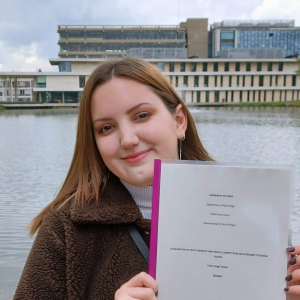
Chloe Tasker (University of Essex)
Main supervisor:Dr Gerulf Rieger; second supervisor: Dr Helge Gillmeister
Research project: Sexual Arousal Patterns of Women: A Test of Alternative Hypotheses
Research description: Unlike men's, women's sexuality is understudied in science and society (Chivers, 2016). It was only recently acknowledged that women's sexuality is profoundly different (Bailey, 2009). Most women, including heterosexual women, are sexually aroused to both genders, whereas most men are aroused to one preferred gender. This has been demonstrated with genital vasocongestion and pupil dilation to sexual videos showing males or females (Rieger et al., 2015). A prominent proposal for women's unique sexual arousal patterns is that forced copulation happened throughout human evolution, and the pressure for women to protect against genital injury was so strong that they have evolved to respond to any sexual stimulus with arousal and lubrication, even if subjectively un-arousing (Suschinsky & Lalumière, 2011). This evolutionary hypothesis has been challenged in one study assessing lubrication - a methodology that is rarely used but could revolutionise our understanding of women’s sexual arousal. In that study, women only lubricated to their subjectively preferred sexual videos but to no other kind of sexual videos, which questions the validity of the hypothesis (Sawatsky, Dawson, & Lalumière, 2018). Furthermore, the evolutionary hypothesis ignores other potential reasons for women's bisexual arousal patterns. Sex differences in sexual arousal could be attributed to sex differences in empathy. As women have a greater empathy compared to men (Stuijfzand et al., 2016), they may be more likely to share the emotional state of females shown in sexual videos and experience arousal with them. Moreover, women, more than men, depend on their physical appeal when competing for mates, and are therefore more distressed by physically attractive rivals (Buunk & Fisher, 2009). Thus, women may be aroused from stress by viewing attractive rivals, and this coincidentally triggers physiological sexual arousal. In Study 1, I will examine the evolutionary hypothesis in 270 men and women with different sexual orientations by measuring their genital vasocongestion to sexual videos showing males or females. I will also assess subjective arousal and, importantly, women's lubrication (via litmus strips) to each video. Sexual videos will include narratives that describe the actor either as a caring lover or as seeking non-consensual sex (no such acts will be shown), to test whether women respond sexually, including lubrication, to all sexual videos, even if subjectively unpleasant. In study 2, participants' self-reported empathy and intrasexual competition (in general and towards the actors in the videos) will be assessed alongside measures of sexual arousal, to examine whether women's bisexual arousal is due to sex differences in empathy and intrasexual competition. Such sex differences could be found even if the evolutionary hypothesis is not supported, and therefore offer powerful alternative explanations. Study 3 will also test sex differences in empathy, competition, and sexual arousal, but outside the lab via an online experiment that includes manipulations of participants' empathy and competition in order to examine causality and the generalizability of findings. The proposed research will have an impact on the study of female arousal by scrutinizing a prominent but hardly tested evolutionary hypothesis, and by potentially providing evidence for alternative explanations.

Helen Olawole-Scott (Goldsmiths, University of London)
Main supervisor:Dr Rebecca Chamberlain; second supervisor: Prof Michael Banissy
Research project: Learning to trust out senses
Research description: We rely on our perceptual systems to generate an internal model of the external world. However, to effectively interact with the environment we must also estimate the reliability or precision of our percepts. For example, if we are looking for our dog in the park on a dark night, we may have low confidence in the precision of visual signals and therefore rely on other sensory signals (e.g., the sound of its bark) or deploy other strategies to seek more information (e.g., ask a passer-by if they have seen it). This online assessment of confidence in our senses depends on metacognitive monitoring mechanisms (Norman et al., 2019; Pereira et al., 2020) that allow us to represent the reliability of our own mental states. The idea of precision-weighting is a central concept in computational models of perception in the brain (Alais & Burr, 2004; Ernst & Banks, 2002), but we know little about how our brain metacognitively estimates which sensory signals are reliable and which ones are not. Recently, Bayesian theories of the brain have suggested that agents actively generate beliefs about precision – internal representations of which sensory signals can be trusted and which cannot in different contexts (Deroy, Spence, & Noppeney, 2016; Pereira et al., 2020). For example, our brain could estimate that vision tends to be more reliable when the lights are on, or when we wear our glasses, and use this contextual information to guide decisions about which signals to rely on. While this concept of ‘beliefs about precision’ has been influential, it remains unclear whether our perceptual decision systems do in fact form beliefs about precision and how these are encoded in the brain. We also know that older adults show poorer decision-making as they age (Fatima, Khan, Rosselli, & Ardila, 2020; Rosi, Bruine de Bruin, Del Missier, Cavallini, & Russo, 2017). Studies provide preliminary evidence that perceptual metacognition also declines with age (Palmer, David, & Fleming, 2014). This raises the possibility that poor decision-making could be explained by our inaccurate beliefs about the precision of our senses. Establishing the basic cognitive and neural mechanisms of perceptual metacognition holds promise for understanding suboptimal beliefs and behaviour, especially those seen in older adults. Considering that a vast proportion of the population are living to a much older age, understanding the differences and deficits in how the elderly process and trust their senses is important. This PhD project will use a multi-method approach to characterise the cognitive and neural mechanisms that underpin meta-level beliefs about the reliability of our senses and will investigate how these mechanisms change as we age.
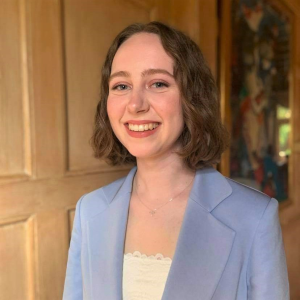
Lily Clark (University of Reading)
Main supervisor:Dr Catherine Manning; second supervisor: Prof Philip Beaman
Research project: Sensory processing and attention in autism
Research description: Autism affects ~1 in 100 people, ~90% of whom face sensory processing differences, making the environment overwhelming and negatively impacting daily life. It is thus key to better understand sensory processing, a top research priority for the autism community. My research will investigate how sensory symptoms relate to attention in autism, uniquely combining two theoretical accounts: increased distractor processing and reduced adaptation. Overarousal in autism may be due to difficulties in filtering out distracting information. Indeed, this ability appears to be impaired in autistic compared to neurotypical individuals which is an issue since paying attention is crucial for daily life. A separate account of autism uses a Bayesian framework, proposing that autistic individuals’ perception is less affected by past information, meaning they are less likely to adapt or get used to incoming sensory stimulation. This aligns with evidence of reduced adaptation in autism. Combining these two approaches, I propose increased distractibility in autism results from difficulties adapting to distracting information. I will develop a new paradigm to test the effects of reduced adaptation on distractor interference. Changes in distractor interference over time have not previously been explored but would be predicted by a Bayesian account: as someone adapts to distractors, they should find them easier to ignore. I propose autistic individuals have greater difficulty adapting to distracting stimuli over time, leading to sensory overload. I will investigate this proposal across three studies using an adapted distractor interference task based on one I designed for my undergraduate project. In all studies, I will use questionnaires to investigate links between task performance and everyday distractibility and sensory difficulties.

Miriam Hiersch (University of Sussex)
Main supervisor:Prof Kathryn Greenwood; second supervisor: Dr Mark Hayward
Research project: Using attachment and personality theory to identify critical personal characteristics of a therapist: engendering trust in clinicians working with patients with a diagnosis of psychosis
Research description: The National Institute for Health and Care Excellence (NICE) recommends cognitive behavioural therapy for the treatment of psychosis (CBTp). However, only 26% of psychosis patients currently receive this treatment due to its resource-intensive nature. Therefore, current research such as the GiVE-2 trial aims to address this by offering a brief version of CBTp for distressing voices which can be delivered by briefly trained therapists (i.e. assistant psychologists). The next step is now to ensure that both patients and clinicians are willing to engage in and refer to this treatment. Therefore, this project aims to identify the personal characteristics of the briefly trained therapists that engender trust in clinicians to refer a patient. Based on previous research on patient-client relationships, possible attributes include attachment style, empathy, warmth and genuineness. The project hypothesises that similar constructs will be relevant for engendering trust in clinicians. Firstly, the project aims to conduct qualitative data analysis with clinicians to identify the relevant attributes of assistant psychologists. Subsequently, a screening tool will be developed to assess these attributes which will then be tested with assistant psychologists. Overall, this project will address the lack of research in factors influencing a clinician’s likelihood to refer to a briefly trained therapist which is crucial for the implementation of brief psychological therapies.

Rebecca Hutton (University of Reading)
Main supervisor:Dr Katie Gray; second supervisor: Prof Carien van Reekum
Research project: Investigating emotional expression recognition in trait alexithymia
Research description: This research will be focussed on studying a poorly-understood personality characteristic: trait alexithymia. Broadly speaking, alexithymia refers to an impairment identifying feelings, recognising emotions, and determining physical sensations that are associated with emotional arousal. My research will be target on the emotional processes that are impacted on in those high in trait alexithymia. High levels of alexithymia can have significant effects on a individuals’ life; it is associated with difficulties in social interactions, and has also been found to contribute to clinical pathologies including eating disorders and autism. Little is currently understood about the mechanisms that underlie alexithymia, and previous research has been unable to ascertain the emotional processes that are affected by alexithymia. Furthermore, this project will investigate the novel prediction that early attentional processing of emotional expressions differs in those who are high versus low in trait alexithymia. This would have implications for our current knowledge about alexithymia: deficits seen in the early stages of processing could drive some of the impairments that are observed at later stages. As a result, this research may be used to inform the development of alexithymia-specific clinical interventions that could target the specific stage that the impairment occurs.

Ria Spooner (Royal Holloway, University of London)
Main supervisor:Dr Jennifer Murphy; second supervisor: Prof Dawn Watling
Research project: Is interoception the p factor? Investigating a common basis of psychiatric conditions.
Research description: It has recently been claimed that one general psychopathology factor (the ‘p factor’) underlies most common mental health disorders, representing lesser-to-greater severity of psychopathology. If vulnerability to psychopathology can be explained by one factor, then identification of this factor is crucial for diagnosis, intervention, and treatment of mental ill health. Recent proposals suggest that interoception, the perception of one’s internal states (e.g., feeling one’s heartbeat), may be the p factor. This assertion is based on the observation that interoception is atypical across multiple disorders and is associated with symptoms across disorders. Despite this, existing research is limited. Whilst interoception has been linked to several psychiatric symptoms, to date these associations have been examined in isolation. Difficulties measuring interoception, combined with a lack of causal inference methods, means it is unclear whether atypical interoception can explain cross-disorder symptomology. This project tests the hypothesis that interoception can explain disruption in several domains of functioning and as such can be considered the p factor. Given the inadequacy of a categorical approach, this will be achieved using a dimensional approach. Studies 1 and 2 will examine whether interoception can explain relationships between self-reported and behaviourally measured symptoms and how these change over time. Study 3 will test a remote digital intervention to improve interoceptive ability and mental health (developed with the industrial partner Biobeats). Study 4 will employ a pre- and post-intervention design to examine the impact of interoceptive training on symptoms across domains and mental health. As such, Studies 3 and 4 will enable us to confirm whether interoception plays a causal role in mental health symptoms and will test the efficacy of a novel digital therapeutic tool.
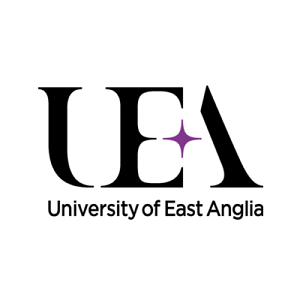
Afifa Ashfaque (University of East Anglia)
Main supervisor: Dr Joanne Hodgekins; second supervisor: Dr Kenda Crozier
Research project: Developing a psychological model of recovery from post partum psychosis.
Research description: Postpartum psychosis (PP) is a severe but treatable form of mental illness that can happen to women after having a baby. PP affects approximately 2 mothers per 1000 deliveries and occurs very rapidly in the days or weeks following birth. Research suggests that whilst the most severe symptoms of PP can remit within 2 to 12 weeks, functional recovery may take longer, with 30% of women reporting difficulties with psychosocial functioning 12 years post-episode. Mothers may experience depression, anxiety and reduced confidence. Current treatment for PP is mainly pharmacological and often involves an inpatient admission in a specialist mother and baby unit. However, there is a need for further development of psychological interventions to support longer-term recovery.
This project aims to use mixed methods to further understand the process of recovery following an episode of PP from a range of different perspectives. This will help to inform the development a psychological model of PP and tailored interventions

Alice Stanton (University of Sussex)
Main supervisor: Claire Lancaster; second supervisor: Jenny Rusted
Research project: Flower, flora, fauna: can novel metrics of verbal fluency performance help detect individuals at risk of future cognitive decline?
Research description: Over 850,000 people are living with a dementia diagnosis in the UK. Whilst treatments to halt or reverse dementia-causing neurodegenerative disease are limited, the ability to detect individuals at risk of future cognitive impairment will help advance preventative strategies.
This studentship asks if the patterns of words produced on a simple verbal fluency task (i.e., name as many animals as you can in 60-seconds…) can identify individuals vulnerable to future cognitive decline. The project will use natural language processing techniques to characterise subtle differences in the semantic, language and executive strategies to produce words. Participants will be healthy adults differentiated by whether they carry a genetic risk factor for Alzheimer’s Disease or not, and with adults referred to NHS memory assessment services with cognitive complaints.
This studentship is jointly supported by the School of Psychology, University of Sussex, and the Sussex Partnership NHS Foundation Trust.
Instagram: @aestants

Amber Pryke-Hobbes (University of Kent)
Main supervisor: Dr Andrew Martin; second supervisor: Professor Sukhi Shergill
Research project: An Investigation of Sense of Agency in Depression
Research description: A feeling of control over our actions and their consequences forms a fundamental aspect of human consciousness and is foundational to the human experience. Yet this sense of agency is not impervious to distortion. Indeed, aberrations in sense of agency have been observed amongst a number neurological and psychiatric conditions including Schizophrenia, OCD and autism (Blakemore et al., 2000; Graham-Schmidt et al., 2018 Moore, 2018). However, whether such differences in sense of agency exist amongst those with depression is yet to be empirically explored. As depression has long been characterised by feelings of helplessness and hopelessness over the outcomes in one’s life (Peterson & Seligman, 1984; Seligman, 1989), there is a strong theoretical rationale to investigate sense of agency amongst this population. The current research project will therefore pursue this line of research to understand whether depressive symptomatology, both at a clinical level and across the healthy continuum is associated with differences in sense of agency.
Twitter: @amberpryke
LinkedIn: Amber Pryke-Hobbes

Eleanor Alderman (Royal Holloway, University of London)
Main supervisor: Dr Szonya Durant; second supervisor: Dr Carl Hodgetts
Research project: Keeping an eye on memory: how vision shapes episodic memory within naturalistic environments
Research description: ‘Episodic memory’ is our memory for specific personal past events and experiences, such as our first day of school, or our first kiss. When recollecting these everyday memories, we often reconstruct the place and context in which the event took place in vivid detail. Indeed, the spatial layout of a scene appears to ‘scaffold’ and assist our ability to recall an episodic memory. For instance, without the ability to visually perceive the environment during memory encoding, the vividness of such memory appears to be significantly reduced during later retrieval. Further, recent neuroimaging studies suggests that brain regions thought to be responsible for episodic memory, such as the hippocampus, are also engaged when participants must perceive or tell apart visual scenes. This work suggests that understanding how we visually explore the spatial world may be critical for an in-depth understanding of how we encode and retrieve episodic memories. Despite this, the way in which visual scene processing shapes episodic memory remains largely unknown. For example, it remains unclear how visual scene perception influences the content and vividness of episodic memories, and which features are important for making a scene more memorable, and increasingly likely to be accurately remembered. This project aims to fill this knowledge gap by exploring the ways in which human visual scene processing shapes the recollective experience of episodic memory, as well as the underlying neural substrates.
To achieve this aim, this project will incorporate eye tracking, virtual reality (VR), novel scene memory tasks, and functional neuroimaging to examine how eye movements and visual attention within naturalistic scenes influences both behavioural and neural markers of episodic memory. Study 1 will use a novel scene drawing paradigm to measure the relationship between eye scanning patterns and the precision and accuracy of objects and features drawn during recall. Study 2 will extend upon this by utilising fully immersive 3D environments presented via a VR headset to assess the accuracy of memory recall when compared to the original scene which was explored during encoding, and how one’s visual attention during physical exploration relates to the accuracy of recall. This experiment will account for the role of movement within a scene by using VR, thus representing what is typically experienced in real-world environments and situations. Finally, in Study 3, I will combine eye-tracking technology and functional neuroimaging to assess whether the degree of visual sampling of a scene is related to patterns of hippocampal activation at both encoding and retrieval.
Together, these studies will provide an understanding of how the visual system influences episodic memory by gaining insight into the activation of brain regions likely to be responsible for memory and visual scene processing. It is therefore expected that this research will generate insights and alternative approaches to human episodic memory, as well as ways we can improve memory by guiding visual attention within real-world spaces.

Joshua Francis (University of Sussex)
Main supervisor: Dr Faith Orchard; second supervisor: Dr Megan Hurst
Research project: How do schools prevent emerging issues with body image?
Research description: Body image dissatisfaction (BID) has been defined as the negative appraisal of an individual’s own body. Prior research has suggested that children as young as seven years of age can experience BID (Jung & Peterson, 2007), negative body appraisals at these ages can develop into life-long dieting behaviours, negative self-concept, and eating disorders. Despite the understanding that BID has multiple social components, including peer influences, little research has explored the impact of school transitions upon body image. Primary to secondary school transitions have been called ‘transfer paradoxes,’ as students progress developmentally when transitioning to secondary school, but may decrease socially (Hallinan & Hallinan, 1992). Utilising longitudinal data of 2000 Scottish school students, West et al. (2010) found that those who reported low self-esteem or high anxiety before transitioning had a harder time adjusting to secondary school. While this literature concerns self-esteem measures, a should be investigated in regards to the impact of transitioning schools on individuals with existing BID. In the context of body image, students find themselves going from the most developed members of their school community, to the least developed and with a community that now possibly extends to individuals of up to 18 years of age. This PhD project will first utilise a systematic review to investigate whether a significant impact of primary-secondary transition upon BID experienced has been found within the literature. Then a second study, utilising a mixed-method study will be conducted in order to identify possible contributing factors of BID within students. The main focus will be a qualitative element and group-based interviews will be used. The goal of these studies is to explore factors surrounding the primary-secondary transition that contribute to BID. Our hope is that the our research will allow for the creation of a pilot-study intervention to help alleviate early occurrences of BID, and aid the primary-secondary school transition.
Twitter: @Joshua_Francis_
LinkedIn: joshua-francis-1426809a

Rea Gill (University of Reading)
Main supervisor: Dr Peter Scarfe; second supervisor: Prof William Harwin
Research project: Understanding sensorimotor optimisation in bimanual telerobotics from a human user perspective.
Research description: Our everyday movements are effortless, yet this contrasts dramatically with the difficulty of performing even simple tasks when working at a distance using a robotic telemanipulator system e.g., in robot assisted surgery or remote maintenance in the nuclear sector. The aim of this project is to parametrically map out how sensory-transforms (e.g., differences in rotation, translation, and scale) between visual and proprioceptive/haptic workspaces impact the usability of bimanual (two handed) operations in a state of the art visual-haptic telemanipulator system. This is critical, as current systems are difficult to use, require a large amount of training to be mastered, and are as a result highly costly to operate.
Twitter: @reagill7
LinkedIn: reagill7
Instagram: rea.phd

Alba Prados Pascual (University of East Anglia)
Main supervisor: Prof Andy Jordan; second supervisor: Dr Irene Lorenzoni
Research project: Climate policy integration processes in the European Union: exploring the national levels of integration of climate objectives into non-climate policies and specific implementation strategies
Research description: Although significant progress has been made in adopting more national climate legislation, decarbonisation is still not happening quickly enough to limit the most devastating effects of climate change (UNEP, 2019). One of the solutions proposed within both academia and policy making spheres is greater policy integration, namely integrating climate objectives into other policy areas, a process known as climate policy integration. An ‘integrated’ response to the collective challenge of climate change is commonly seen in policy circles as making more efficient and effective use of financial and human resources, rather than designing, implementing and managing climate policy separately from other sectoral policies (see e.g. Meijers & Stead, 2004). Drawing on previous work by policy integration scholars, a policy is integrated [into another policy area] when recognised in all stages of policy making, including evaluation as well as “incorporated at all policy levels and into all government agencies involved in its execution.” (Underdal, 1980, p. 162). This thesis aims to study the operationalization of climate policy integration in the EU during the period 1990-2020. Through applying a novel nested research design, this study aims to (1) investigate how the political commitment to climate policy integration has evolved over time at the EU level and (2) assess the different approaches to and (3) the level of climate policy integration across all 28 EU Member states on four salient dimensions, i.e. policy frame, subsystem involvement, policy goals and policy instruments.
LinkedIn: https://www.linkedin.com/in/alba-prados-pascual-086a1540/?originalSubdomain=uk

Christine Corlet Walker (University of Surrey)
Main supervisor: Angela Druckman; second supervisor: Tim Jackson
Research project: How will welfare systems cope without economic growth?
Research description: My research is focused primarily on the question of how we deliver societal well-being in a post-growth economy. Using a political economy approach I ask how the social care sector is dependent on economic growth, and what a social care system might look like in a non-growing economy.

Olivia Blair (University of Kent)
Main supervisor: Rob Fish; second supervisor: Joseph Tzanopoulos
Research project: Barriers for community resilience to climate change
Research description: The project focuses on climate justice, informality, and socio-economic-political barriers to building resilience to climate shocks and stresses. The research will involve informal settlement communities in Cape Town, South Africa, to understand the challenges they face in a complex social and political environment. Agency and formality arguably play a vital role in developing policy for vulnerable communities, as without local expertise and political input climate and development interventions may be ineffective. Developing bottom-up resilience strategies to work alongside top-down interventions could support sustainable, effective climate policies that enable communities to thrive in the socio-economic sphere.
Twitter: @LivIFBlair - https://twitter.com/LivIFBlair
LinkedIn: https://www.linkedin.com/in/olivia-blair-6995671b2/
Facebook: Liv Blair - www.facebook.com/liv.blair.3
Instagram: @LivIFBlair

Alice Milton (University of Kent)
Main supervisor: Professor Zoe Davies; second supervisor: Dr Robert Fish
Research project: Biodiversity and subjective wellbeing
Research description: While it is widely asserted in research, policy and practice arenas that interacting with nature is fundamental to human subjective wellbeing there is little evidence characterising how biodiversity underpins this accepted truth. My research aims to dig into the ways in which people- particularly children and young people- relate to different biodiversity attributes both positively and negatively, and to explore how their values of biodiversity differ in relation to their social characteristics and identities. My research has an environmental education perspective and aims to identify teaching practices which could positively impact young people's relationships with biodiversity and unlock additional wellbeing benefits.

Harriet Dudley (University of East Anglia)
Main supervisor: Andy Jordan; second supervisor: Irene Lorenzoni
Research project: Governance by evaluation? The role of knowledge in governing decarbonisation
Research description: My 1+3 PhD focusses on the role of the Committee on Climate Change (CCC), a non-departmental public body, in the governance of UK decarbonisation. My Master's dissertation involved a content analysis of the CCC's mitigation recommendations provided to UK Parliament between 2009 and 2020 and a computational text analysis of the CCC's evaluation of UK decarbonisation progress over time. My PhD project aims to more broadly investigate the role of the CCC in UK climate governance, particularly its monitoring, evaluation and advisory role.
LinkedIn: www.linkedin.com/in/harriet-dudley-9a6b12109

Harriet Gendall (University of Kent)
Main supervisor: Dr Rajindra Puri; second supervisor: Dr Ian Bride
Research project: Rethinking heritage grain revival through the past, present and future of “pillas” - a naked oat once widespread in Cornwall
Research description: My research centres on heritage grain revival and its potential for building social-ecological resilience. Grounded in first-hand experience, it seeks to re-cultivate and re-discover the value of "pillas" - a naked-grained oat once significant in Cornwall, which has survived in seedbanks despite disappearing from fields some 150 years ago. Drawing insights from its past through historical ethnobotanical research, exploring its present and future reinvention in collaboration with farmers, and reflecting on examples of other revivals - both heritage crops in the UK and further afield, as well as other forms of cultural heritage such as language - it will examine how the narratives we form around food, agriculture, identity and time, shape both ourselves and the landscapes we live in.
Twitter: @harrietgendall
Instagram: @harrigendall

Lena Gütermann (University of East Anglia)
Main supervisor: Professor Andrew Jordan; second supervisor: Dr Irene Lorenzoni
Research project: Rapid and deep decarbonisation: The role of transnational non-state initiatives in polycentric climate governance
Research description: With the landmark Paris Agreement of 2015, the international community agreed to put society on a decarbonisation path, with the goal of keeping the rise in global average temperature well below 2 degrees Celsius compared to pre-industrial levels, and to advance efforts to curb the temperature increase even further to 1.5 degrees Celsius (UNFCCC, 2015). To meet these internationally agreed boundaries, the emissions gap must be closed as rapidly as possible, as urged in the latest UN Emissions Gap Report (UNEP, 2018). This requires rapid, deep and society-wide efforts engendering decarbonisation, such as technological innovation, bold investments, a deep scientific understanding of the climate system and, crucially, ambitious action by non-state and subnational actors as well as governments. This realisation is anchored in the text of the Paris Agreement. It captures the central role not only of state (government) actors, but also non-state actors in decarbonisation. Crucially, the United Nations Framework Convention on Climate Change (UNFCCC) seeks to accelerate the development of a more complex, multi-levelled and polycentric landscape of climate governance that has slowly emerged over the last decade. Voluntary initiatives by non-state actors, involving transnational actors such as businesses, cities, and civil society organisations pledging to decarbonise, have clustered around the multilateral process facilitated by the UNFCCC. The engagement is diverse and spans online as well as offline participation. The initiatives include reporting of emissions reduction targets, technical contributions to expert meetings or written submissions to inform multistakeholder partnerships. While the existing literature on these novel processes offers an insight into the formal involvement of non-state transnational actors in multilateral climate diplomacy, knowledge on the precise working of climate governance through voluntary transnational non-state initiatives is still very sparse. The research project seeks to shed new light on the relationship between transnational and multilateral governance processes. In particular, using Nobel Laureate Lin Ostrom’s polycentric theory as an explanatory framework, the aim of the thesis is to understand the emergence of voluntary non-state transnational initiatives and underlying linkages between them in the context of the UNFCCC. The project aim will adopt a three-step approach, using a novel combination of qualitative and quantitative methods. It will, first, provide a comprehensive map of the landscape of non-state voluntary initiatives clustered around the UNFCCC from 1992 to 2020 by using network analysis. Second, it will undertake case studies and quantitative analysis to determine the type of linkages between the UNFCCC and the initiatives to understand the ‘real’ nature of the engagement of nonstate actors. Third, it will involve semi-structured interviews to investigate the motivations of these actors to engage voluntarily in the UNFCCC process. The empirical work will advance polycentric theory, as well as provide practical, policy relevant insights for the strategic coordination of stakeholders in global climate policy. Methodological and theoretical advancements will be achieved by applying network analysis to a large dataset in global climate governance, and by empirically testing the underlying assumptions of polycentric theory on a global level. On a practical level, lessons will be derived for strategic coordination by non-state actors and/or the UNFCCC. Ultimately, better predictions will be made on the durability and effectiveness of the initiatives and of the overall polycentric climate regime for engendering the much required changes needed to rapidly and fully decarbonise society.
Michela Bello (University of Sussex)
Main supervisor: Maria Savona; second supervisor: Tommaso Ciarli and Mattia Di Ubaldo
Research project: Positioning in global value chains and innovation: an empirical analysis of firm-level data
Research description: In recent decades, advances in information and communication technology and falling trade barriers have led firms to retain within their boundaries and in their domestic economies only a subset of the production stages, generating a growing process of international fragmentation of production. While there is an extensive literature analysing the link between trade in final goods, or being part of a multinational corporation (MNC), and economic performance, especially at the firm-level, much less attention has been placed on how the position of a given production stage in global value chains (GVCs) affects firm performance. The aim of this research project is to investigate the productivity and innovation effects of a firm’s position in global production by building on the methodology developed by Antràs et al. (2012), Antràs and Chor (2013), and Antràs and Chor (2018) based on input-output analysis. The ultimate goal of this research is to contribute to a better understanding of how firms benefit from GVCs and speak to the policy discussion and the body of research on firms’ upgrading in GVCs, knowledge transfer and innovation drivers. Policy makers have traditionally encouraged internationalisation with the expectation that the latter is linked to productivity and economic growth. Innovation, which involves the creation and diffusion of new products and processes, is long seen as a key driver of productivity and playing an important role in the creation of new businesses and new jobs as well as in addressing societal and global challenges. Based on this rationale, innovation has become a policy priority to foster economic growth. However, innovation is a complex process and the conclusions drawn from the internationalisation and trade research may not be true when the position of a firm’s production stage is taken into account. The analysis unfolds in the following ways. Firstly, I examine the impact of a firm’s position in GVCs on productivity and innovation. Secondly, I explore the channels through which it can affect a firm’s ability to innovate. I argue that the international fragmentation of production can affect innovation via knowledge spillovers, as well as through higher incentives to invest in intangibles, which might be crucial to decode and absorb the new knowledge to which the firm is exposed. Finally, in the last step of my research, I plan to explore cross-country firm-level data to study whether the skill endowment of a country’s and a sector’s workforce influences the way in which firms benefit from GVCs.

Peter Matthews (University of Kent)
Main supervisor: Dr Joseph Tzanopoulos; second supervisor: Dr Robert Fish
Research project: Sustainability performance of ecological approaches to farming at regional scale
Research description: Agriculture faces the twin challenges of meeting increased demand from a growing and more affluent population, while also conserving key natural resources that underpin the sustainability of our societies. Moreover, different farming systems vary in the extent to which they provide or challenge public goods and ecosystem services, such as drinking water, air quality, landscape appearance and biodiversity. Therefore, there is a need to assess how far new environmentally-friendly farming approaches can promote improved performance and sustainability at the rural areas in which they are located. It is also important to understand how socio-economic and policy drivers affect the development of these farming systems and assess their environmental, social and economic performance. However, novel farming approaches tend to be linked to the land and territory where they are implemented, and so the ecological and socio-economic impacts of these approaches may vary at a regional scale. Comprehensive sustainability assessments of these farming systems should therefore be conducted beyond the farm level, accounting for the provision of public goods and ecosystem services at regional scale. This interdisciplinary project will involve a mix of ecological, social and economic research, with the ultimate aim of conducting a sustainability appraisal of ecological approaches to farming at regional scale. Research will be conducted in two case study regions in south-east England, with different natural and agricultural characteristics. The project will start by investigating the socio-economic and policy drivers affecting adoption of ecological approaches. Insights into these drivers will be used to inform the development of different future scenarios for the expansion of ecological farming across the landscape. Analysis of the literature on environmental, social and economic impacts of these farming approaches will be used to understand how the different spatial patterns of farming practices under each scenario affect the provision of public goods and ecosystem services. These findings will then be combined in an integrated sustainability assessment, where ecological farming approaches will be assessed against regional sustainability targets, using network analysis to examine the interactions among the cause-effect relationships linking drivers to impacts for each approach. The combination of sustainability assessment, scenario and network analysis employed in this research will provide a valuable framework for understanding how ecological farming approaches can contribute to sustainable development in rural landscapes. Critical paths and possible barriers to achieving sustainability targets will be identified, highlighting priority areas for further research, agricultural policy and rural landscape management. The research has the potential to support and inform the EU’s Horizon 2020 Low-input Farming and Territories (LIFT) project, of which the University of Kent is a key partner.

Aline Scherrer (University of Sussex)
Main supervisor: Prof. Dr. Karoline Rogge; second supervisor: Dr. Matthew Lockwood
Research project: Competition between alternative drives? Introducing socio-political factors to the study of multi-technology interaction
Research description: My PhD project examines how manufacturers or policymakers, as powerful actors, influence the sustainability transition of the transport sector by differently portraying alternative drives in relation to one another.
Changes in dominant technologies are a key contribution to reducing global CO2 emissions and achieving sustainability transitions in sectors such as energy, agro-food, or transport. Such sustainability transitions are defined as “radical shifts to new kinds of socio-technical systems” [1, p. 3]. Despite this system perspective, most research on the role of innovation within transitions has focused on the development and diffusion of single technologies, such as fuel cells, or battery-electric vehicles (BEV). This is a problematic shortcoming as technologies do not exist in isolation but can compete, develop in parallel, or support each other’s development.
The few studies on multi-technology interactions in the field of sustainability transitions describe these interactions exclusively from a techno-economic perspective. So far, studies have neglected how these interactions come about in the socio-political context, for example through strategies of organizations. Since sustainability transitions are societally steered and highly negotiated processes with uncertain trajectories and outcomes, this presents a significant research gap, which is addressed in my PhD.
As a case, my project focuses on alternative drives for cars and trucks, which are technologically feasible but have not yet widely diffused to replace status-quo technologies: battery-electric solutions and electrified roads, hydrogen and fuel cells, as well as synthetic fuels. These technologies present a highly contested field where powerful actors, centrally manufacturers and policymakers, favour certain technologies over others and communicate their visions of future technology trajectories through media and other channels into society.
To achieve the most beneficial technology developments for a sustainable transition of the transport sector, multi-technology interactions and their societal origins and impacts need to be consciously addressed. If perceptions and activities around technology relations remain a black box, this creates the risk that powerful actors further single-technology or open-ended visions, which underutilize the potentials of a systems view and could hamper rather than accelerate the transition.
[1] Köhler, J., Geels, F. W., Kern, F., Markard, J., Onsongo, E., Wieczorek, A., . . . Wells, P. (2019). An agenda for sustainability transitions research: State of the art and future directions. Environmental Innovation and Societal Transitions. Advance online publication. https://doi.org/10.1016/j.eist.2019.01.004
Twitter: @alinescherrer1
LinkedIn: https://www.linkedin.com/in/aline-scherrer-772873106

Faye Whiley (University of Kent)
Main supervisor: Prof. Douglas Macmillan; second supervisor: Dr. Joseph Tzanopolous
Research project: The sustainability of a Eurasian lynx (Lynx lynx) reintroduction in Scotland
Research description: The aim of my research project is to assess and compare the sustainability of a Eurasian Lynx reintroduction in Aberdeenshire and the Kintyre Peninsula, Scotland, and address concerns raised by local stakeholders and relevant organisations. With an abundance of prey densities and a high economic cost to control these populations, a large carnivore reintroduction into the UK may be beneficial, as for example a successful Eurasian Lynx reintroduction could control deer populations, encourage natural forest regeneration and, increase tourist activity and visitor numbers. Previous lynx reintroductions in Switzerland, France and Germany have resulted in human caused mortalities from poaching, by hunters and livestock breeders; a potential issue for a lynx reintroduction in the UK. An important lesson learnt from a lynx reintroduction in the Palatinate National forest, Germany, is that building local support for and engagement in the reintroduction project is key for successful implementation. A large predator reintroduction in the UK brings much controversy as the UK public have not grown up in an environment with a large carnivore presence. Although, research has reported a lynx reintroduction would be favourable among the public, there are understandably concerns from farmers, livestock breeders, hunters and their associations. It is thus, extremely important to involve these parties in any discussion or plan for a future species reintroduction. Recent research has identified potential sites in Scotland (Aberdeenshire and Kintyre Peninsula) for lynx reintroduction projects but has also highlighted that further research is vital in order to provide an integrated sustainability assessment of the social, economic and biodiversity performance of the Eurasian lynx reintroduction project and investigate its potential challenges and opportunities for local communities.
LinkedIn: Faye Whiley
Instagram: @theconservationdiaries

Lauren Young (University of Kent)
Main supervisor: Dr David Roberts; second supervisor: Dr Jack Cunliffe
Research project: Out of Africa: understanding trade networks in illegal wildlife trade
Research description: Unsustainable wildlife trade has resulted in the decline of some of the worlds most threatened species. Despite trade restrictions, organised crime syndicates are increasingly illegally sourcing wildlife commodities and moving them across landscapes and borders. In recent years, there has been a significant increase in both poaching levels and in the size of individual seizures, so understanding and tackling the pressures imposed by criminal activity has never been more crucial. Elephant ivory remains one of the commodities most frequently seized by authorities, and Africa is estimated to be the origin for 80% of all illegal specimens. By using container shipments of ivory coming out of East Africa, where the origin (location of poaching) and the exit ports are already known, I will establish the locations of criminal trafficking activities between these points (e.g. the intermediate steps in the trade networks). By applying geographic profiling and electricity resistance theory to analyse existing data on human activities and geographical landscapes and sourced expert stakeholder knowledge, I will predict the most likely supply routes between poaching events and exit ports, in addition to crucial nodes where ivory is consolidated. Specifically, I will use geographic profiling to establish the epicentres of poaching, connectivity analysis based on socio-economic and geographical resistance surfaces (e.g. transport infrastructure, border permeability, population density, poverty, corruption indices) to determine the routes via which ivory is moved across Africa to exit ports, graph theory to identify crucial nodes for law enforcement intervention, and a final prioritisation analysis to establish where interventions on the ground have the greatest potential to disrupt the trade of illegal wildlife and, in turn, criminal networks. Through a final stage of iteration, I will combine stakeholder judgement with this analysis to refine the model, maximising the real-world interpretability and ensuring practical on-the-ground impact. Understanding how socio-economic, political and geographical landscapes influence traffickers’ movement of illegal wildlife commodities is fundamental to effective law enforcement. Wildlife trafficking is increasingly being facilitated by criminals well practiced at illicit trading, i.e. in human trafficking and narcotics. Therefore, with these novel and interdisciplinary analytical methods, I will aim to further our understanding of illegal trade networks and improve law enforcement interventions, for elephant ivory, and by extension, for other illegally traded commodities. Having never been combined before, these methods will provide a novel and transferable model that will tackle a research question of considerable value to wildlife conservation and to policing efforts more broadly. My findings will be of direct value to a wide range of stakeholders, including policy-makers, conservation NGOs, enforcement agencies, transport industries, and academics.
Twitter: @LaurenBeaYoung
LinkedIn: laurenbeayoung
Instagram: laurenbeayoung89

Marina Nicolaidou (University of East Anglia)
Main supervisor: Jason Chilvers; second supervisor: Helen Pallett
Research project: Developing a novel approach to participatory technology assessment through science fiction in the case of climate geoengineering
Research description: Via my PhD research I aim to develop a new approach to participatory technology assessment through science fiction in the case of climate geoengineering. My project seeks to open up and diversify technology assessment practice by bringing together work on participatory technology assessment and sociotechnical imaginaries with climate geoengineering science fiction for the first time. It will do this via mapping of diverse instances of climate geoengineering science fiction and public engagements with them occurring in the UK; analysis of the imagined geoengineered futures evident within these science fiction climate geoengineering engagements; and the development of a participation experiment through which it will test and evaluate a new science fiction-based approach to participatory technology assessment.

Ruth Larbey (University of East Anglia)
Main supervisor: Martin Mahony; second supervisor: Jason Chilvers
Research project: Generating the responsible assessment of afforestation as greenhouse gas removal 'technology' in the UK and Portugal.
Research description: The aim of my research project is to investigate and improve the assessment of afforestation as a greenhouse gas removal 'technology', using the UK and Portugal as comparative case studies.
I expect that the need to balance competing claims for land-use change will become increasingly prominent over the next 50 years. Implementing afforestation on a large scale will have consequential effects on land systems, ecosystems, agriculture, biodiversity, livelihoods, socio-economy and culture. These effects are difficult to capture or account for within current assessments or policies. Recent research has identified 'responsible' assessment of land-based climate mitigation options as a key gap needing further investigation.
Figuring out how to make evidence-based, equitable, balanced, socially acceptable decisions in this highly negotiated space is a crucial task for the social sciences. Creating realisable, real-world pathways to decarbonisation, while also delivering against other land-based targets (e.g. biodiversity, productivity) will require new, responsible appraisals of the options. My research project will focus on mapping the existing science-policy and public interfaces with afforestation for greenhouse gas removal and storage. I plan to use these insights to study and help build better feedback loops between environmental science, community action and policymaking in this area.
Twitter: @RuthLarbey
LinkedIn: ruth-larbey-a247b515

Catherine Nugent (Goldsmiths, University of London)
Main supervisor: Massimiliano Mollona; second supervisor: Professor Sophie Day
Research project: Engineers at work
Research description: Government, industry and experts claim ultra-fast fibre optic telecommunications are essential to deliver the so-called Fourth Industrial Revolution of big data applications, cloud computing, the “Internet of Things” and automation of work. Yet at the heart of the upgrade is an intricate task for engineers working in a congested urban landscape — replacing copper wiring, and threading fibre optic cables under pavements and roads. This ethnographic research follows the changing conditions, livelihoods and material complexities of the work for London engineers involved in upgrading broadband to “ultrafast”. The research will examine what these infrastructure workers produce, how they produce it, the perspectives they have on bringing connectivity to society. The research also investigates a micro-urban context for these installations — the uses, desires, and relationships that are being reshaped by the advent of ultrafast.
Twitter: @CathyNugent1

Chloe Place (University of Sussex)
Main supervisor: Dr Rebecca Prentice; second supervisor: David Orr
Research project: Investigating kinship care in dementia: an ethnography of dementia in families in Andalusia
Research description: This research will critically unpack cultural meanings behind dementia care within families in Andalusia, Spain. A demographically ageing world population has led dementia to become a global health crisis, with the World Health Organization urging governments to prioritise dementia public healthcare strategies. More countries and families are turning to institutions to care for their relatives with dementia. Andalusia, however provides an intriguing local cultural context to explore dementia care, as despite the ‘western’ status of Spain, an EU country rooted within advanced processes of economy, politics, media and technology, people are adapting care-giving into long-established patterns of family life rather than turning to modern private/state-run institutions. Andalusia, a region whose culture is embedded with strong family networks and kinship ties, forms a useful case study to explore how family structure, public health and dementia care interplay, contributing to global debates on dementia care.

Jason Irving (University of Kent)
Main supervisor: Dr Anna Waldstein; second supervisor: Dr Raj Puri
Research project: The trade in medicinal plants between Jamaica and the UK
Research description: This PhD will investigate the wild harvesting of medicinal plants traded from Jamaica to the UK. It will provide a case study to contribute to research questions of ethnobiological knowledge systems, plant conservation, value chains of herbal medicines and migrant medical ethnobotany. It will ask “How is local ecological knowledge about the wild harvesting of medicinal plants developed within the context of global trade and social networks, and what can this tell us about human-environment relationships?” To answer this I will carry out an ethnography and ethnobotanical survey of harvesters in Jamaica. I will investigate and document their motivations for the selection of medicinal plants, their choice of harvesting techniques and methods of knowledge transmission. This focus responds to a call for medical anthropology to focus on the materials used in healing and the environmental context in which they are sourced. The research will explore how harvesters influence and are influenced by their local environment, and the implications this has for the use of herbal medicines. Recognising the global influences of trade on local knowledge and practice (and therefore on the environment), I will document different stages of value chains from harvesting to processing to sale from Jamaica to the UK. By exploring the actors involved and their relationships, I will provide a fuller picture of the trade by situating it within the cultural and socio-economic context of the people involved. Through undertaking ethnobotanical field work, I will discover which plants and plant parts are traded, providing the first such study of wild harvesting in Jamaica. This will support research in migrant medical ethnobotany by overcoming the challenge of accurately identifying the ingredients of medicines in study locations remote from where the plants are sourced and processed. The PhD will focus on ‘root tonics’, a common preparation method in Jamaica and the Caribbean, made from a base decoction of roots and barks mixed with other plant parts. Though often marketed as an aphrodisiac, a wide range of health benefits are reported by users and producers. Root tonics are the focus of this project because of the local environmental importance of their ingredients, their recent commercialisation and their historical and contemporary significance within the Black Atlantic. These medicinal preparations are relevant to questions of diasporic processes of cultural hybridity in the colonial and postcolonial context raised by Black Atlantic studies, as they have an origin in West Africa and have travelled with migrants from Jamaica to the UK. Contextualising the selection of species and the medicinal value associated with them within this network will contribute to research into change and continuity of healing practices under conditions of globalisation and migration.

Richard Thornton (University of Sussex)
Main supervisor: Prof Filippo Osella; second supervisor: Geert de Neve
Research project: Teaching and learning in contemporary Delhi
Research description: This research will explore the contemporary landscape of primary education in India, with a focus on Delhi. The research will be ethnographic and conducted among teachers, children and educationalists. The broad aim will be to understand the institutions, conditions, organisation and ethos of primary education. The specific focus will be on the role of the teacher in the neo-liberal classroom: how they perform, adapt or resist in schools oriented by neoliberal rationality, and how this response is experienced by the children they teach. The research focuses on the explosion of education social enterprise 'start-ups' in India, and especially Delhi, and questions how these projects both carry neoliberal rationality and aesthetics, and yet have the potential to instigate learning environments based on emotional reflection that derail the individualist subjectification inherent to neoliberal schooling. The research follows relational, queer, feminist ontologies as imagined by theorists such as Gilles Deleuze, Karen Barad, and Bronwyn Davies as a way to reconceptualise the moments of interaction between teachers and students within the classroom. As method, I will be working as a full-time teacher in a start-up schooling project in Delhi; I will use previous teacher training experience in India joined with further training provided by my employer to examine my own teacher-subjectification process. This emotional self-examination will be conducted alongside an exploration of the relations I build with the children I teach, and the forms of knowledge and imagination we discover. The aim is to construct an image and analysis of what social and political possibilities these new teacher/schooling initiatives could hold, and ultimately explore what such projects mean for neoliberalism and individualism in India more widely.

Tom Bell (University of Kent)
Main supervisor: Dr Jonathan Mair; second supervisor:
Research project: The ethical foundations of climate activism in Trump-era USA
Research description: Responding to the urgency of both climate change and the need to investigate ethnographically how ‘the environment’, especially in relation to climate change and energy, continues to unfold as a key nexus of opposition during Trump’s presidency, this project will explore climate activists’ engagement with the ethical dimensions of climate change and clean-energy transitions in the USA. Primarily placed within the anthropology of ethics, the project asks: How do climate change activists creatively use ethical concepts, promote ethical sensibilities, and communicate visions of a ‘good society’ in their attempts to engender action on climate change and alternatives to the current energy system? I will undertake ethnographic fieldwork in Massachusetts. An important hub of civil responses to climate change and energy issues in the United States, Massachusetts is an ideal context to study the growing social movement seeking systemic alternatives to fossil fuel extraction and concerned with the connection between energy systems and environmental, economic and social justice. By focusing on the ethical foundations of climate change activism, I seek to provide unique perspectives on: the specific forms of social, economic and political transformation advanced by activists; the strategies used by activists to generate wider engagement with climate change and convince others to ‘take action’ in particular ways; the specific ways in which climate change and energy matter for particular actors; and activists’ responses to discourses oppositional to their aims, such as those promoted by the fossil fuel industry and the Trump administration.

Yathukulan Yogarajah (Goldsmiths, University of London)
Main supervisor: Prof. Rebecca Cassidy; second supervisor: Dr. Massimilliano Mollona
Research project: A Derridean Perspective on Uncertainty in Finance
Research description: As politicians, economists, and social scientists have alluded to, the way finance deals with uncertainty raises important ethical issues. The treatment of uncertainty, especially the uncertainty that the future brings, as something that can be reduced by mathematical models and financial analysis has played a key role in allowing finance to make huge sums of profit, whilst at the same time also playing a critical role in recent financial crashes. Explanations for this mishandling of uncertainty by the financial world, from the main interpreters of the financial markets, mainstream economists, have been found wanting. In light of this, this project proposes an anthropological perspective to examine the workings and decision-making process of finance, to complicate the rational actor, to take a social and cultural approach to the understanding of finance; to reveal the perspectives that mainstream economics suppresses. To this end, this project utilises Jacques Derrida’s concept of ethics and justice to explore the ethical landscape created by finance’s interaction with uncertainty.

Ashleigh Jackson (University of Sussex)
Main supervisor: Dr Rebecca Prentice; second supervisor: Dr Paul Gilbert
Research project: An Ethnography of Cryptocurrency Trading
Research description: My research seeks to examine cryptocurrency trading in the United Kingdom, using the emergent crypto market as a lens to unpack contemporary understandings of money, value and speculation within the socio-economic context of political austerity, Brexit and the 10-year anniversary of the global financial crisis. In so doing, this research will contribute to urgent theoretical debates regarding the nature of money, value and speculation and provide timely and critical research into the formation of new institutions and socio-technological arrangements, as investment, speculation and trading in cryptocurrencies proliferates under political and economic uncertainty. I plan to undertake ethnographic fieldwork among cryptocurrency traders in the UK over a 12-month period, engaging in both online and offline participant observation as well as personally trading cryptocurrencies, immersing myself in the community as much as possible in order to gain insights into the perceptions, practices and actions of those involved with the market

Catrina Schwendener (Goldsmiths, University of London)
Main supervisor: Massimiliano Mollona; second supervisor: Victoria Goddard
Research project: Adapting to the New Normal: Economic reforms and livelihoods in the Chinese steel industry
Research description: The steel industry has been the backbone of China’s economic development. Now, as China is changing its model of growth from a focus on manufacturing and heavy- industry to a knowledge-based, innovation-driven, ‘green’ economy, the Chinese steel industry is due to change. While this has led to localised de-industrialisation, the Chinese government continues to strengthen state-owned enterprises. Thus adapting industrial policies, which differ significantly from the deindustrialisation processes of steel industries in post-Fordist and post-socialist contexts. The study reflects on Chinese steel workers’ and their families’ place within this unique model of development. It asks what the implications of China’s changing industrial policy might be for the ways in which workers devise socially, economically and culturally valued livelihoods and how this may influence workers’ expectations of the future.

Qudra Goodall (University of East Anglia)
Main supervisor: Cecile Jackson; second supervisor: Ben Jones
Research project: Subjectivities and everyday forms of faith: a case study of convert Muslim women in Norwich
Research description: My doctoral research ‘Subjectivities and everyday forms of faith: a case study of convert Muslim women in Norwich’ is interested in collating the everyday lived experiences of first- and second-generation British convert Muslim women. It seeks to identify how everyday forms of faith and practice, which play out across life trajectories, including home and working lives, effects models of self, personhood and ethical imagination. In proposing an alternative approach to reducing people to national, cultural or religious categories this study aims to deconstruct stereotypical and reductionist binaries which permeate current popular and political Islamophobic discourses to reveal a more intricate tapestry of contemporary British Muslims.

Annabelle Inman (University of Sussex)
Main supervisor: Paul Boyce; second supervisor: Elizabeth Mills
Research project: Self-cutting in Digital Communities
Research description: This ethnographic project examines self-cutting, peer-support, and advocacy in digital communities. Specifically, I explore the rising presence of self-cutting imagery and discourse in digital spaces and the role of online communities in mediating the practise of self-cutting. Through the use of cutting edge methods in digital ethnography, this research will shed light on the resultant impacts of self-cutting upon the material body and wider society. This research addresses the imperative set out by multinational agencies, including the UN (2013) and WHO (2015), to make mental health and stigma priority areas for global research. The UK government in particular, has struggled to articulate a coherent solution to what they view as the necessary management of self-cutting images in online spaces and the engagement of young people in those spaces (Dept of Health & Social Care, 2019). This research engages in this critical domain - the rising presence of self-cutting in online spaces - with a view to understanding emerging forms of peer to peer mental healthcare taking place in the digital world and the implications this may have for clinicians. Drawing on the relational ontological theories of Karen Barad (2007), Donna Haraway (2008), and Jane Bennett (2010), I consider the ways in which self-cutting can be conceived of as a social act that implicates others, and ask how the embodied private, social, and digital practises of people experiencing psychiatric symptoms can challenge both psychiatric treatment regimes, and notions of the individual as pathological. This research further engages material feminist theory (Coole & Frost, 2010) to explore the role of the image of a cut, or blood, in the mediation of intimacies. An understanding of such intimacies will be helpful in understanding the rationale of 'sharing' images of one's own cut and bleeding body. This is a timely and relevant project which addresses the rising challenges brought forth by our posthuman existence in an increasingly digital world. Finally, as a researcher with a history of self-cutting, I seek to challenge boundaries between researcher and research subject and circumvent potential ethical concerns in research among marginal or vulnerable groups.

Bianca Griffani (Goldsmiths, University of London)
Main supervisor: Dr Massimiliano Mollona; second supervisor: Dr Henrike Donner
Research project: What's Left of the Town? An ethnography of class in Terni.
Research description: My project is an ethnographic study of class in the city of Terni, my hometown. Terni is a steeltown and a formerly important centre for textile and chemical production which, in the last fifty years and as the regional crisis of siderurgy has deepened, has been radically restructured by mutual processes of deindustrialisation and tertiarisation. While attempts to regenerate local industry and requalify the city have stalled, new forms of labour and new livelihood strategies have appeared in the context of emerging processes of value-production. My project engages these local forms of labour and livelihood strategies through subjective narratives, to investigate everyday experiences of class as a set of material, situated and heterogeneous social relations and interrogate what forms of political consciousness and collective subjects could arise from them. It is also an account of the processes that have transformed my hometown—deindustrialisation, the contraction of the local job-market and the fragmentation, precarisation and informalisation of work, but also emigration and immigration—from the point of view of those that have directly been touched by them. The main research questions I seek to answer are three: What is the current material composition of the working-class in my field? Are there instances in which a self-conscious political subject emerges from these material relations, and if so, how? Where this does not happen, what are the obstacles to its political composition? These questions open onto broader theoretical and political interrogatives about the nature of the relationship between economic structures and political subjectivities, about the life-cycle of cultural formations, and about the conditions of possibility for the emergence of sustainable mass class politics in the current historical moment. In order to answer these questions, I intend to recuperate the most productive aspects of two competing approaches to the study of class, the class-composition and class-consciousness models, and synthesize them with the insights of feminist and historical-structuralist perspectives. The methodologies I intend to use are broadly those of auto-ethnography and oral history: my main object of analysis are the stories people tell about themselves and the world. The patterns of social change experienced by my generation and my parents’ generation in Terni are in no way unique to our locality. They fit into wider transformations that have interested Italy since the end of world war two, and are themselves enmeshed in global processes that are both material and cultural and that have been studied under the rubric of late capitalist development. This project seeks also to find in the intimate, situated and particular narratives of my interlocutors openings through which global processes can be given flesh and seen otherwise. My research engages with theoretical debates within contemporary Marxist anthropology, and more broadly within current Marxist scholarship, on the themes of class, labour, value, subjectivity, identity and agency.

Luke Walker (University of Sussex)
Main supervisor: Prof Margaret Sleeboom-Faulkner; second supervisor: Dr Karis Petty
Research project: Biotech practises and changing cultural identities in Iceland.
Research description: In the aftermath of the discovery of the human genome, many people now turn to genetics and biomedicine for answers about disease and identity. In Iceland, the biopharmaceutical company deCODE genetics has been a decisive part of this process. My research is about how genetic research and technology in Icelandic society is underpinned by contested ideas and ethics of the family and identity. It follows on from multiple controversies such as the debates about creating a national health sector database, and more recently accusations of eugenics regarding the use of prenatal screening technologies to diagnose and abort foetuses with Down Syndrome. My research sets out to clarify and draw out the social, economic, and political contexts in which ideas of the family and identity emerge between different groups of the Icelandic population, and thus contribute to enriching the theoretical debates in anthropology about disability, kinship, and biomedicine. I plan to carry out long term immersive fieldwork amongst people who have personal experiences of genetic conditions, as well as with professional physicians and clinicians in Iceland. Moreover, I also focus on these groups in the context of reproduction and family planning.

Shyvonne Thompson (University of Roehampton)
Main supervisor: Dr Jonathan Skinner; second supervisor: Dr James Davies
Research project: Public Discourses on the Silence of Inherited Trauma
Research description: This will be an investigation into contemporary discourses around enslavement, particularly with a focus on the silence that surrounds the topic of slavery in the island nation of Antigua and Barbuda, a former British colony in the Caribbean. I aim to investigate the positive and negative aspects of these discourses, what they could potentially mean for the Black Caribbean community and for a social policy of reparations and post-enslavement wellbeing. Karen Fog- Olwig (2007) points to a 'conscious forgetting' of this highly emotive historical period among the descendants of formerly enslaved peoples in the Caribbean. This 'forgetting' is manifested in an apparent silence on discussions of slavery among Antiguan's and Barbudan's. Despite this, physical evidence of the period of enslavement is clearly observable on many Caribbean islands, not least in Antigua. This work follows a similar vein as proffered by Gueye and Michel in their compilation of 'Collective', 'Public' and 'Officia' memories of slavery, which was the culmination of several conferences and debates on the subject. Their work focuses on 'the recognition or the denial of the memory of slavery in (Africa, Europe and The Americas)'¦ as a tragedy which has been silenced for over a century in many modern states' despite its contribution to the shaping of 'the course of history in the past three hundred years' (Gueye & Michel, 2018; 18).
Based in Antigua, ASMS's mission statement aim's to 'reconcile the duty of remembrance and historical truth, while highlighting the consequences for our societies today' (Oladele, 2016). To this end, they are currently in the process of the establishment of an African Slavery Museum on Antigua and Barbuda, and the restoration and preservation of existing slavery sites. In this way, theirs is a tripartite project which will provoke engagement with its supporters and critics, while challenging the extant silence. This is an area which is underrepresented in the UK and Caribbean education curriculums, intensifying the ASMS's overall aim to contribute to a fuller picture of the history of Caribbean people prior to and since their enslavement.
I propose to conduct an ethnography of the ASMS as they implement their Museum Project in Antigua and Barbuda, paying particular attention to how it is received by the Antiguan community. I will further this exploration through the establishment of informant / ethnographer relationships with Antiguan families. A key feature of this project will be the local (Antigua and Barbuda and the UK) dissemination of findings to young people - the participant observation, oral histories and other forms of data gathered - to develop a positive and healthy knowledge of their ancestors and their traumatic ancestral history.
This research will link in with contemporary discourses such as the Official Memories of Slavery (Hourcade, 2018), the history of slavery, identity politics, the sites of memory (Otele, 2018), and 'second hand memories' (Paul, 2010). The research also corresponds with the work of others who recognise the contemporary relevance of unresolved historic trauma (Gilroy, 1987, 1993; Besson, 2002, Schwab, 2010 & Long (2015).

Alexis Still (University of Sussex)
Main supervisor: Dr Pamela Kea; second supervisor: Dr Hayley MacGregor
Research project: The effect of cultural dislocation on the perception of mental health treatment in Ghanaian migrants in North London.
Research description: This ethnographic study aims to explore the issue of cultural dislocation in how Ghanaian communities in North London perceive what constitutes effective mental health treatment. Cultural dislocation is defined as ‘the removal of a person from a location organized by a particular set of cultural practices and placing them in another location organized by a substantially different set of cultural practices’ (Dajani, 2018, 1). By undertaking a multisited ethnography in North London and Ghana, I will analyse the effects of this physical and emotional dislocation from a shared cultural system upon what Ghanaian people expect from their mental health care, and ideas of continuity and change in beliefs from home to host contexts. I will interview psychiatrists and patients in both the UK and Ghana and compare and contrast ideas around mental health in both spaces. The Ghanaian diaspora in the UK has doubled in size in the twenty first century to over 113,000 people and a recent study found that over half suffered from psychosocial stress (Awuah et al. 2018). The active promotion of a hostile environment policy alongside stresses related to being an ethnic minority in post-Brexit Britain has fostered a state of precariousness and situationally-induced stress factors for migrants which has heightened the risk of mental health issues occurring and made the challenges encountered with treatment even more complex. This treatment is also affected by a lack of cultural awareness and evidence of institutionalised racism within UK healthcare, in which black people are four times more likely to be detained under the Mental Health Act compared to the rest of the population (Singh et al. 2014). This research will explore: a) mental health policy and social provision in the UK; b) how migration affects attitudes towards mental health and self-perception; and c) conceptions of mental illness in home and host context institutions. Building on the ‘illness narratives’ approach developed by medical anthropologist Arthur Kleinman and used subsequently by Krause in her study of Ghanaians in London, I will explore the UK context of social and healthcare provision through individual experiences of mental health in the diaspora. Narrative ethnography is a means of engaging with interlocutors in more depth by exploring their experiences through modes of storytelling. By detailing specific cases, this study will draw on themes evident within home and host communities of medical pluralism and contextualise these experiences within the wider issues evident in UK mental health provision for migrants. This research has clear potential for impact in creating awareness around the way specific migrant populations view their health and the ways in which Ghanaian people can communicate their own ideas about mental health experience and treatment. I will feed back my findings to local GP surgeries and mental health organisations such as Mind Haringey and BasicNeeds Ghana in order to provide knowledge to those who are often the first port of call for migrants with mental health concerns. My study will offer further insight into theories of migration and health, medical pluralism and cross-cultural psychiatry and highlight the importance of case-specific, culturally aware healthcare.
Twitter: @AlexisStill3
LinkedIn: https://www.linkedin.com/in/alexis-still-61b20a129/?originalSubdomain=uk

Avery Delany (Goldsmiths, University of London)
Main supervisor: EJ Gonzalez-Polledo; second supervisor: Gavin Weston
Research project: Become Human: Affective Personhood and the Emergent Body in Single-Player Video Games
Research description: This research explores what it means to be human in the digital age through an ethnographic study of single-player video games (SPVGs), players and game developers. It examines how particular ideas about personhood and the body become embedded in and disseminated through SPVGs; shaping how people come to imagine the meanings of personhood, its boundaries and constitutive relations. In asking questions about the technologies, economies and practices that make us human in the digital age, this research reimagines and extends anthropological theories of personhood and the body as well as anthropological literature on the co-constitution of persons and technologies to resituate personhood at a time of quickly accelerating technological change, thereby making this research an urgent and timely intervention. Though significant anthropological research has been done on Massively Multiplayer Online Role-Playing games (MMORPGs), this work has not expanded to incorporate other types of video games such as SPVGs. These SPVGs offer uniquely interesting fieldsites for anthropologists due to their capacity to allow players to co-produce cinematic, affective, embodied and tactile gaming experiences and worlds with the games and game developers. This research develops an analysis of Euro-American science-fiction SPVGs released between 2007-2020 as a lens to examine ideas of what it means to be human. It focuses on how gaming influences players understandings of personhood and the body vis-à-vis science-fictional worlds which allow players to explore other worlds, “other” bodies and other futures and the pivotal role played by game developers in shaping emotional, conceptual and political landscapes for vast numbers of people who interact with their games. It contributes an original and unique piece of research which examines the still largely unexplored worlds of SPVGs, players and game developers, and the evolving relationships between them, at a time where over 2 billion people play video games worldwide and the gaming industry is worth $98 billion more than Hollywood. To answer the kinds of questions that my research asks, I use a combination of multi-sited ethnography with digital, embodied, sensorial and visual methods to explore how conceptions and (re)configurations of personhood and the body are experienced, negotiated and understood by players and game developers.
Twitter: @redrocketpanda
LinkedIn: https://www.linkedin.com/in/avery-delany/
Other social media: www.fieldnotesfromthefuture.com

Lily Gibbs (University of Kent)
Main supervisor: Dr Zerrin Özlem Biner; second supervisor: Professor Dimitrios Theodossopoulos
Research project: Making ‘Cypriotness’: Exclusion, Belonging and Legacies of Violence for Young Turkish Cypriot Men
Research description: Cyprus is an island caught in a ceasefire, divided ethnically, politically and socially since 1974. In daily life, the two halves function as separate entities but internationally, the Turkish-speaking north is considered to an occupied region of the Republic of Cyprus. As an unrecognised state, the Turkish Republic of Northern Cyprus (‘TRNC’) exists outside of international legal, economic and political systems, leaving its youth with “no ‘identity’ that can be properly translated into accepted terms of international practice” (Navaro-Yashin 2003: 114). The proposed project will investigate the first generation of Turkish Cypriots without lived experience of the war, focusing on local ideas of masculinity, ethnicity, and belonging. The lack of recognised nationhood coincides with international demonisation, historical violence, economic embargoes, and geographic isolation to create a context of socio-political entrapment for youth. Turkish Cypriot experiences of marginalisation warrant particular attention due to the entrenchment of division and precarity in this post-conflict landscape. The research will build on a period of extended ethnographic fieldwork in two cities in the TRNC, Lefkoşa and Girne, as well as short visits to UK universities, to identify the ways in which ideas about violence shape or permeate young people’s identities, subjectivities and engagements with institutions. By focusing on young men rather than both men and women, I hope to explore how the legacies of violence and lack of recognised statehood inform masculinities in a post-conflict society, and what this means for current and future violence. This project aims to give both Turkish and Greek Cypriots an opportunity to start empathising with their ‘Other’, working towards a gradual reconceptualization of each other as neighbours rather than enemies and so making the ongoing reunification talks more likely to reach a conclusion that satisfies both communities.
Twitter: @anthropolily

Beth Sutton (University of Sussex)
Main supervisor:Dr Karis Jade Petty; second supervisor: Professor Jon P Mitchell
Research project: Being-neurodivergent-in-the-world: an embodied x sensory ethnography
Research description: Beth (she/her) is a multiply neurodivergent researcher, working professionally with the National Health Service, specifically the Neurodevelopmental Service. Beth's Anthropology PhD investigates the embodied nature of what becoming and being-neurodivergent-in-the-word means for newly diagnosed adults in the UK. Her embodied x sensory ethnography has a distinctive participatory flavour, with inclusion being a prerequisite. Beth’s research interests also include neurodivergence, phenomenology, autistic expertise, creative methods and the body.

Eirini Athanasopoulou (University of East Anglia)
Main supervisor:Dr Ben Jones; second supervisor: Dr Sophie Bremner
Research project: Exorcism Untangled: investigating Deliverance ceremonies among middle-class Pentecostal Congregation in Johannesburg, South Africa.
Research description: The overarching goal of this ethnographic study is the investigation of the contemporary practice of deliverance in Pentecostal churches in South Africa, in relation to the broader socio-political climate of the country. The aim of this project is to contribute to the comparative concern of the growing subfield of the Anthropology of Christianity and more specifically, the Anthropology of Pentecostalism, while also addressing the lack of in-depth studies surrounding deliverance ceremonies in South Africa. This research will be built upon influential studies that identify within Pentecostalism a dichotomy between the concepts of “modernity” and “tradition”, investigating the different socio-cultural and socio-economic patterns that exists within the Pentecostal parishioners, examining the shift that has occurred within the practice and significance of the rituals, given the socio-cultural changes the post-apartheid period has brough to the surface. Through this ethnographic research, I aim to study the lived experience of middle-class, multi-racial South African Pentecostals, creating links between the long and intricate colonial history of the country and the religious identity of Pentecostal believers. These goals will be achieved by investigating and conducting extensive fieldwork in two Pentecostal churches in the Roodepoort province in Johannesburg, South Africa. “Liberty Church” and the “Pentecostal Holiness Church Davidsonville” are a mega-church and a community church, accordingly, with a multi-generational and multi-racial profile that belong in an environment consisting of a middle-class of people coming from different backgrounds, including parishioners of European, African and Asian heritage and many interracial families. My research objectives will be met by engaging in a phenomenological methodology that will allow me to create an analytical model, free of pre-existing literature biases, approaching deliverance through the individual perspective that is influenced by the local “cosmological repertoire”. This methodological perspective will be accompanied by multiple in-depth interviews with key informants that will provide my work with a detailed understanding of the believers’ lives. With this project, I hope to diminish any pre-assumptions and misconceptions surrounding deliverance, both in the academic corpus, as well as in the minds of non-Pentecostals, by showcasing the ways through which these ceremonies provide believers with the necessary tools needed to position themselves within the turbulent past, their present and unpredictable future.

Paaras Abbas (Goldsmiths, University of London)
Main supervisor: Professor Sophie Day; second supervisor: Dr Alice Elliot
Research project: Combatting coercive control in Covid-19: Perspectives from British-Pakistani NGO workers
Research description: This proposed research will be an ethnographic study of legal protections around coercive control, the most prevalent form of domestic violence in the UK and a criminal offence under the Serious Crime Act 2015. By focusing on the experiences of women working at domestic abuse NGOs in East London, this research will generate perspectives on how coercion and control unfold in multiply contested domestic settings.
This project builds on scholarship on the politics of narration and storytelling as well as biographical disruptions and reintegration to investigate the lived realities of coercion and control in the context of a) Covid-19 related forced enclosure and b) the criminalisation of coercive control under the Serious Crimes Act 2015. Access to justice for non-English speaking migrant women is obstructed by structural inequalities such as lack of economic means, knowledge about support services, and language skills, both English and bureaucratic language required by state authorities. Through close attention to their words, actions, and silences, this research examines the intimate lives of NGO workers who act as brokers between the state and community, navigate access to rights alongside notions of ‘honour’ and shame, traverse boundaries between public and private, and contest normative demands on integrated biographies.
It asks: how does this law affect the day-to-day lives of women in situations of coercion and control? What are the ways in which experiences of domestic abuse are communicated through words and silences? How do NGO workers then navigate the ethics of intervening in situations of domestic abuse?
This research takes inspiration from abolitionist approaches in grassroots activism and critical race theory that emphasise the need for a) restorative justice and b) resource re-allocation away from the prison industrial complex to welfare for women and children affected by domestic violence. This project aims to build on this literature by generating perspectives from women providing Urdu language support at NGOs in the East London boroughs of Newham and Redbridge. Through participant observation, life history interviews, and discourse analysis, this research will explore how in their simultaneous roles as NGO workers, relatives, neighbours, and activists, these women relate to legal processes, resist or reproduce hierarchies, and envisage solutions. Arguing against western feminist analyses of women's agency that accord it a normative status by simplistically centring desires to be free from subordination, this project builds on anthropological scholarship on Muslim women’s worlds that demonstrate the multiple ways in which women create and steer their destinies in home, public and political settings.

Sam Aizlewood (University of Kent)
Main supervisor: Professor Zoe Davies; second supervisor: Professor Robert Fish
Research project: How and where should we expand UK woodlands to benefit people and biodiversity?
Research description: We live in a time of profound environmental change due to climate collapse, land-use change, biotic homogenisation and species declines. The UK government has pledged to increase woodland cover from 13% to 19% to help achieve net zero carbon emissions by 2050. This could also have important implications for conservation, as 10% of UK woodland species are threatened with extinction and 53% are declining. How and where we expand tree cover therefore represents an unprecedented opportunity to transform our nation into a better place for people and biodiversity. This PhD will work across disciplines (conservation, ecology, human geography, environmental psychology, environmental economics) to explore how to maximise social and ecological benefits.

Bobine Notenboom (University of Sussex)
Main supervisor: Evan Killick; second supervisor: Istvan Praet
Research project: The Sacred Volcano and the Extremely Large Telescope; Structural Violence and Conflicting Notions of Pollution at Mauna a Wākea, Hawai'i
Research description: Mauna a Wākea is a volcano on the Island of Hawai’i that is named after the “sky father”. It is considered to be a sacred place and living relative to the native Hawaiians. The mountain is also a piko (umbilical cord, spiritual centre) of the land and therefore a powerful place that acts as the cord that ties the ancestors to the living and the heavens to the earth. The native Hawaiians are not the only people who have an interest in the mountain however. It also happens to be the best place for ground-based astronomy in the Northern Hemisphere because it is the highest point in the Pacific and, as scientists like to put it, it has exceptionally low levels of ‘atmospheric-, electronic- and light- pollution’. For this reason, 13 telescopes are already on the mountain and plans are in the works for the biggest one yet, the Thirty Meter Telescope (TMT). The kia’i mauna (native Hawaiian protectors of the mountain) see it as their duty to ensure no more construction is ever carried out on the mountain, which has resulted in an ongoing conflict at Mauna a Wākea.This project proposes to conduct ethnographic research at both Caltech (California) and on Hawai’i. Caltech is one of the organisations behind the TMT and I want to conduct interviews with the astronomers to collect qualitative data on how they position themselves within this conflict. I want to examine in how far astronomers are aware of the cultural context connected to astronomy, how they consider the native Hawaiians’ connection to Mauna a Wākea, and why they feel that scientific astronomy should be prioritised over local beliefs. In Hawai’i I want to interview people from organisations who fight against the building of the TMT and for the preservation of Hawaiian cultural beliefs. One of the topics I want to explore through these interviews is how the astronomy practices are experienced as a form of cultural pollution by the natives. I want to examine how the obstruction of the Hawaiian people’s connection to their land, spirits, and ancestors can pollute their societal awareness of themselves. I also propose a link between this pollution and structural violence, meaning injustices produced by systems that, among other outcomes, prevent the people it marginalises from gaining self-actualisation. Astronomy is generally considered to be non-polluting and non-violent, but that is greatly dependent upon who gets to decide what is considered as violence or pollution. Where astronomy is generally considered to be an equalising science, showing us where our collective history and place in the cosmos is, this research aims to show the divide it can likewise create. It could change the way the general public considers astronomy and help give rise to an anthropological understanding of the field. It also has potential to be a contribution to the discourse surrounding land ownership in colonised spaces. Public consciousness about colonial histories and the questions surrounding land rights are increasing in public discourse and politics.
LinkedIn: bobine-notenboom-8675b6252/

Elisha Barrett (University of Kent)
Main supervisor: Dr Anna Waldstein; second supervisor: Dr Rajindra Puri
Research project: The Roots Told from the Web: Preserving Ethnobotanical Knowledge through Jamaican Anancy Stories
Research description: Anancy, a half-human half-spider entity has an unshakable presence on the island of Jamaica. Anancy stories are found throughout every parish, where they tell tales of his trickery, deceit and cunning nature. But tales of Anancy serve a larger purpose in Jamaican society. Having travelled across the Middle Passage with enslaved Africans, Anancy stories are symbolic of the struggles within an oppressive society and inspire marginalised Jamaicans with the prospects for survival, hope, and freedom. Passed down from one generation to the next, these stories are part of the intangible heritage of the island. And today, Anancy’s manifestation as the keeper of all knowledge and the creator of the world provides us with insight to the country’s unique epistemological beliefs. Frequently mentioned in the stories are plants, from Anancy’s home in the trees to his love of Caribbean cuisine. Yet previous studies on the importance of Anancy stories in Jamaican society have largely overlooked the space of plants within them. This project will be the first to examine Anancy as an agent for the transmission of ethnobotanical and environmental knowledge.
Narrowing my lens, I will explore the influence of Anancy on the plants of Jamaica and will illustrate how he becomes embodied in plant nomenclature, traditions, and practises. By examining the performance and execution of Caribbean folklore, I will explore the ways Anancy stories act as a fruitful ground for understanding Jamaicans’ ontological connection to plant worlds. Moreover, I seek to understand how stories shape our relationships to plants and become embedded in the politics of the environment, health, and migration. In this light, this PhD situates itself within the framework of decolonisation, and asks to what extent does storytelling act as a force of resistance in colonial and post-colonial society.

Tom Parkerson (University of East Anglia)
Main supervisor: Professor Cecile Jackson; second supervisor: Professor Ben Jones
Research project: The Implication of Precarious Life on Registers of Sociality, Connection, and Affective Care: Navigating Coastal Precarity Among Disadvantaged Youth in Great Yarmouth
Research description: My research combines insights into the anthropology of precarity and the role of registers of communication in everyday life to explore the implications of navigating precarious life in constructing a range of registers related to sociality, connection, and affective care among disadvantaged youth. Anthropological studies of precarity demonstrate that successfully navigating precarious life - defined by socio-economic insecurity in the present, uncertainty about the future, and portfolio livelihoods - requires managing multiple identities in a diverse array of social spaces (work, education, home, leisure). However, application of registers in these studies is rare, and focuses less on the role of communicative interaction in how navigating multiple identities and spaces is managed. As styles of speaking associated with specific practices, places, people, and relationships, competence in a range of registers of communication (and, moreso, culturally valued registers) provides users with portable emblems of identity, and means of access to domains of social life required for livelihood security, such as work, education, job interviews, and social security viability. My research explores this relationship, suggesting that navigating precarious life can be achieved foremost through constructing and managing an effective range of registers, and the ability of disadvantaged youth to do so has implications for their capacity to negotiate the social inequalities they face.
Specifically, this research focuses on registers related to sociality, connection, and affective care among disadvantaged youth, domains among the most transformed by precarity. Examples from ethnographic studies on precarity include how the shift from long-term, corporate-family-style employment to insecure gig-economies has transformed work-based identity, generational difference in livelihood expectations has made affective care in the home more difficult, increasing mental health complications among youth and decreasing state care has affected sociability, and digital media has provided new forms of sociality, connection, and group-identity, for better or worse (e.g., rising affiliation with both left-wing activism groups and right-wing nationalism among youth online). In navigating the complex of assemblages of precarious life, competence in registers of sociability, connection, and affective care, are increasingly important for abiding the risk of social isolation and bare-bones survival.
My research includes a 12-month-long ethnographic study of a group of disadvantaged youth attending the Map Youth Centre in Great Yarmouth, and their peers, where the precarity of uncertain futures coincides with the localised precarity of living in a seaside town. Precarity cannot be understood merely in representational terms and requires a degree of “attunement” from the researcher. My research will, therefore, adopt a precarious lifestyle of its own by directly participating in the multiple registers under observation and a reflexive understanding of my own register management as a researcher. Accounts of registers will involve qualitative, thick-descriptions of their characteristics, at a level identifiable by participants and their peers, and how they are situated in cultural context. These methods will inform an in-depth, emic understanding of navigating precarity through these registers, their meanings to speakers and their peers, and how they inform social inequality.
Twitter: @tom_parkerson
LinkedIn: Tom Parkerson

Cassian Rawcliffe (University of East Anglia)
Main supervisor: Dr Elsbeth Neil; second supervisor: Dr Georgia Philip
Research project: HARD TO TELL: HOW MALE SURVIVORS OF FEMALE PERPETRATED INTIMATE PARTNER ABUSE TELL THEIR STORIES
Research description: This research uses in-depth auto-biographical narrative interviews to enable male victims and survivors to tell their story. Understanding how male survivors speak about their experiences, and what it means for their identity and mental health, is crucial to being able to support them and their families, potentially helping men to understand their experiences, leave abusive relationships earlier, work to protect their children, and help them to rebuild their lives.Listening to men’s stories in this way can help inform a deeper understanding of Intimate Partner Abuse of all genders, enriching public discussion, better informing the work of those who provide support, and making it easier for others to make sense of their own experiences
Paul Shuttleworth (University of Sussex)
Main supervisor: Barry Luckock; second supervisor: Russell Whiting
Research project: What matters to children living in kinship care
Research description: Background: Kinship care is the long-term caring arrangement within a family for children who cannot remain with their birth parents. Despite it being the most prevalent alternative care arrangement for children throughout the world, there is a lack of research into kinship care, and even less that focus on the perspectives of the child. These children often have similar losses, attachment difficulties, and needs as others that have experienced abuse and neglect. Additionally, they must manage complex dislocated family relationships, and most live in financial hardship with very little support. The little kinship care research that has been done reflects a preoccupation with comparing kinship care as an alternative to state care rather than a family set-up within its own right. This typically produces a range of atheoretical, descriptive outcome studies, that often provide conflicting answers by focussing on the ‘what’ rather than the ‘how’. This can cause ambivalence for practitioners, academics, and policy-makers, especially within current debates regarding the role of safeguarding, permanence, evidenced-based practice vs relationship-based practice, risks vs rights, and the role social work and state intervention. Objective: This is one of the first studies that has solely sought the views of children in kinship care. It explores the lived experiences of children in such arrangements. Another primary aim was to give critical insight into whether there are differences between the prevailing adult and professional views, and children’s views of kinship care. Do what we think matters to children, really matter to them? Method: The study’s innovative approach utilises critical realism as an underlabourer, and Sayer’s (2011) work on reasoning in particular. By using a dialogical participative approach, different methods such as child-led tours, photo-elicitation, and visual methods were used to capture the children’s valuations of their lives. This provided empirical certainty with an interpretivist awareness of subjectivities. Results: The study found that by using a range of methods, children are competent in giving nuanced, and sophisticated understandings of their own experiences, needs, and intentions. They show that they do not think in terms of binaries but navigate the ‘in-between spaces’ of their interdependent relationships with their families and the wider world. As such, they challenge the simplistic notions of family, home, contact, permanence, empowerment, agency, and participation that are often used in policy and social work practice. They show how they and their families ‘do’ kinship care as a family practice, rather than as a placement option.

Anne Murphy (University of East Anglia)
Main supervisor: Professor Beth Neil; second supervisor: Georgia Philip
Research project: The Experiences of Prospective Adopters attending the Preparation to Adopt courses
Research description: This study explores how prospective adoptive parents come to understand the needs of adopted children and their tasks as adoptive parents, with a focus on the role of pre-adoption training. For the last twenty years, adoption within England has been predominately used as a child protection measure for children unable to live safely in their birth family. Children are likely to have experienced, or been at risk of, some form of abuse and neglect, in addition to the loss and separation inherent in adoption. These experiences can create additional parenting tasks for adoptive parents, in building trusting relationships, and managing behavioural, educational and health needs. They also need to develop skills in coping with adoption related loss and stigma, and the psychological and practical tasks of contact with birth family. There is a requirement for all prospective adoptive families to have intensive training as they are prepared and assessed to become parents to these children. Pre-adoption training has been shown to be an important factor in developing realistic expectations of adoptive family life. Existing literature on prospective adopters’ experiences on these courses mostly describe pre-adoption training as useful, but full of horror stories and worst-case scenarios. Much research in this area is based on retrospective interviews with adoptive families and does not provide detail on the real-time changes that occur in this process. This research builds on a previous study undertaken as part of my MRes, which looked at the experiences of social workers in England delivering pre-adoption training. The study found that social workers viewed the course as an opportunity to give adopters a realistic view of adoptive family life, needing a delicate balance to ensure that that the material did not alienate or dishearten the prospective adopters. My interest in how adoptive parents make sense of their children’s needs comes from my work in supporting adoptive placements, including running a therapeutic parenting course. This study will use a qualitative longitudinal research design to walk alongside prospective adopters during the preparation period, beginning with their attendance on the pre-adoption training to hear their experience of the process. Qualitative longitudinal research has been chosen as a methodology which enables looking at process of change, how it is experienced by those undergoing it, and what they name as particularly significant in creating that change. This study will focus on the group preparation programme as it is a discrete intervention that all prospective adopters in England access early in their journey to become adoptive parents and is the only required training that they must receive. As an intervention it represents a significant investment for both the prospective adopters and the adoption workers. Prospective adopters will be interviewed on three occasions during the preparation period: just before attending pre-adoption training, just after the training, and then within four months of completing the course. It will explore how their understanding of adopted children’s needs changes during preparation, and how their perceptions and expectations of adoptive parenting develop over time.

Emma Speer (University of East Anglia)
Main supervisor: Dr Christine Cocker; second supervisor: Dr Birgit Larsson
Research project: Enduring relationships & commitment: Experiences of adolescent entrants to foster care and foster carers
Research description: Adolescent entrants, in this research, are defined as young people who enter, or re-enter foster care aged eleven or above. Adolescents continue to be the largest group of young people in the care system (DFE, 2018), however, there remains a lack of sufficient research acknowledging the challenges of fostering adolescent entrants in particular. There is limited research relating to the experience of foster carer commitment to adolescent entrants and the experience of the young people, though there is general evidence of the importance of supportive relationships in adolescence (Schofield et al., 2011). This research aims to answer questions regarding the role of relationships between adolescent entrants and foster carers. This focus builds on the researcher’s MRes research which explored the experiences of foster carers caring for adolescent entrants. Key findings revealed the importance of relationship-building and suggested foster carers often experience a high level of commitment to the adolescents in their care. Being able to ‘stick’ with the young person was evident through a commitment that enabled an enduring relationship which transcended the initial foster placement, including in some cases continuing beyond a difficult disruption. The nature of enduring relationships and commitment have been researched with regards to foster carers’ experiences of caring for young infants (Dozier and Lindheim, 2006), or adolescents who have grown up in foster care (adolescent graduates) (Schofield and Beek, 2009; Biehal et al., 2010; Oke et al., 2013). The differences in levels of commitment between foster carers and residential care providers who care for adolescents has also been examined in research (Lo et al., 2015). These concepts, however, have not been examined specifically in relation to the experiences of adolescent entrants and foster carers. This research aims to develop conceptual and theoretical insights into how relationships and commitment are experienced by adolescent entrants and their foster carers. Semi-structured interviews will be conducted with 10-15 adolescent entrants and the same number of foster carers. Some matched pairs of foster carers and adolescent entrants may be interviewed; however, the aim of these interviews is not to triangulate information between young people and the foster carers who care for them, rather it is to explore their individual experiences of the adolescent entrant/foster carer relationship, which could include past relationships. Grounded theory will be used for analysis and to yield new theory from the data generated. This research aims to improve our understanding of the importance of relationships between adolescent entrants and their foster carers. This exploration of an undervalued and under-researched area of foster care practice will challenge the current policy preoccupations with organisational and service outcomes for children and young people in care, which equate placement endings with the end of relationships. Instead this study will assist in broadening, reframing and reconceptualising the notion of foster care for adolescent entrants by positioning caregiving and outcomes through the lens of committed relationships.
Twitter: @emlouspeer

Victoria Bromley (University of Sussex)
Main supervisor: Dr Tish Marrable; second supervisor: Prof Charles Watters
Research project: Lone Mothers Living In Emergency or Other Temporary Accommodation, The challenge of Identity Maintenance Under Austerity
Research description: This project investigates the phenomenon of the growth in female headed lone parent families who are moved into emergency homeless and temporary accommodation (EOTA) and asks how this phenomena has affected the identity of the single mother. Lone mothers are one of the groups that the accusatory gaze of austere public policy has fallen upon. Consequently, single parent families are now disproportionately affected by homelessness. The first quarter of 2018 shows that there were 80,720 families in EOTA in the UK, of these, 36,110 (43%) are female headed single parent families (Ministry of Housing, Communities and Local Government, 2018) although they make up only 23% of all families (Ministry of Housing, Communities and Local Government, 2016/2017). This is the discrepancy that forms the basic premise of my research. The instance of disproportion in the area of homelessness is symptomatic of policy driven societal and economic barriers experienced by single mothers. In the psychosocial realms of society, shame and stigma and the processes that actualise marginalisation construct the single mother. It is important to ask how we have arrived at a point where single parent families are housed in substandard, temporary accommodation and made subject to personal hazard, material deprivation and social exclusion, and how this has come to pass with little commentary or opposition from society. To do this I consider the links between processes that actualise the marginalisation of single mothers, processes such as shaming and stigmatisation (Goffman, 1963), alongside governmentality (Foucault, 1970), the weaponisation of targeted rhetoric, and the use of disciplining neoliberal policy within the modern state. This combined analysis allows me to ‘loop back’ (Hacking, 1999), to the identity construction of the lone mother living in emergency or temporary accommodation. Originally conceived as study combining semi structured interviews and ethnography to the methodology has been adjusted in response to the Covid-19 pandemic, and I now use online survey and Zoom interview to attain the data. Society has been heavily impinged on by the Covid-19 outbreak and this necessitates further analysis into how this group have been affected, as well as how the research project has similarly been adapted.

Amy Lynch (University of Sussex)
Main supervisor: Professor Gillian Ruch; second supervisor: Professor Michelle Lefevre
Research project: Exploring empathy between social workers and parents in child protection services
Research description: The aim of my research study is to explore how empathy is understood and experienced between social workers and parents in the context of child protection in England, prioritising the lived experiences of participants The significance of empathy in the relationships between social workers and parents in the context of child protection social work is uncontested. Yet the lack of clarity and coherence in how empathy is conceptualised within social work policy and practice guidance poses a significant challenge for the child protection system and the 30,000 social workers and 500,000 families who are involved in it. Its significance is supported by research which demonstrates the importance of empathy to social workers and parents. Research also indicates the complex and relational aspects of social worker empathy, incorporating cognitive, affective and social dimensions, reflected in theoretical models incorporating biological, psychological and social perspectives and processes. The complexity of social worker empathy has rarely been embraced in empirical research, with the majority of studies adopting a quantitative approach or exploring a single perspective with a solitary method. There is a clear need for research to address a notable gap relating to how the meaning and practices of empathy are constructed and experienced by social workers and parents in their relationships and how these constructions and experiences relate to the immediate and wider practice contexts. In my study I propose to adopt a psycho-social ethnographic approach to explore how empathy is understood and experienced between social workers and parents, prioritising the lived experiences of participants. Recognising some complex ethical and practical issues, I am committed to adopting reflexivity and integrity throughout the research process, extending to the dissemination and impact processes.

Anna Hutchings (University of Sussex)
Main supervisor: Professor Michelle Lefevre; second supervisor: Dr. Kristine Hickle
Research project: A Gendered Landscape: Exploring the experiences of female social workers and young male clients in the context of Child Sexual Exploitation and Harmful Sexual Abuse
Research description: Social Work practice entails working with vulnerable children and young people including those in the context of possible child sexual abuse (CSA), child sexual exploitation (CSE) and harmful sexual behaviour (HSB) concerns. Research has consistently identified concerns about the quality of social work communication and engagement with children (Lefevre, 2015). This is noted to be a particular difficulty when having to converse about sensitive topics such as sex and sexuality. There are numerous factors which likely influence the nature and quality of these conversations. This research is interested in the prevailing gender narratives in respect of sexual abuse and social work practice which serve as a backdrop to these conversations. Social work is a ‘female majority profession’ (McPhail 2004) and as such, the majority of conversations with male young people about CSA, CSE and HSB in social work practice are undertaken by female practitioners. Alongside this, the majority of perpetrators of CSE/CSA/HSB are male children and adults (Hackett, 2014). Given this context, this research will provide an in-depth exploration of how do female social workers and adolescent males negotiate and experience conversations in the context of possible CSA, CSE and HSB concerns? This research will employ a qualitative multi-perspectival design with interpretative phenomenological analysis (Larkin, Shaw & Flowers 2019) in order to gain a rich picture of how communication and engagement is facilitated or impeded between female social workers and young male clients in these exchanges. The intention of this research is to provide analysis of a contested and complex area of social work practice with the hope of learning what helps shape whether these conversations are successful or not. The approach will be exploratory and inductive in nature, given the lack of prior research on this topic. It is anticipated that a body of knowledge will be generated and theorised, allowing for further empirical research within the practice domain with consideration being given to how future social work practice could be best improved.

Ella Delaine (University of Sussex)
Main supervisor: Prof Charles Watters; second supervisor: Prof Paul Statham
Research project: Mental Distress Related Beliefs and Practices among Buddhist Migrant Communities in the West
Research description: Mental health and illness research has undergone considerable change over the past decades with anthropologists gradually challenging the universality of the dominant psychiatric worldview and arguing for the cultural particularism of conceptions of mental distress. Arthur Kleinman has been particularly influential by introducing the concept of ’Explanatory Models’ to refer to the ways mental difficulties are explained, understood, and experienced within a particular cultural group. Explanatory Models are strongly influenced by religion and in turn inform individuals’ health seeking behaviours. Similarly, Mark Nichter’s work on ‘Idioms of Distress’ has shown that the means by which people express distress take multiple forms (somatic complaints, religious performance, claims of spiritual possession, etc.) according to the cultural group’s core values and norms. The particularistic view of mental health entails that some migrant minorities have understandings, expressions, and practices around distress that differ from the biomedical model prevailing in Western societies. These differences appear particularly pronounced where minorities hold religiously or spiritually influenced understandings of distress that are at odds with the Western medical secularism. I thus propose to focus on Buddhist migrant minorities to explore the interplays between Western biomedical and non-Western spiritually informed ideas around mental distress. The research project will explore how interactions with the Western environment – in terms of infrastructure, medical systems, religious and health beliefs – impact on Buddhist ethno-minorities’ understanding, management, and treatment of mental distress. A qualitative methodology with comparative elements will be used. The research will focus on the Tibetan community in Switzerland and the Thai community in England. They each constitute sizeable national communities in Europe and represent two main Buddhist traditions, Mahayana/Vajrayana and Theravada. Comparing different Buddhist schools provides a better understanding of how Buddhism informs mental health beliefs and practices and the extent to which differences between schools of thought lead to variations in outcomes. Data will be gathered through semi-structured interviews and participant observation to allow the expression of beliefs and collection of data in a way that is less undermined by the researcher’s cultural beliefs and preconceptions. While cultural conceptions of mental health among migrants are frequently researched, there is a dearth of studies about the dynamic interpenetrations of ideas relating to mental distress in a global context, i.e. how different cultural elements are combined into wider frameworks of understanding to produce new and diverse ways of approaching distress. Also, very little research has been conducted on Buddhist minorities’ ideas and practices around distress, with studies focussing on larger migrant groups. Buddhist diasporas in Europe and the UK however are significant and growing. By better acknowledging their obstacles to mental wellbeing and their position in relation to dominant epistemological frameworks, social care and health policies can be improved to benefit these communities and religious minorities in general. Additionally, Buddhist ideas are of distinctive interest given their growing influence on Western mental health related policy and practice. Increased understanding of Buddhist perspectives shall improve the incorporation of Buddhist elements in Western practice, not least by involving and directly engaging with the Buddhist communities.

Anna Ridgewell (University of Sussex)
Main supervisor: Professor Charles Watters; second supervisor: Dr Liam Berriman
Research project: Nurturing or neglecting green minds: what value is placed on accessing nature across different state and private educational settings?
Research description: There is a large and growing body of evidence that time spent outdoors is good for mental health and wellbeing in children, with a number of studies linking green and open spaces with wellbeing, resilience, improved behaviour and better learning outcomes. Green Mind Theory states that the embedding of a pro-environmental stance in the early years will have profound consequences for the future, with green minds developing greener and more prosocial economies. However, as a society, we are spending more time indoors and less time accessing nature, with children spending on average half as much time playing outside as their parents did, and those from disadvantaged backgrounds and from Black, Asian and Minority Ethnic populations even less likely to engage with nature. Now more than ever, children may be particularly dependent on educational settings to enable their access to open spaces. In England there is an increasingly complex mixed-market education model which encompasses a huge range of state and privately funded settings for children of all ages, with the state education system in particular currently going through a time of great change. This research will explore what opportunities children are getting to access nature in primary schools and nurseries across both state and private sectors and across a range of diverse populations. It will examine whether this access is perceived as beneficial to children’s subjective wellbeing and learning and what ideas practitioners may have about what the drivers and inhibitors of accessing outdoor spaces at school and nursery might be. National and local policy documents on this subject will be assembled. Personal accounts will be gathered from the adults working in these settings. Children will be asked to photograph outdoor spaces at school or nursery and to discuss these photos and their meanings in focus groups. By giving voice to different stakeholders, particularly to the children themselves, we can provide a narrative with which to understand the value that is placed on accessing the outdoors across different educational settings and to what extent state or privately funded contexts enable or inhibit that access, thus nurturing or neglecting green minds.
Twitter: https://twitter.com/AnnaRidgewell
LinkedIn: https://www.linkedin.com/in/anna-ridgewell-9b286b181/

Rosie Crowdy (University of East Anglia)
Main supervisor: Professor Jonathan Dickens; second supervisor: Dr Georgia Philip
Research project: Mothers’ and social workers’ perspectives on social work interventions in domestic abuse cases
Research description: This research will examine the nature of social work involvement with families in cases involving domestic abuse by looking at the experiences of mothers and social workers. Statutory children’s services frequently focus their interventions primarily on the mother, including in domestic abuse cases where the mother has experienced the abuse. The negative consequences, particularly for the women, are well known from research capturing mothers’ experiences and perspectives of children’s services in the context of domestic abuse. However, a more nuanced approach is needed to take into account the complexities of social work practice in such cases; the wider context of austerity; and newer understandings linking domestic violence with aspects of a person’s context and experiences (including poverty and ethnicity). An intersectional feminist approach will be used to enable all these issues, and their intersections, to be fully explored. Intersectionality is a way of understanding the interconnectedness of multiple oppressions and identities. Gender, heritage, sexuality, income and all other aspects of people’s social context and identity intersect to shape their experiences and therefore their needs. These experiences need to be understood within a broader analysis of systems of power and domination. Qualitative interviews with mothers and social workers will be carried out using a narrative approach. The approach will allow the voices and experiences of participants to be heard. The study will be carried out in two locations: an inner city local authority and an area with rural poverty, providing a broad range of participants. A smaller study will be carried out for the MRes dissertation involving interviews with mothers in one location. The aims of this research are to improve social work practice with mothers, children and families, and contribute to the development of more sensitive policy and theoretical frameworks for working with families. Understanding and addressing the needs of families requires social workers to understand the experiences and contexts of the families they are working with. This then also needs to feed into social work policy as the policy framework social workers operate within can limit, or enable, work carried out with families. The importance of using an intersectional lens is demonstrated by growing evidence linking socioeconomic factors and domestic abuse, child abuse and neglect.

Ayodele Akinnawo (University of Sussex)
Main supervisor:Dr Laia Becares; second supervisor: Prof Charles Watters
Research project: How have inequities in health care access and care quality during the coronavirus pandemic exacerbated ethnic inequalities in health?
Research description: This PhD project seeks to provide novel evidence on the role of the coronavirus pandemic in directly and indirectly exacerbating ethnic inequalities in health and health care. Health services research conducted prior to the coronavirus pandemic has shown ethnic inequalities in access to and satisfaction with primary and secondary services, particularly in relation to GP practices. (Burt et al., 2016; Burt et al., 2017; Bécares and Das-Munshi, 2013), and treatment for cardiovascular disease (Sekhri et al, 2008), maternity care (Lewis, 2007), and mental health (McKenzie et al., 2001). Given that the coronavirus pandemic has magnified already existing social inequalities, it is expected that the ethnic inequalities in health, and healthcare access and quality observed before February 2020 will have been exacerbated, and may be contributing to increasing ethnic inequalities in health and health care over the short and long-term. The aim of this PhD project is to analyze electronic health records in order to describe and quantify these inequalities, with a view of informing localized action and national health and social policies to mitigate ethnic inequalities in health and healthcare.

Heather Metz (University of East Anglia)
Main supervisor:Dr Jeanette Cossar; second supervisor: Prof Jonathan Dickens
Research project: Understanding The Experiences of Nonbinary People Accessing Mental Health Services
Research description: Current research indicates that transgender individuals experience significantly higher rates of mental health stress than that of the general population. Within the transgender community, nonbinary individuals have been found to have even higher rates of mental health distress than that of other transgender individuals. Although current research regarding transgender people’s experiences within the mental health system sometimes includes small percentages of nonbinary participants, there is currently a lack of research focused specifically on the mental health experiences of nonbinary people. This research project will include in depth interviews of at least 20 nonbinary individuals who have experience within the mental health system. Participants will be given the opportunity to share the type of mental health services they have received, whether they feel their gender identity has influenced their mental health and subsequent mental health treatment, what their overall experience within the mental health system has been, and how they feel the system can be improved. This study aims to provide a platform for nonbinary voices within mental health research. By allowing nonbinary people to share their experiences within the mental health system, this study will not only aid in improving the overall visibility of nonbinary individuals, but it may also help to inform mental health professionals on how to improve services provided to nonbinary individuals seeking mental health treatment.

Taylah Law (University of Kent)
Main supervisor:Dr Alison Body; second supervisor: Dr Dawn Lyon
Research project: An ethnographic exploration of voluntary action in small rural primary schools in South East England
Research description: In recent years, governments in England have sought to emphasise the role volunteers can play in schools whilst simultaneously reducing the amount of funding per pupil. As a result, primary schools have become increasingly reliant on voluntary action (the giving of time and money) to deliver education, with smaller (rural) schools, being most heavily impacted (Body et al, 2017). However, in England’s highly differentiated countryside (Murdoch et al, 2003) schools in deprived areas have access to different levels and types of voluntary action than those in more advantaged area and thus increased dependence is potentially exacerbating inequalities between schools (Body and Hogg, 2018). This is a complex social policy issue which is yet to be investigated in-depth on a micro-level. It both draws on and contributes to a range of conceptual and empirical literature. From the perspective of the sociology of work, voluntary action involves unpaid labour alongside paid employment (Glucksmann, 1995; Taylor, 2004). This means that the same work may be undertaken in different socio-economic modes and raises questions about the relationships ‘on the ground’ and over time. In a school context, Brandsen and Honingh’s (2016) work on coproduction may be particularly applicable in understanding how voluntary action, particularly that of parents, is employed alongside paid labour to deliver education and raising important social policy questions regarding the relationship between the state, community and households in delivering educational outcomes. Research highlights that the majority of volunteering work in schools is undertaken by parents and carers (Body et al, 2016). Moreover, within both education and voluntary action (and indeed, coproduction), labour is often highly gendered, with women being more heavily involved than men (McGarvey et al, 2020). Gender also interacts with social, cultural and economic ‘capital’ (Bourdieu, 1986; Reay, 2004) both at the school and individual level. This raises the question of how ‘capital’ may come into play in the organisation of voluntary action in schools. Finally, it is important to consider the understandings and meanings attached to the experience of voluntary action for both those undertaking it, and those benefitting (or not) from it. The perspectives of the children themselves are particularly important here, and have often been neglected in the literature. This research will explore the complex interaction of these issues through an ethnography-based comparative analysis of the voluntary action occurring within two small rural primary schools with differing levels of deprivation. Multiple qualitative methods will be used over an extended time period. The aim of this research is to contribute to the knowledge of how voluntary action occurs in practice in these schools; how this voluntary action is experienced by those involved; what the relationship between deprivation and voluntary action in education might be; and how ‘capital’ might be strategically mobilised in education. This research also has the potential to highlight real and tangible policy recommendations within the field of education. This would not only benefit practitioners such as the schools, teachers and volunteers themselves, but also the children whose education is central to this voluntary action.

Jonathan Woollgar (University of Sussex)
Main supervisor: Michelle Lefevre; second supervisor: Kristine Hickle
Research project: Are safeguarding policies relating to peer-on-peer abuse and harmful sexual behaviour in schools changing in response to the publicised experiences and perspectives of those who have experienced it?
Research description: Sexual abuse and harassment between students in schools and colleges has risen to prominence in the UK spurred, in part, by the increasing public awareness generated by first-hand narrations, including those on Everyone’s Invited (everyonesinvited.uk) (Ferguson, 2021; Everyone’s Invited, 2020). Discussions around safeguarding of children often downplay their voices and experiences and can often perpetuated problematic narratives (e.g. Firmin, 2020 and Crofts et al., 2015). Everyone’s Invited (2020) aims to ‘spark… a conversation about rape culture’.
The purpose of my research is to help this conversation inform and influence wider discourse, including policy responses. It seeks to ground this in the voices of the victims/survivors by drawing on narratives from Everyone’s Invited as a pre-existing, primary data source to explore their understanding of their abuse. In analysing how this relates to policy responses I believe that there are unique opportunities to rebalance the neglect of victims/survivors in this area, recognising the complexity of their experiences, and lead to better informed approaches to child protection both nationally and by schools.
The first part of my research will analyse around 200 accounts from Everyone’s Invited, allowing them to speak for themselves. It will also establish key common themes. The second part of my research will be to survey and interview school safeguarding leads and analyse schools safeguarding material. I will seek to establish how first person narratives relate to the themes of, and have informed, school responses. Finally, this will be set in the context of the wider academic, policy and media disclosure around children, abuse and safeguarding and how this has changed, including the responses to first person narratives. The ultimate aim is to inform new ways of addressing these issues.
The emphasis of much of the study will be on narrative analysis. Therefore, I will adapt techniques, such as ‘small stories’, which are suitable for studying social media. I will place the work within the overarching academic framework of ‘contextual safeguarding’ and seek to be informed by Bourdieu’s theories of different capital along with epistemologies aimed at understanding gender power dynamics in everyday social interactions.
The research will focus on four areas. The first will cover the media, academic and political discussion around children and safeguarding before the prominence of Everyone’s Invited. The second will analyse the accounts from Everyone’s Invited. The third will involve the large scale survey of schools named on Everyone’s Invited to understand their response to being named. It would also include 12 in-depth interviews of safeguarding leads and analysis of their safeguarding policies to gain an in-depth understanding of specific schools and their responses. The fourth will assess how the wider picture had changed, establish links between the separate strands and draw conclusions as to how the policies could be better formulated.

Anna Gumucio Ramberg (University of Sussex)
Main supervisor: Dr Bal Sokhi-Bulley; second supervisor: Prof Louiza Odysseos
Research project: Racial Capitalism and Technologies of Control in 'The Whole of the Route’: The European Union’s ‘Management’ of Migration in the Interior of the African Continent
Research description: In late 2018, the European Commission, in a Communication to the Institutions, announced the successes of what it had now named as the “whole-of-the-route” approach to migration “management”. This approach – which largely consists of constellations of European border externalisations and so-called “integrated approach[es] along a migratory route as a whole” (COM (2018)798) – is one of the focal points of this thesis. This thesis, then, undertakes an examination of how the European Union (EU) intervenes along trajectories of irregularised mobilities from, and within, the interior of the African continent to make more difficult what the EU perceives to be Europe-bound migration. Demonstrating when, and how, migratory routes in their entirety became a priority for EU intervention this thesis also shows why it was rendered both possible and purportedly necessary to stop migration to the Mediterranean Sea from the African interior through legislative and extra-legislative processes by the EU. Further, this thesis argues that what the EU now calls the “whole-of-the-route” approach is fundamentally geared toward keeping would-be African migrants in place in states of “origin and transit” – and toward returning those who successfully make it to Europe – through aid conditionality in, and agreements with, third states. The thesis examines how coercion plays a notable part in these EU-third state interactions. It shows that, although the EU describes these legislative and extra-legislative measures in relation to third states as “partnerships”, these partnerships are always-already premised upon the acceptance that the EU’s – and, increasingly, Member States’ domestic – policies, politics and priorities on migration management matters must prevail over all other concerns and contexts.
This thesis examines, first, concrete legislative and extra-legislative attempts in European calculating centres and, second, recent EU interventions in so-called “countries of origin and transit” in order to illuminate the ways in which these are fundamentally animated by intersecting colonial, racial capitalist and instrumental technologies of control. Understanding the “whole-of-the-route” approach as a colonial technology enables a thorough-going examination of the legislative and extra-legislative European innovations through which movement to the Mediterranean Sea is pre-empted, anticipated, curtailed, and re-routed; an examination often neglected by the frameworks presented by much recent legal and socio-legal work. Furthermore, with an empirical focus on the connections between the European Agenda on Migration, the Valletta Summit, the European Trust Fund for Africa, and the EU’s current migration framework – an aggregation emblematic of the “whole-of-the-route” approach in its recent iterations – this thesis provides insight into the processes which enable and legitimise the curtailment of irregularised mobilities within, and from, the interior of the African continent.

Jennifer Young (University of East Anglia)
Main supervisor: Professor Michael Harker; second supervisor: Dr. Paul Bernal
Research project: Regulating Political Discourse: Curtailing, controlling and chilling satire on Britain’s broadcast media.
Research description: My thesis aims to explore how the (UK) broadcast regulation of political content might impact on the creating and editing of satirical work made for ‘traditional’ television and radio. As there are different regulatory approaches online and in the printed press, I question if broadcast regulations are necessary and proportionate. I am most interested in the effects of applying the rules of harm and offence and due impartiality on satirical work. The main empirical section of the thesis focuses on the interpretation and application of the various regulatory codes. I interview writers, performers and production teams to understand if/how editorial policies might affect satirical work beyond that which is required by statute. If satirical work is 'over-regulated', or the regulations misinterpreted, it may cause a chilling effect on the writers and have a negative effect on democratic debate. Those who write and perform political material might feel disadvantaged working within a more closely regulated industry and/or produce potentially less engaging programming. This may result in a lost opportunity to encourage an audience to critically analyse political ideas and information. Does regulation mean that the electorate might then not have access to information and ideas which could help inform their political opinions? I hope to explore if regulation leads to (self) censorship where some writers do not produce more contentious or challenging material as they assume it will be edited out before going to air. Or if broadcasters ‘play safe’ to avoid breaching the regulations or offending the audience. Could this create a chilling effect resulting in less challenging and engaging satirical content? If this is the case it could impact negatively on citizen participation in a democratic society. Would this not be damaging for democracy? If broadcast regulation is necessary and proportionate in a democratic society, why is it only statutorily applied to traditional broadcast media? My work questions who / what is protected by regulation, the audience, the speaker or political players.
Twitter: @subridere_young
LinkedIn: https://www.linkedin.com/in/jenny-young-llm-36875118/

Lee Marsons (University of Essex)
Main supervisor: Dr Richard Cornes (Essex); second supervisor: Gabrina Pounds (UEA)
Research project: The role of emotions in human rights proportionality analysis before the UK Supreme Court
Research description: I am researching the extent to which, and how, the emotions of the Justices of the UK Supreme Court influence their decisions regarding the assessment of the proportionality of an interference with a human right. Particularly, I am making use of a linguistic model to analyse a number of the judgments of the Supreme Court along with the video footage of oral argument to make this evaluation. I am also drawing upon psychological theory, such as emotional intelligence theory, to consider how emotions may be involved in judicial decision making.

Nick Mills (University of Reading)
Main supervisor: Prof Paul Almond; second supervisor: Dr Beatrice Krebs
Research project: UK Corporate Corruption: A Regulatory Paradox. A critical assessment in the efficacy of the UK stance towards corporate bribery and corruption.
Research description: From a UK perspective the extent of corporate corruption reached a poignant moment with the implementation of the Bribery Act 2010 (hereafter the UKBA). Section 7 in particular, on the face of it, seemed to take aim at disobedient corporations – enacting criminal liability for a failure to prevent bribery. Incumbent to the section is also the full defence, where corporations are tasked with having in place adequate procedures to prevent bribery. If successful, despite their actions and its results, it effectively rescinds their wrongdoing from prosecution; having shown that sufficient self-regulatory steps were taken to prevent the corruption. The result MAY then be that they face a deferred prosecution agreement, a DPA, where they are effectively fined for their wrongdoing. From this it can be argued that the control of corporate bribery has therefore aimed to create a culture of effective self-governance, but does so via an emphasis on self-regulatory goals and values - rather than processes and practices which help enforce that culture. The result is that the boundary between state enforcement and self-regulatory reliance have become blurred with the arguable implications of a weakened ability to enforce corporate wrongdoing.

Ruth Flaherty (University of East Anglia)
Main supervisor: Prof Morten Hviid; second supervisor: Dr Nick Scharf
Research project: Lextual Poaching: A doctrinal and empirical investigation into the importance of unauthorised derivative works of fanfiction to society in the digital age and how Article 17 CDSM undervalues them
Research description: Fanfiction is a type of user-generated content (UGC) produced mostly online for free on websites such as Fanfiction.Net. Amateur writers reuse characters, locations and plotlines from commercially successful works (‘textual poaching’) to bring alternative viewpoints and storylines to life. This raises issues in relation to copyright in a digital market. This thesis analyses (i) what in the underlying work attracts copyright, (ii) whether fanfiction writers benefit from any of the fair dealing exceptions available within the Copyright Designs and Patents Act (CDPA) 1988, and (iii) how the Copyright in a Digital Single Market (CDSM) Directive will apply these context-heavy exceptions to websites that host this material. Most existing literature on the subject has been ethnographic in nature and focused on the media implications of fan activities. While legal research exists, most is doctrinal and based within the US legal system. This thesis adopts a distinctive approach, applying doctrinal and quantitative methods together to test the economic biases within copyright law as applied to certain unauthorised derivative works. It makes several important contributions to knowledge – it suggests that some characters and locations attract individual copyright post-Infopaq; analyses the fair dealing exceptions as they stand in UK law after the recent Pelham/Funke Median cases; suggests a potential test for the as-yet undefined s30A CDPA 1988 pastiche fair dealing exception; and analyses how the CDSM Directive may apply to websites that host fanfiction. Finally, by using a dataset of user posts from the world’s largest online fanfiction archive (Fanfiction.Net) and sales data (Nielsen), this thesis further suggests that Article 17 of the CDSM Directive contains serious misapprehensions regarding culture in the digital age. This research suggests that existing theories of copyright harm are incomplete, and there may be important social incentives and welfare benefits to permitting this type of use.

Elena Caruso (University of Kent)
Main supervisor: Sally Sheldon; second supervisor: Julie McCandless
Research project: A socio-legal experience: The case of abortion in Italy
Research description: How does feminism ‘meet’ law and vice versa? In asking and answering this profound question, this thesis investigates, beyond the formal analysis of the law, this study will explore the role of the feminist movement in shaping Italian abortion law and policy in the 1970s, and – conversely – the ways in which a focus on abortion law reform shaped 1970s Italian feminism. It thus explores the connections among Italian feminism as a social movement and law reform, socio-political and legal change.
Twitter: @elena_caruso_
Siobhan Hunt (University of Kent)
Main supervisor: Prof. Helen Carr; second supervisor: Dr Julie McCandless
Research project: Hidden Parents: Parents with Learning Disabilities and the UK Child Protection System
Research description: Research studies show that parents with learning disabilities are over-represented in child protection proceedings and are more likely to have their children taken into care and adopted than parents in the general population. This research seeks to expand the evidence base on the involvement of parents with learning disabilities in care proceedings by identifying aspects of the legal framework and process of child protection which particularly disadvantage these parents. The focus will be on parents with mild to moderate learning disabilities as they are more likely to be living in the community and therefore, more likely to be involved in intimate loving relationships and to become parents. To date, most of the research on parents with learning disabilities has been undertaken from a clinical psychology or social care perspective rather than a socio-legal perspective. This research aims to make a contribution to filling that gap. The emergence and development of ideologies underlying the law of parenthood will be explored and the extent to which theories of responsibility and the post-liberal subject, have arguably expanded outside the area of divorce law into the concept of parenthood (Reece, 2003). Martha Fineman's Vulnerability Theory will be used to provide a different lens through which to view this phenomenon and to reimagine the way the parents with learning disabilities could be treated by the state, focussing a model of 'fostering resilience' and communitarian theories of responsibility in contrast to the current legal emphasis on individualism and autonomy that removes individuals from ties with others by emphasising separateness over connectedness. (Eckstein, 1990).

Thomas Ebbs (University of Sussex)
Main supervisor: Charlotte Skeet; second supervisor: Bal Sokhi-Bulley
Research project: The Tactics and Strategies of Civil Society Organisations: A Critical Analysis of Feminist Legal Responses to Transactional Sex
Research description: My research focuses on how law is configured as a strategy and tactic in feminist problematisation and responses to transactional sex (particularly pornography and prostitution). I investigate the role that civil society organisations have held in shaping such configurations of law through a methodology of governmentality. By examining archives and carrying out analysis on online communities, I aim to situate the past differently and to show how conceptions of radicalism have become shaped by law and rights discourse.

Chloe Anthony (University of Sussex)
Main supervisor: Professor Donald McGillivray; second supervisor: Dr Bonnie Holligan
Research project: Back to the land: legislative design for land management with environmental and social benefit
Research description: This research addresses how law constrains and facilitates environmental decision-making in the UK. The focus is on land governance that is informed by ecological thinking and adopts participatory processes. Socio-legal case studies draw on practitioner experience of collaborative land management at landscape-scale and address governance frameworks and their implementation in each devolved nation. The intention is to provide an in-depth study of land governance in the UK, test innovations in UK environmental law and ecological and participatory land management, and set out the legislative design needed to facilitate positive environmental decision-making from local to national levels. The research is of wider public interest in its relevance for environmental governance.

Natalie Richardson (University of Kent)
Main supervisor: Sally Sheldon; second supervisor: Julie McCandless
Research project: Egg freezing for ‘social’ reasons: Reproductive autonomy and legal regulation
Research description: In recent years, an increasing number of women have chosen to freeze their eggs for ‘social’, or non-medical, reasons to delay motherhood until they feel ready, either emotionally, socially or economically. In my research, I will address two broad questions: firstly, to what extent does ‘social’ egg freezing enhance women’s reproductive autonomy? Secondly, how should egg freezing for ‘social’ reasons be regulated in the UK? I will be conducting interviews with women who have chosen to freeze their eggs to find out how this has affected their reproductive autonomy, and what they want from regulation.
Rachel Arkell (University of Kent)
Main supervisor: Sally Sheldon; second supervisor: Ellie Lee
Research project: Communicating the Risk of Taking Medicines to (Potentially) Pregnant Women post-Montgomery: A Socio-Legal Exploration
Research description: Clinicians face complex ethical and legal issues in communicating risk information to (potentially) pregnant women. While the Supreme Court's recent decision in Montgomery v Lanarkshire (2015) suggests that women should be warned of any 'material risk' and empowered to make their own healthcare decisions, this can be difficult to operationalise in practice. Through desk based study and a series of interviews with clinicians, this PhD will explore how healthcare professionals negotiate thorny ethical and legal issues in the context of advising (potentially) pregnant women regarding the risks of taking specific medications. How do clinicians manage tensions between ensuring informed consent and the precautionary principle ('if in doubt, don't risk it')? How do they negotiate certainty, uncertainty, risk and fear? How do they balance complex ethical concerns for the woman's health, her autonomy, and the health of her future child? What role do regulatory frameworks play in this process? The project will be conducted in close collaborating with BPAS, a large reoproductive health charity and abortion service provider, which promotes public education on matters relating to pregnancy and advocates for women's access to evidence-based information.
Twitter: R_Arkell

Sophie Kelley (University of East Anglia)
Main supervisor: Nick Scharf; second supervisor: Morten Hviid
Research project: Copyright and Blockchain: Can Blockchain fix digital copyright and will regulation be required?
Research description: Using a socio-legal approach, this research will analyse the impact of Blockchain on digital copyright and highlight legal challenges that may arise. Qualitative empirical research will consider current copyright issues from the point of view of individuals involved in blockchain technology in the creative industries, and explore how the current regulations are perceived and practised within the field. The research will consider whether current laws are capable of adapting to the changing technological landscape or whether new regulation or a totally new way of thinking is required in order to support blockchain developments, foster innovation, ensure fair remuneration and promote a level playing field in the digital creative environment.

Suzanne Dixon (University of East Anglia)
Main supervisor: David Mead; second supervisor: Michael Hamilton
Research project: How does media coverage influence the effective exercise of the legal right to protest?
Research description: My project aims to evaluate the media's role in protecting protest rights. It will do this through a mixed methods study of coverage of Extinction Rebellion protests from 2018 to 2021 and of subsequent criminal court cases. It will focus on how media coverage impacts the legal right to protest and public perception of those rights.

Connie Hodgkinson Lahiff (University of East Anglia)
Main supervisor: Kirsten McConnachie; second supervisor: Joe Purshouse
Research project: Assessing asylum claims: a critical investigation of the key factors influencing UK Home Office administrators in their decision-making processes.
Research description: My socio-legal research focuses on bureaucracies and immigration. My PhD thesis investigates the construction and negotiation of the UK border through immigration decision-making, and I am particularly interested in the involvement of state and non-state actors in bordering processes.
I use qualitative research methods to capture the 'multi-modal' nature of asylum decision-making, and employ criminological and sociological theories and perspectives in my research.
Twitter: @connielahiff

India Hughes (University of Kent)
Main supervisor: Professor Rosemary Hunter; second supervisor: Professor Helen Carr
Research project: Agreements to avoid? The use and experience of s20 agreements in child protection.
Research description: This PhD project will use empirical research to investigate the experiences of both parents/carers and social workers who have made s20 agreements in safeguarding circumstances. Section 20 of the Children Act 1989 (“s20”) allows social workers to accommodate children in foster or residential care with the agreement of those with parental responsibility for the child. This section was enacted with the intention to provide respite for families suffering with illness or disability. However, it has gradually morphed into a safeguarding tool. Social workers now frequently resort to making ‘s20 agreements’ with parents to enable them to remove and accommodate children due to child protection concerns. Accommodation under s20 occurs without judicial scrutiny and often without any prior legal advice to the parents and/or the social worker. This has, in recent years, become a cause for concern; particularly following a number of reported cases where s20 has been used to remove children unlawfully or for lengthy periods with no legal security. This research will focus on the tension between the legal ‘rights’ surrounding s20 and children’s services’ use of s20 agreements as a disciplinary device. It aims to provide a new perspective on the often troubled relationship between law and social work in the child protection process.
Twitter: @indiahughes28

Mia Wick (University of Reading)
Main supervisor: Professor Rosa Freedman; second supervisor: Professor Paul Almond
Research project: The Protector/Perpetrator Paradox: Preventing Sexual Exploitation and Abuse in the International Aid Sector
Research description: The communities served by the international aid sector have the right to strong safeguarding from sexual exploitation and abuse (SEA) perpetrated by those working in that sector. Since the uncovering of widespread SEA across a 1992 mission in Cambodia, there have been frequent reports from other humanitarian and development operations. While policies introduced by international non-governmental organisations (INGOs) and international organisations (IOs), including the UN, demonstrate that organisations are open and aware of the need for safeguarding, the continued SEA perpetrated by personnel in this sector shows how much work there is to be done. That work must be evidence-based and context-specific, and to that end it is crucial that academic research is undertaken on different aspects of safeguarding in this sector. This research project will develop a preventative and analytical lens through which to probe existing policies and proposals for change, and to investigate the factors that enable widespread SEA. The aim is to establish 'what works' in prevention through the completion of extensive multidisciplinary doctrinal research, and through conducting a series of semi-structured interviews with key INGO stakeholders. I will also explore International Human Rights Law’s possible role in globalising standards and creating a legal framework through which to enforce policy and uphold practice.

William Page (University of Reading)
Main supervisor: Professor Paul Almond; second supervisor: Dr Katerina Hadjimatheou
Research project: Privacy in Public Space: Reassessing Live Facial Recognition Technology
Research description: This research explores how the deployment of Live Facial Recognition (LFR) technology impacts on the understanding of public space and future regulation. It examines the legal framework regulating LFR and argues that a reconceptualised definition of public space could provide a rational basis for unified regulation. This study evaluates the legal framework regulating the use of LFR by the public and private sector in public spaces, by considering the minimum standard of privacy rights provided by the Data Protection Act (DPA) 2018. While this arguably provides adequate protection, the constitutional framework in England and Wales places more onerous obligations on public sector organisations. This results from a strict divide between public and private bodies within administrative law. Furthermore, the Human Rights Act (HRA) 1998 does not apply when a private company undertakes public functions. This was illustrated in YL v Birmingham City Council [2007] UKHL 27, where the House of Lords concluded that the contracting-out of a public function does not place the same legal obligations on the private body undertaking the same role. This research argues that this situation is detrimental to a clear understanding of an individual’s rights since, in the context of LFR, these rights vary depending on who is behind the camera. Consequently the law governing privacy in public spaces is inadequate, lacking in clarity, and does not effectively enable an individual to know and vindicate their rights. This study also considers the definition of public space and argues that this could provide a rational basis for unified regulation. The re-assessment of public space takes a multi-disciplinary approach to develop a conceptual model, which explores and challenges different legal, geographical and sociological perspectives. This approach is used to articulate a new model applicable to the current use of LFR, taking into account factors such as the design and accessibility of land, management of premises and ownership of property. The conceptual model will be tested through an observation-based study assessing different indicators of public space. This study takes place at locations where LFR has been used, or is likely to have been used, by public and private sector organisations. The data collected is used to analyse the extent to which public space changes, as the nature of ownership and management does. This approach is valuable, as it informs a consideration of how the legal framework is applied in practice, the extent to which future use of LFR should be regulated, and the form which regulation should take. The final stage of the project will thus analyse whether the definition of public space developed within this study should form the basis of any future reforms.

Hannah Burton (University of East Anglia)
Main supervisor:Dr Ian Edwards; second supervisor: Dr Joe Purshouse
Research project: Punishing Illness? A Socio-legal Analysis of the Imposition of Custodial Sentences on Mentally Disordered Offenders in English Law and Practice.
Research description: Judges and magistrates need clear guidance on how to take account of mental disorders in their custodial decision-making. Some guidance is provided in s. 232(3) of the Sentencing Act 2020 (formerly s. 157(3) of the Criminal Justice Act 2003). Section 232(3) of the Sentencing Act 2020 obliges sentencers to consider the following when deciding whether to impose a custodial sentence on a mentally disordered offender: the offender’s mental disorder; and, the impact of a custodial sentence on that disorder and on any possible treatment for it. However, there is no comprehensive data on how mental disorders affect sentencing practice (Sentencing Council, 2020). Therefore, we do not know if (or how) the courts are fulfilling their obligation under s. 232(3) of the Sentencing Act 2020. The high rate of mentally disordered offenders in prison suggests that s. 232(3) of the Sentencing Act 2020 has been overlooked by sentencers – as does the limited reference to s. 157(3) of the Criminal Justice Act 2003 in appellate court judgments. But, following the publication of Sentencing offenders with mental disorders, developmental disorders, neurological impairments (Sentencing Council, 2020) – the new guideline for sentencing mentally disordered offenders – it is possible that sentencers will now always fulfil their obligation under s. 232(3) of the Sentencing Act 2020. This socio-legal research project will employ qualitative methods (i.e. doctrinal analysis and empirical study) to explore the extent to which: sentencing law provides an appropriate framework for sentencing mentally disordered offenders to prison; and, judges and magistrates take account of mental disorders when considering the imposition of a custodial sentence. As a part of this exploration, this project will test the following hypotheses: ‘Judges and magistrates pay little attention to the obligation in s. 232(3) of the Sentencing Act 2020.’ ‘The new guideline helps to ensure that judges and magistrates fulfil their obligation under s. 232(3) of the Sentencing Act 2020.’

Ilepele Mapemba (University of Sussex)
Main supervisor:Prof Mark Walters; second supervisor: Dr Hannah Mason-Bish
Research project: Carers as primary and secondary victims of disablism: what role for hate crime legislation?
Research description: My thesis investigates whether targeted abuse and violence experienced by carers, of disabled people in the United Kingdom (UK) should be protected under hate crime legislation. In the context of this thesis, carers will mean family members. Paid carers will not be included in this analysis and investigation. Carers of disabled people play a vital role in the lives of disabled people and are frequently targeted because of their associations with disabled people. Hate crimes necessitate serious attention because they are significantly more harmful to victims and the community to which the victims belong than other comparable crimes. Hate crime laws recognise the distinct harms caused by such prejudice and aim to protect against offences aggravated by disablist hostility under the Sentencing Code, section 66. But, carers of disabled people are not protected by this legislation. I will use Critical Disability Studies (CDS) to investigate and conceptualise the nature and dynamics of carers’ experiences of disability hatred. I will examine the similarities of the societal exclusionary effects between disabled people and carers. I will build on the social model of disability’s understanding of disability as a form of societal discrimination and exclusion of disabled people from full participation in society and reconceptualise it in the context of carers as directly and indirectly “disabled” under the social model of disability. It is hoped that this research will fill the lacuna in the academic literature concerning indirect and direct hate crime victimisation of carers of disabled people. Secondly, it aims to assist in understanding whether such incidents ought to be included under hate crime legislation. Thirdly, it aims to build on the social model of disability’s understanding of the exclusion of disabled people from society as a socio-political construct and reconceptualise carers as indirectly and directly “disabled” under the social model of disability.

Jon Ablett (University of Kent)
Main supervisor:Dr Edward Kirton-Darling; second supervisor: Prof Helen Carr
Research project: The Veteran in the welfare state: ambiguous, invisible, marginal? A case study of housing homeless veterans.
Research description: This project investigates the contested relationship between veterans and welfare in the UK, with a particular focus on housing need and homelessness amongst former members of the armed services. It argues that the unstable, transient and ambivalent status of veterans, who are simultaneously hero and threat, saviour and liability, vulnerable and competent, has permeated welfare provision from its Elizabethan origins and continues to cause complexities today. It further argues that using the lens of the veteran allows for the interrogation of masculinity in welfare provision, and disturbs apparently stable notions of welfare claimant. To explore these themes in detail, the research will focus on a case study of veteran housing and homelessness. It will explore whether the current housing crisis reveals a welfare fault-line, and analyse what broader insights into contemporary approaches to welfare, housing and politics are exposed through analysis of the figure of the homeless veteran in this context. This case study will frame the history of the development between the welfare state and the veteran while examining many of the difficulties which the veteran faces in interacting with welfare in contemporary society. There is limited research into welfare and veterans, although academic interest in veteran housing and homelessness has grown since the mid-1990s when the disproportionate number of veterans among London’s homeless was reported. There is, however, a gap in the empirical research regarding how local authorities discharge their housing duties to veterans, and the role played by conceptions of vulnerability in those decisions (as vulnerability is a key criterion in establishing housing duties). In addition, little research – empirical or otherwise – has been undertaken examining how difficulties with the transition to veteran status have been intensified by the housing crisis, how rationing of provision has intensified contestation over the definition of veteran, or how these themes fit into the broader context of welfare and housing provision. This project will fill these gaps through a historical, theoretical and empirical project, including a case study investigating the provision of housing to veterans within London. This project will be undertaken in partnership with the Veterans and Pensions Committee, London region (VAPC). Through the VAPC, this project will be able to investigate a wide range of very difficult to access research subjects, data and sites which relate to homeless veterans. The VAPC will coordinate support from other supportive organisations, including LB Hounslow and the Royal British Legion, assisting with the project’s empirical research by establishing contact with interview subjects and enabling access for observations of decision making. In addition, the VAPC have arranged for Tesco to make a direct contribution to the project to cover travel costs. The project has considerable potential for impact and public engagement, including through the VAPC, who will draw on their extensive experience and contacts to provide assistance with the dissemination and publicity of findings. This assistance will include organising events, supporting with media releases, and dissemination through networks to all levels of government as well as 3rd sector organisations.

Matteo Bassetti (University of Essex)
Main supervisor: Dr. Patricia Palacios Zuloaga; second supervisor: Dr. Emily Jones
Research project: Trans Rights Beyond Pathologisation
Research description: In my research I aim to critically analyse international and regional human rights bodies' adjudication of trans people's rights, and ultimately propose a reframing of trans rights that moves beyond pathologisation and goes towards an absolute rights approach.
To conduct this research, I will conduct a critical analysis of the medico-legal policies and practices regulating trans people's access to transition, to legal gender recognition and the consequential limitation of rights. Following this analysis, I will question how pathologising approaches to gender nonconformity are maintained and reinforced by human rights law.
Due to a major gap in the literature, this section of the project will include both a primary sources analysis and an empirical research component. The empirical research will focus both on countries that have recently introduced models of gender self-determination and countries that are currently pathologising trans people. The final objective of this research project is to identify how trans people’s rights can be better recognised through a re-classification of rights.
The research will seek to identify a model of reclassification that prescinds pathologisation and medico-legal hyper-regulation, through the adoption of a transformative equality framework.
Twitter: @mttbassetti

Iulia-Alexandra Neag (University of Essex)
Main supervisor: Dr Darren Thiel; second supervisor: Dr Anna Sergi
Research project: The Socio-Legal Construction I’d Organised Crime in Romania
Research description: This project looks at the process of policy transference in the field of organised crime. By analysing national and international policies against organised crime and interrogating law-enforcement perceptions regarding the phenomenon, the research questions the effects of globalised crime control.

Jack Warner (University of Kent)
Main supervisor: Tim Strangleman; second supervisor: Dawn Lyon
Research project: From a “job for life” to a gig economy: Rethinking work, time and economic life
Research description: The gig economy is vast and includes well-known companies such as Uber and Deliveroo. These companies are operating in a socio-economic climate that is “revolutionising” the nature of the contemporary workplace. With innovation comes new challenges. Jack's PhD is entitled: “From a ‘job for life’ to a gig economy: Rethinking Work, Time and Economic Life”. His project is an interrogation of the contemporary economy and workplace, using current methodological and conceptual tools to conduct his research
LinkedIn: http://linkedin.com/in/jack-warner

Marie Tuley (University of Sussex)
Main supervisor: Linda Morrice; second supervisor: Laura Morosanu
Research project: A comparative analysis of migrant integration courses in two regions of Belgium
Research description: This project compares migrant integration/citizenship courses in two regions of Belgium (Flanders and Wallonia) from both a top-down and bottom-up perspective. It uses post-structural discourse theory and post-/decolonial theories to analyse the political and policy discourse around migrant integration in the two regions. Furthermore, (semi)-ethnographic methods such as participant observation and in-depth interviews are carried out during integration/citizenship courses in two field sites.
Twitter: @MarieTuley

George Simpson (University of Kent)
Main supervisor: Elke van hellemont; second supervisor: Caroline chatwin
Research project: Impression Management in the Bottom Level of Uk drug markets. A Case Study of Kents coastal towns
Research description: This project aims to deliver an innovative contribution to our current understanding of Uk drug markets. Three case studies will be explored in lines with goffmans face work. These three case studies are magic mushroom pickers. 5-9 dealers and benevolent brokers.

Paul Jackson (University of Sussex)
Main supervisor: Prof Susie Scott; second supervisor: Prof Tim Jordan
Research project: Structures and Interaction: A micro-sociological analysis of online harassment
Research description: This project investigates the relationship between patterns of digital sociality and the micro-sociological structure of the setting of online interaction. It does so by conducting an in-depth case study of a single computer mediated communications website, focusing upon the orchestration and evaluation of campaigns of harassment, which are frequently cited as originating within this particular online setting. To investigate the phenomenon, the project employs methods of virtual ethnography and qualitative content analysis to produce an in-depth study of the relationship between online interaction and socio-technological and micro-sociological structures. This enables analysis of the relationship between the site’s specific structure and the purpose, meaning and conduct of campaigns of online harassment, which has direct consequences for which experiences, discourses, and persons are able to exist peacefully online.

Zoe Walshe (Goldsmiths, University of London)
Main supervisor: Dr Michaela Benson; second supervisor: Dr Emma Jackson (co-supervisor)
Research project: Navigating precarity: children & families' experiences of housing insecurity in austerity Britain
Research description: My doctoral research explores what housing insecurity means in the everyday lives of children and families in austerity Britain. Housing is a key site through which the austerity regime (re)produces and intensifies precarity. Conceptualising precarity as a structure of feeling (Berlant, 2011; Williams, 1977), my research seeks to open up ways of thinking about insecurely housed children and families’ experiences, connecting analyses of affects to wider questions of power and inequality.
Foregrounding children’s perspectives, this ethnography uses arts-based methods to build a relational account of how children and their families live with, navigate and resist precarity as a household. In particular, the project develops collaborative art-making, in the context of a family arts club, as a method for attending to relational dynamics.

James Rowlands (University of Sussex)
Main supervisor: Prof Alison Phipps; second supervisor: Dr Tanya Palmer
Research project: Exploring domestic homicide reviews as a mechanism for change
Research description: In 2011, Domestic Homicide Reviews (DHRs) were introduced in England and Wales. DHRs tell the story of a homicide, describing the circumstances prior to a victim’s death. By identifying learning, they aim to improve prevention and intervention strategies and reduce the likelihood of future homicides. I am interested in how DHRs work. Specifically, I am researching their part in the coordinated community response and the difference they make, including whether they bring about system change and reduce the likelihood of future homicides.
Twitter: https://twitter.com/jh_rowlands
LinkedIn: https://uk.linkedin.com/in/james-rowlands-0a155255
Other social media: https://profiles.sussex.ac.uk/p450624-james-rowlands

Richard Alexander (University of Kent)
Main supervisor: Alex Stevens; second supervisor: Caroline Chatwin
Research project: Illegal Drugs or Ancient Medicine?
Research description: The present criminological research project will generate crucial knowledge and insight about the emerging trend of illegal psychedelic drug use, specifically the relationship between current forms of control and the proliferation of criminal networks and unregulated psychedelic drug markets. The early 21st century has brought forth a renewed scientific interest in the clinical application of psychedelic substances when treating a wide range of mental illnesses. As lysergic acid diethylamide (LSD), psilocybin (magic mushrooms) and the dimethyltryptamine (DMT) brew ayahuasca are being thrust into the spotlight as miracle wonder drugs (despite their long-prohibited status as harmful illegal substances), their use outside of regulated medicinal settings is growing rapidly as a consequence. This emerging trend of non-medicinal psychedelic drug use is occurring within ‘entheogenic’ contexts, that is, in ceremonial and ritualistic settings, and to induce religious and spiritual experiences. Such practices, and their associated markets, present fertile ground for criminal networks; whilst LSD, magic mushrooms and ayahuasca remain classified and controlled as illegal substances, they are being made widely available via an unregulated market of psychedelic wellness ‘retreats’, mobilised by a host of similarly unregulated and potentially criminal facilitators. The present research project will therefore investigate how the illegal status of psychedelic substances shapes and stimulates this newly emerging psychedelic drug market, focusing on the subsequent growth of related networks in the Netherlands and United Kingdom.

Mickey Keller (Goldsmiths, University of London)
Main supervisor: Professor Kate Nash; second supervisor: Dr Kiran Grewal
Research project: Death, discourse and human rights: The construction of controversial deaths in the coroner’s court
Research description: This research project will explore how human rights discourse operates to order controversial deaths as they are recounted in the coroner’s court. Through ethnographic research it will seek to examine whether the coronial narrative decontextualizes death by reformulating and reinterpreting it, utilising the discourse of human rights to foreground certain factors whilst obscuring others.

Robin Brooker (University of Essex)
Main supervisor: Professor Nick Allum; second supervisor: Dr Laurie James-Hawkins
Research project: Questionable Research Practices, Preference Falsification and the Normative Framework of the Social Sciences
Research description: Ioannidis’ 2005 article, Why Most Published Research Findings Are False, prompted a stream of new research focused on the process of research itself. This emerging field of metascience recently examined ‘questionable research practices’ (QRPs). The field aims to reduce wasted research resources while improving the quality of science. Integral to its exercise is the elucidation of factors that cause and prevent QRPs. With this in mind, the proposed project asks how research norms, integral, yet understudied components of the system of science, influence research integrity. Simply, the question is: to what extent are QRPs legitimated by the norms and expectations of research communities? The project seeks to examine the normative frameworks of appropriate research practice, primarily in the social sciences, and asks how research norms influence attitudes and behaviours. To achieve this, the project will draw on data from focus groups, a large-n survey of European researchers and an experiment, utilising advanced quantitative methods.
Twitter: @robinbrooker3
Facebook: https://www.facebook.com/profile.php?id=100006696316722

Silvia Rasca (University of Kent)
Main supervisor: Dawn Lyon; second supervisor: Vince Miller
Research project: Two sides of the fourth wall: YouTube as modern work and its impact on young people’s futures
Research description: This research is concerned with new forms of digital work. It focuses on the digital space of YouTube both as a site of work and a source of influence in shaping young people’s imaginations of their future working lives. It seeks to document young people’s experiences as they engage with income-generating YouTube content as producers and consumers, and ascertain the impact of the digital culture supported by YouTube on young people’s future (work) orientations. Despite the strength of its online presence, YouTube is a particularly understudied digital platform. This is a significant gap in the literature given the recognised importance of digital culture in young people’s lives and one that this project seeks to address.
LinkedIn: https://www.linkedin.com/in/silviarasca/
Instagram: https://www.instagram.com/savvysilv/

Georgie Akehurst (University of Sussex)
Main supervisor:Prof Susie Scott; second supervisor: Dr Ben Fincham
Research project: An exploration of social and workplace bereavement support: comparing interactional processes of emotion work in cases of traumatic bereavement
Research description: In cases of traumatic bereavement, it is argued that grievers are subject to differing social rules around grief compared to those bereaved by anticipated deaths, as circumstances relating to traumatic deaths can be perceived as ‘death taboos’. The extent to which grievers adhere to such rules can determine their deservingness of grief, ultimately influencing the social acceptance of their grief, and therefore their ability to authentically grieve. However, literature in this area has mostly focused on suicide and murder, indicating the need for exploration into other forms of traumatic bereavement. In the workplace, the bereaved face further challenges in relation to social interaction and formal processes. Often bereavement policies are non-existent or inconsistent in their delivery, resulting in unsupportive treatment of bereaved individuals, including requirements of the bereaved to continue with usual expectations of productivity and ‘professional’ demeanours. In response, this project seeks to investigate the social and workplace experiences of the traumatically bereaved, drawing on symbolic interactionism and the sociology of emotions to examine social dynamics between grieving individuals, members of their nominated social network and Human Resource professionals and line managers, focusing on three forms of traumatic bereavement: bereavement through traffic collisions, suicide and Covid-19.

Katie Smith (City, University of London)
Main supervisor:Prof Sylvia Walby; second supervisor: Dr Estela Capelas Barbosa
Research project: Dr Elizabeth Cook
Research description: The project is a collaboration between the Violence and Society Centre at City University and Women’s Aid Federation of England. Domestic violence support services represent a critical element of the strategic response to reducing and preventing domestic violence. The research seeks to understand the patterns of utilisation of these services for women experiencing domestic violence and the most effective configuration of domestic violence support services. The research project will draw on data from Women’s Aid’s On Track project and will use data modelling and inferential statistics to address the research questions.

Maddison Clark (University of Sussex)
Main supervisor:Dr Aleksandra Lewicki; second supervisor: Dr Suraj Lakhani
Research project: Exploring the Complex and Contradictory Role(s) of Women within the UK Far Right Movement
Research description: The far right can be considered a social movement of nativist collective actors who position certain 'Others' (particularly racialised, migrant 'Others') outside their conception of the nation state (Castelli Gattinara and Pirro, 2018). However, this claim is still contested and top-down, right-wing movements continue to be under-theorised. Not only this, but while women are becoming increasingly visible in the movement, they remain understudied. This project will therefore use insights gained from social movement theory, as well as a combination of social media discourse analysis and semi-structured interviews with key far right actors, to expand the scope of both fields and explore the complex and seemingly contradictory role(s) played by women in the movement. In turn, this will not only fill the gap in our knowledge but enable us to inform much-needed gendered interventions and policies against far right recruitment efforts in the future.

Rasha Hamid (University of Essex)
Main supervisor:Dr Katerina Hadjimatheou; second supervisor: Dr Katrin Hohl
Research project: Reducing domestic abuse harms: a multi-agency approach to working with perpetrators
Research description: Domestic abuse causes serious harm to individuals and families and remains a persistent challenge for public services. In the UK, 6.5 million adults are estimated to have directly experienced domestic abuse (8.4% of women and 4.2% of men in 2018-19). Most services still place the onus on victims and families, to try to keep themselves safe, often by taking measures with a high personal cost, such as leaving their home. Few engage with perpetrators to stop the abuse in the first place. A failure to deal effectively with perpetrators leaves violent and abusive behaviours and attitudes unchallenged. And it risks displacing rather than reducing domestic abuse. Islington Council Violence against Women and Girls Service has recently received £2million to transform its domestic abuse provision. Developing new and innovative measures to engage and deal with perpetrators is a key priority. This 3-year fully funded studentship will give a PhD researcher the opportunity to work with Islington and a team of expert academics at the University of Essex’s centre for criminology, to produce new findings and recommendations on how to reduce the harm caused by perpetrators.

Eleanor Smith-Hahn (Goldsmiths, University of London)
Main supervisor: Professor Monica Greco; second supervisor: Dr Emma Jackson
Research project: Interconnection, Participation and Belonging among Learning Disability Communities
Research description: People with learning disabilities (hereafter PWLD) are a marginalised group in the UK. This PhD will focus on social relations within learning disability networks, which has been identified as an area in particular need of further study (Power, Hall et al. 2021). Crucially, my thesis will engage with the exclusion/inclusion experienced by PWLD, by foregrounding their active roles in co-creating their communities.
Government policy on the inclusion of PWLD has been criticised as an attempt to 'normalise' people, through expectations based on hard outcomes, such as employability and independent living (Cameron 2005; Hall 2010; Cushing 2015). Despite inclusion policies, many PWLD live in a 'parallel world', in proximity to but not sharing the communities of non-disabled people (Desjardins 2000). In the UK, there are a range of learning disability communities created by: training and day centres, shared living, self-advocacy groups, friendship and support groups. In local areas, members move between these communities.
My research will fulfil the imperative for expansive, particular and responsive conceptions of inclusion. Pamela Cushing argues there is need for policy and research that is more 'respectful of [PWLD's] diverse needs and preferences' (2015: 83). As such, the research will provide an original contribution to the field through exploration of how PWLD themselves enact, experience and conceive 'meaningful inclusion' (Oliver and Barnes 2010). In the study members will be viewed as community practitioners - and their networks as a product of their practices and associated values.
I will trace formal and informal learning disability networks in the UK. There will be a qualitative, multimethod approach, involving ethnography, workshops and interviews. The research will be designed to respond to the communication needs of people with minor through to profound learning disabilities. Close attention will be paid to ways in which PWLD traverse and co-create their communities. The thesis will primarily consider to what extent and how these learning disability networks are produced by their community members particular yet intersecting modes of participation and belonging. A speculative element of the project will invite PWLD to wonder what their communities could become and how broader society could adopt aspects of their practice.
The thesis will contribute to the field of learning disability social research, with the potential of influencing learning disability communities, social sector practice and government policy. In particular, it will contribute to: a) understanding learning disability networks; b) the centring of PWLD as community practitioners; c) understanding how PWLD enact, experience and conceive 'meaningful inclusion' and d) conducting participatory research with people with minor through to profound learning disabilities.

Tania Daniela Perochena (University of Essex)
Main supervisor: Andrew Canessa; second supervisor: Lisa Blackmore
Research project: Exploring indigenous peoples participation within climate solutions: a comparison between Peru and Bolivia
Research description: In the global search for alternative development models and a renewed nature/society relationship, indigenous people's knowledge, sustainable livelihoods, and their ideas of wellbeing are portrayed explicitly as privileged climate solutions. They appear as 'the advance guard of climate change' in mainstream practitioner literature. Despite this recent trend to include indigenous people's knowledge within climate solutions, the decision-making capacities of indigenous representatives have remained weak, as they are mostly accorded only an observer status. How can we grasp this contradictory inclusion?
The research explores narratives of indigeneity within climate summits because their study enables us to understand the political and cultural tension within the collective crafting of climate solutions. This will be achieved through a qualitative, context-specific, and comparative study of the advocacy practices of two indigenous members of the climate justice movement in Peru and Bolivia.











